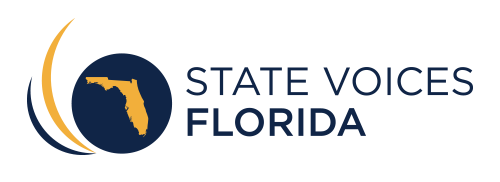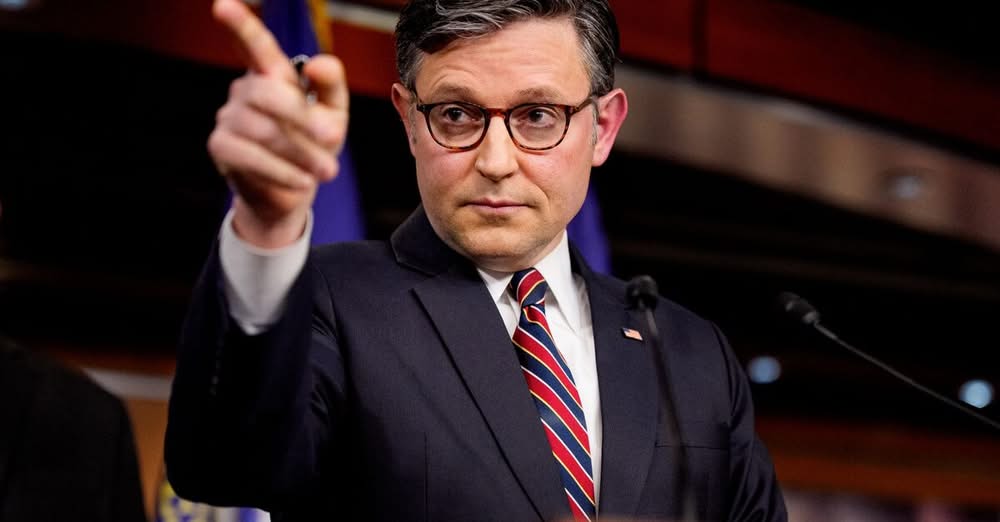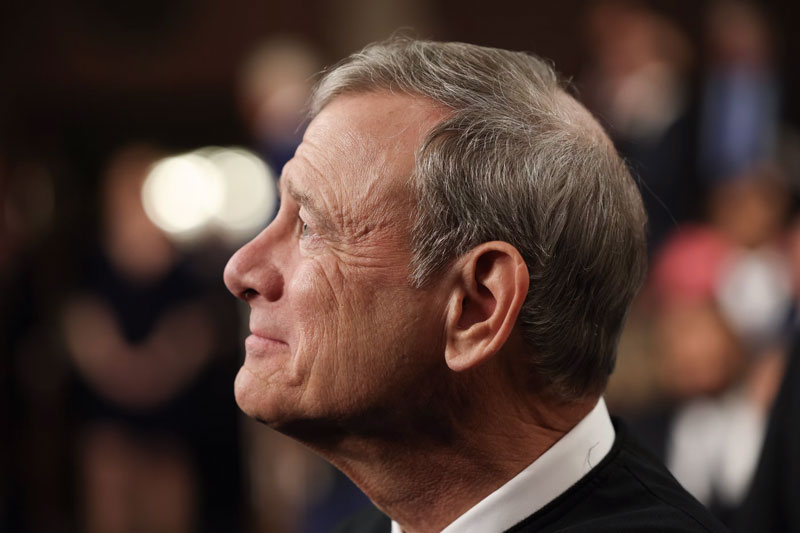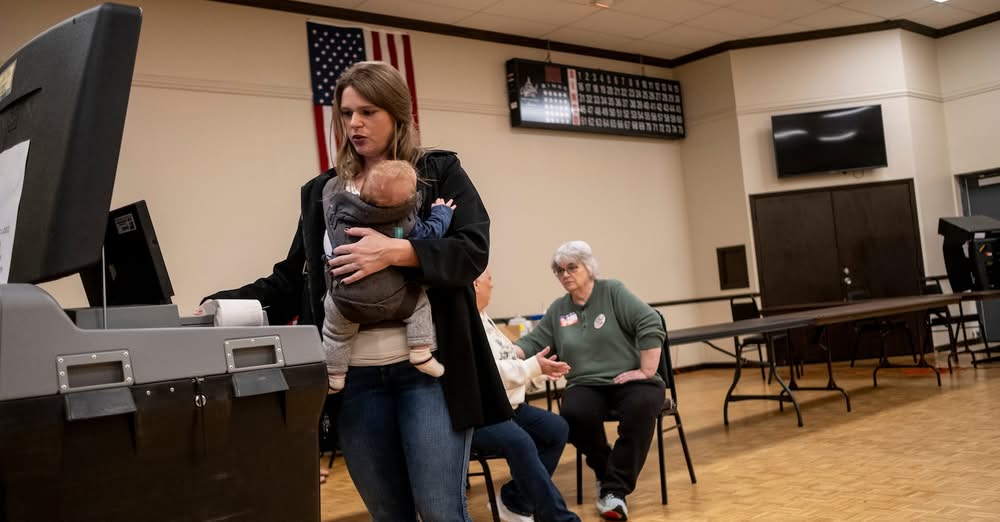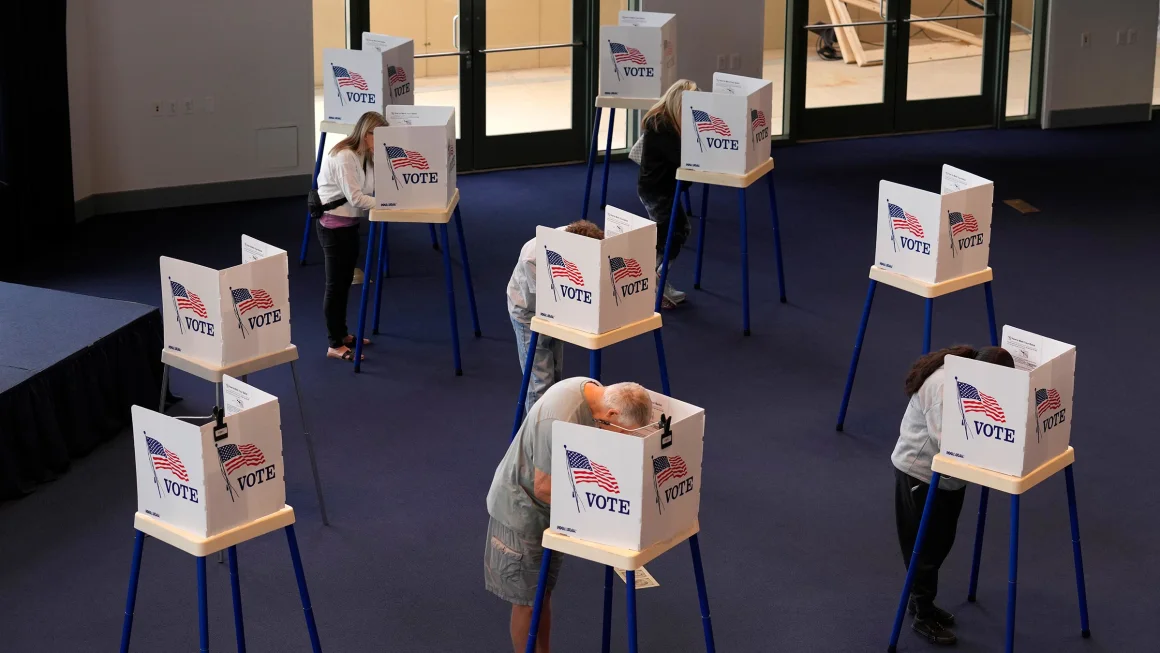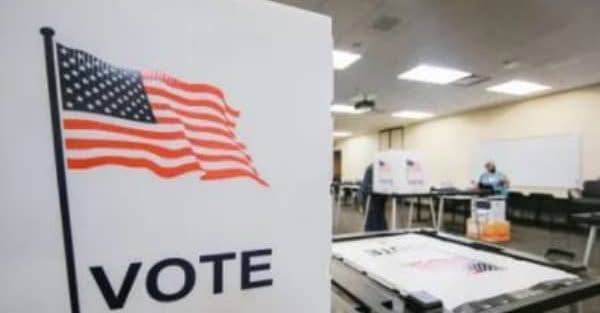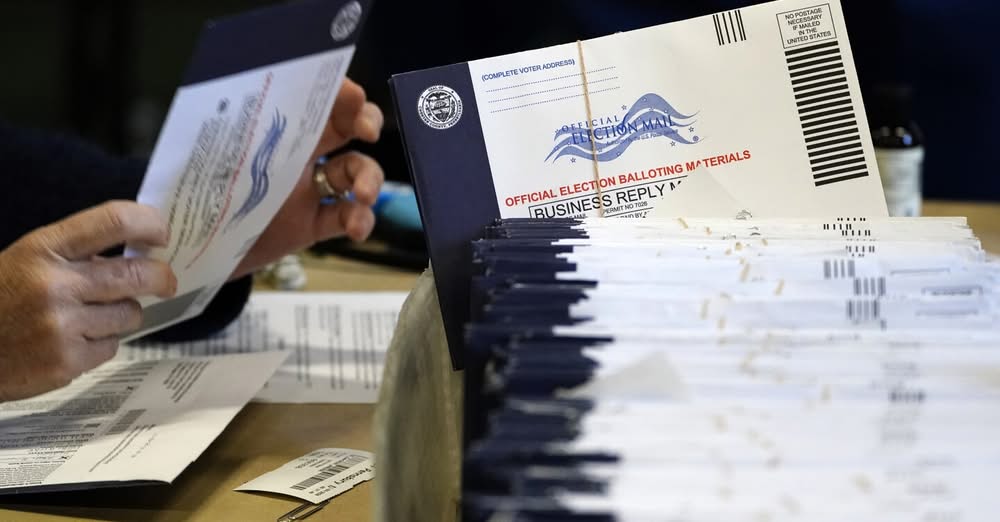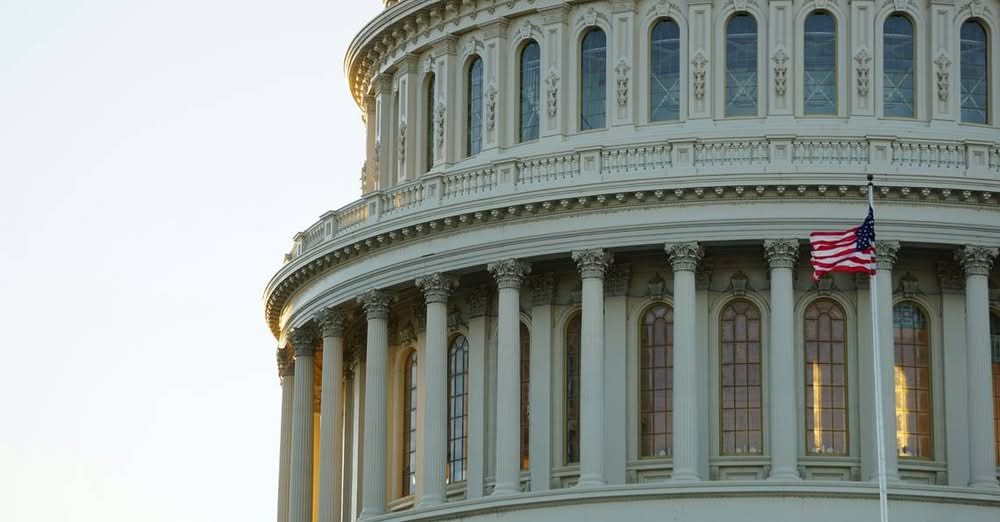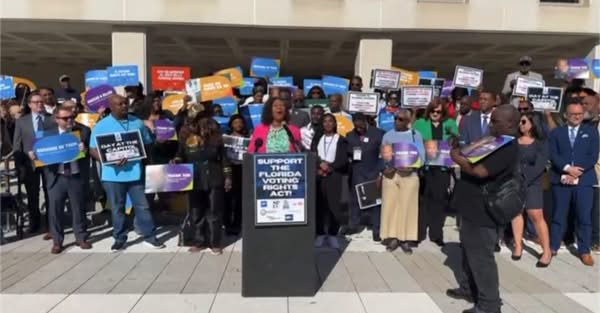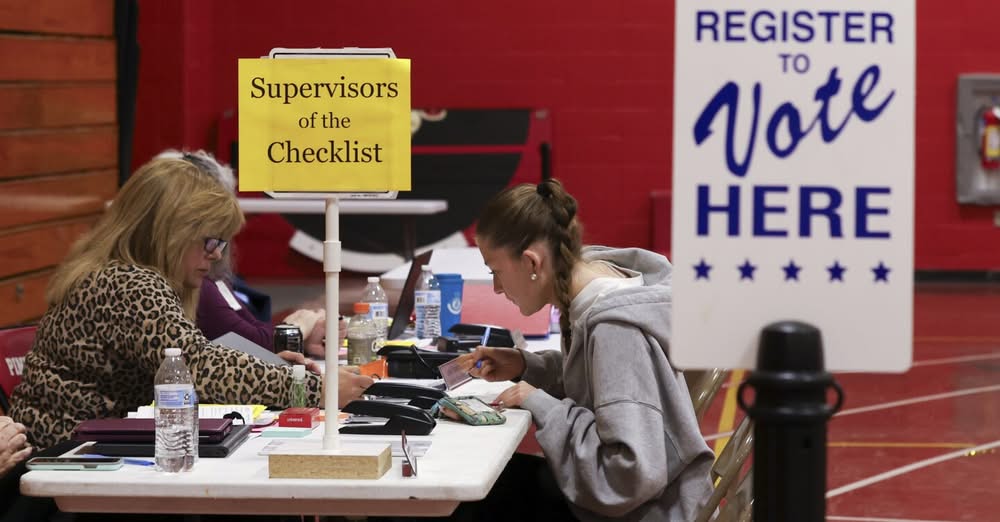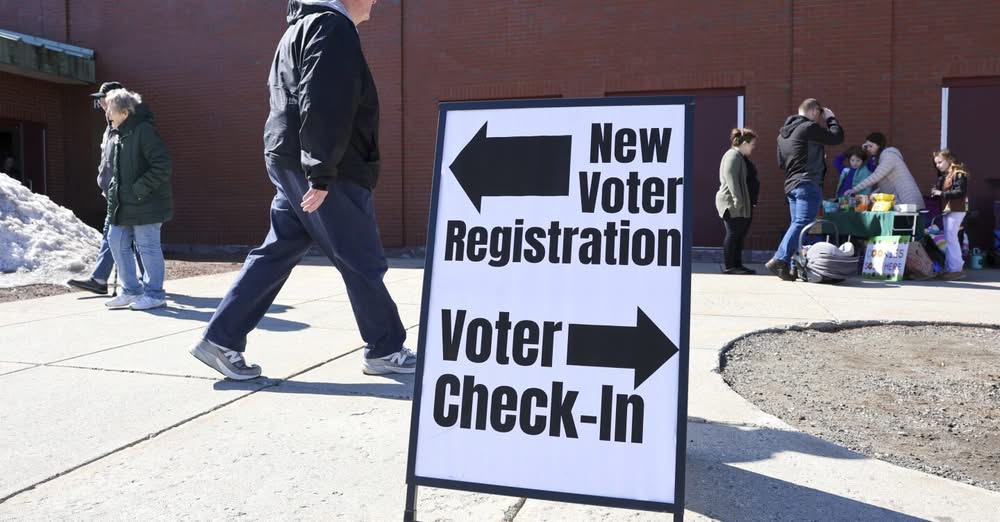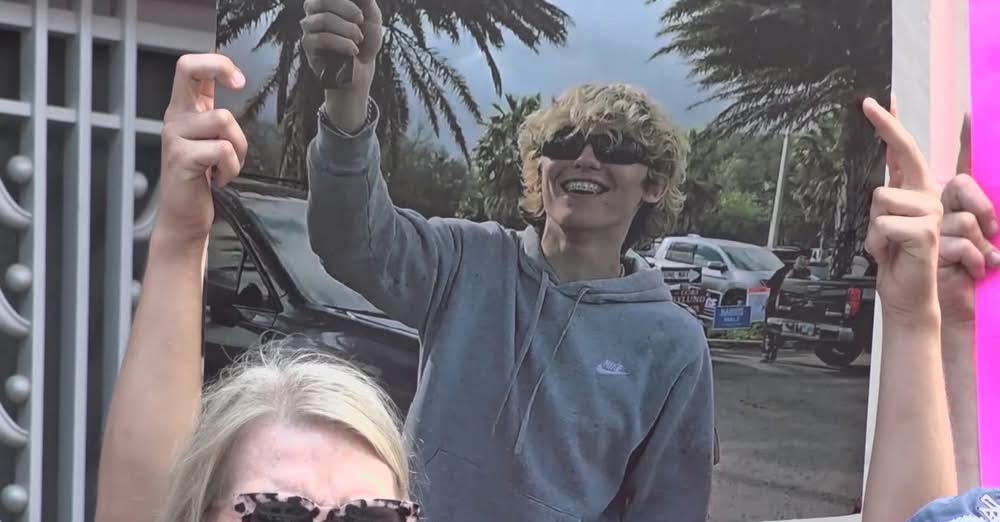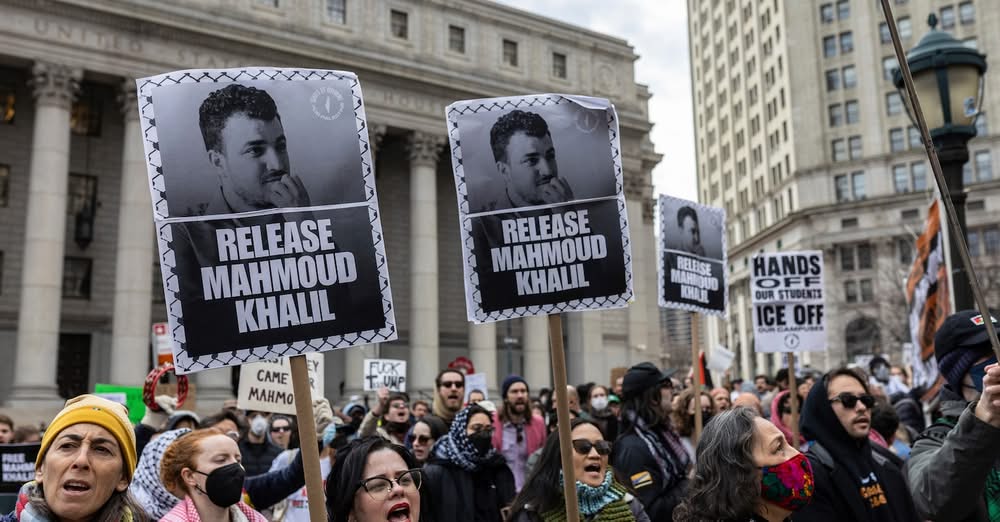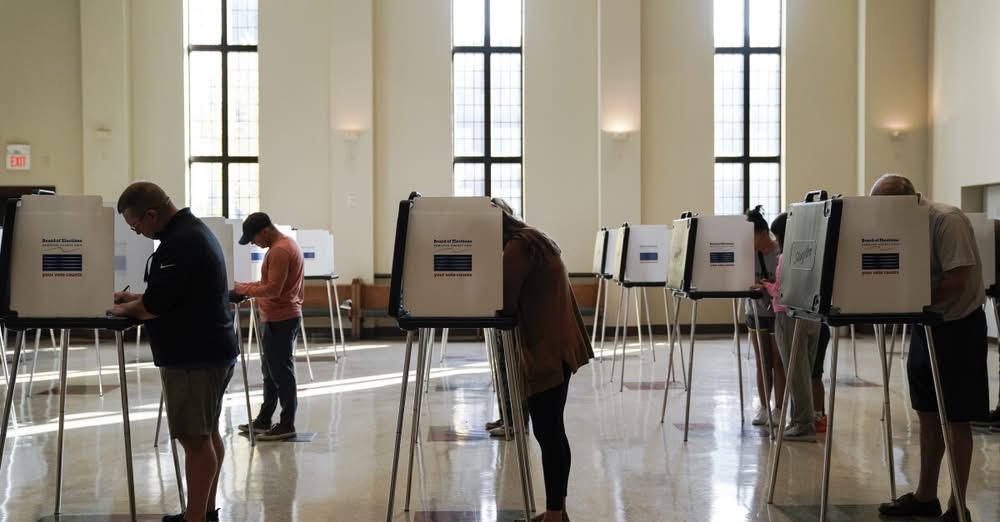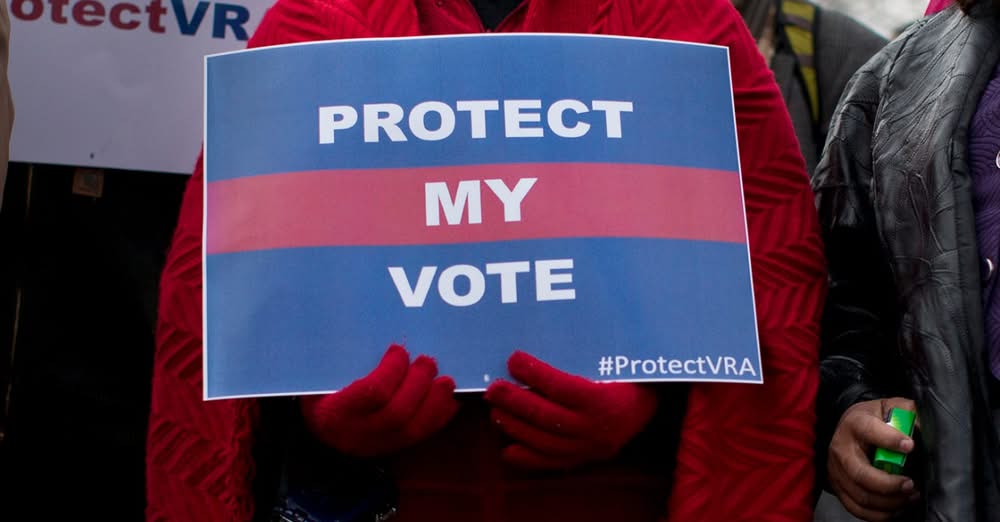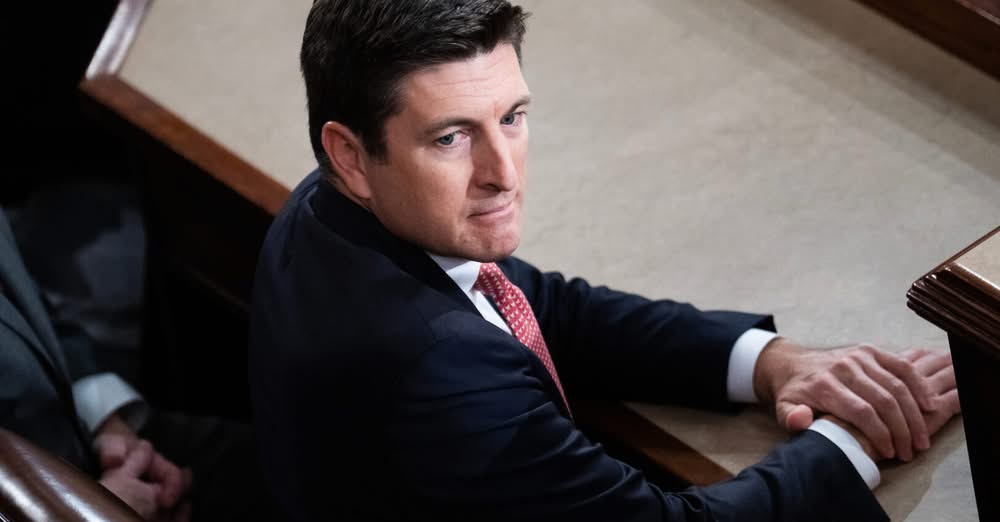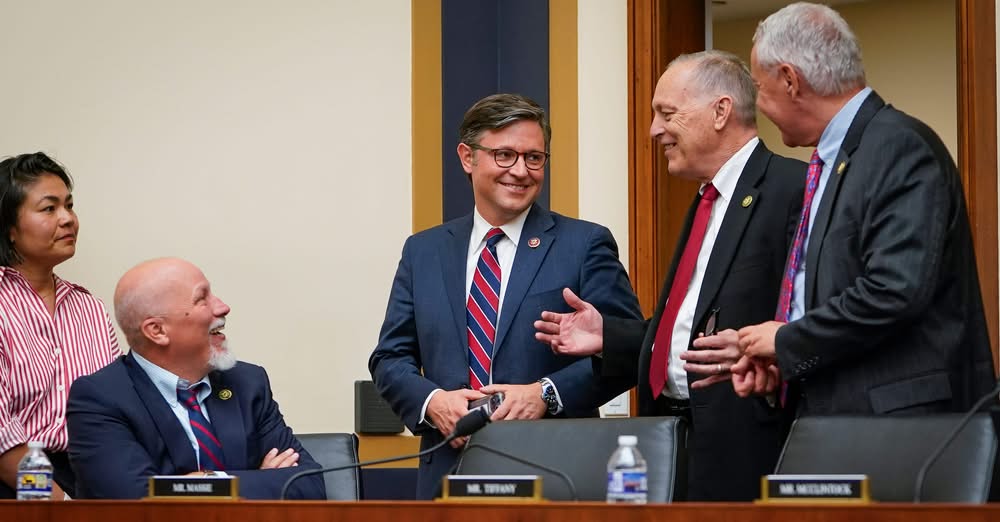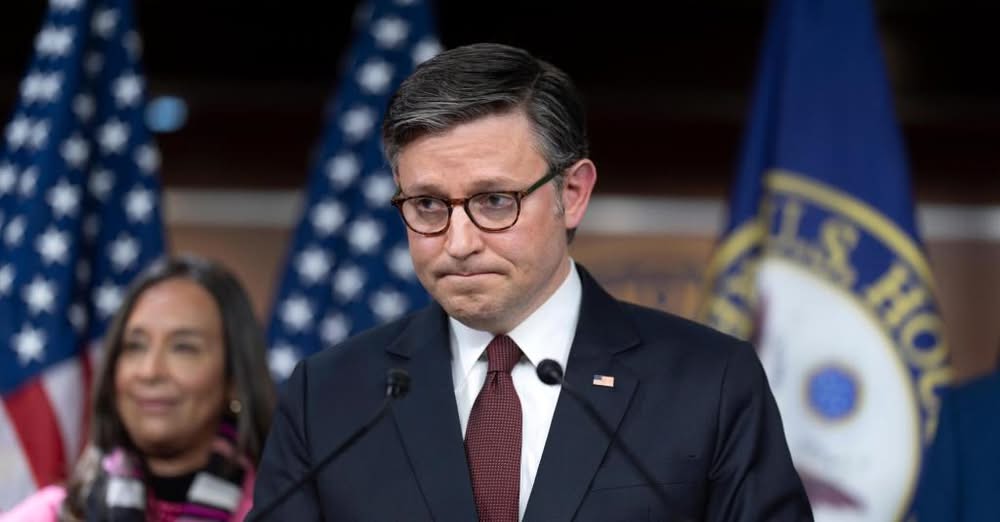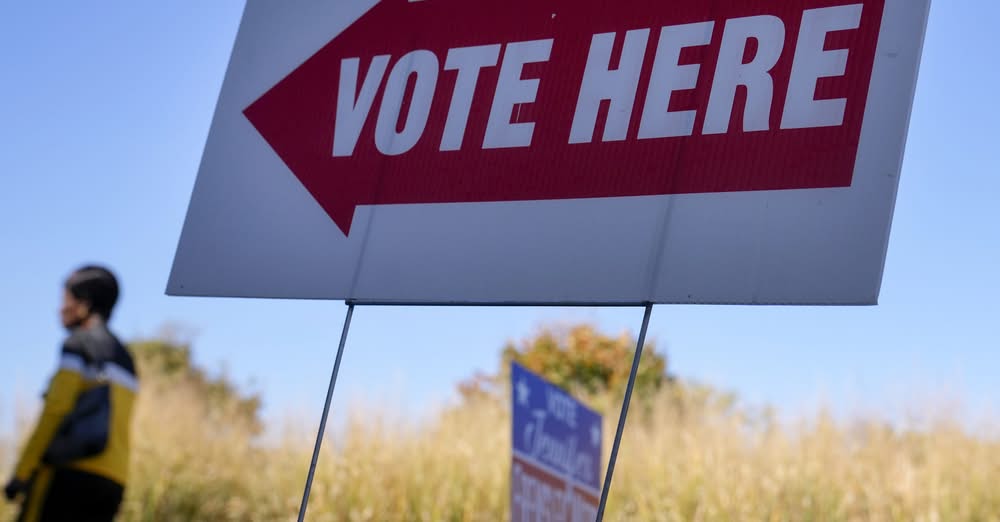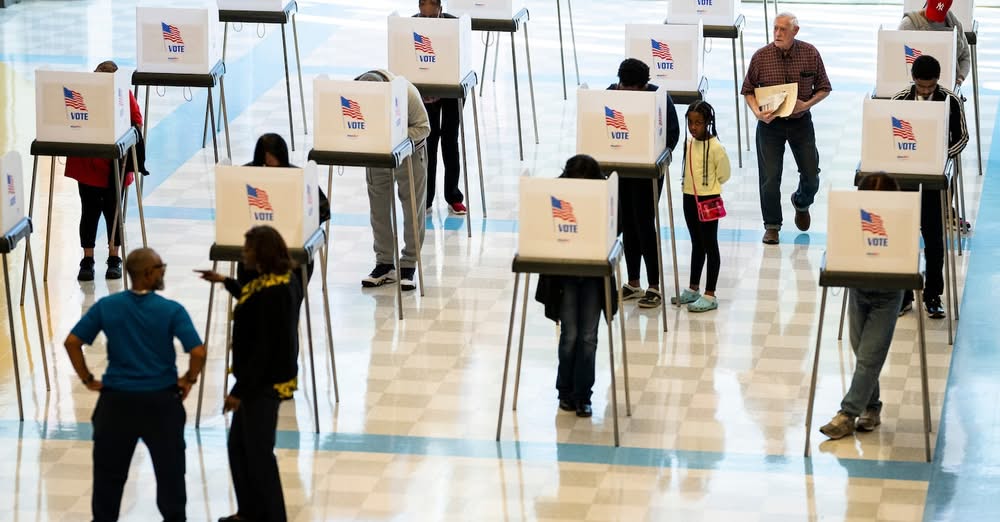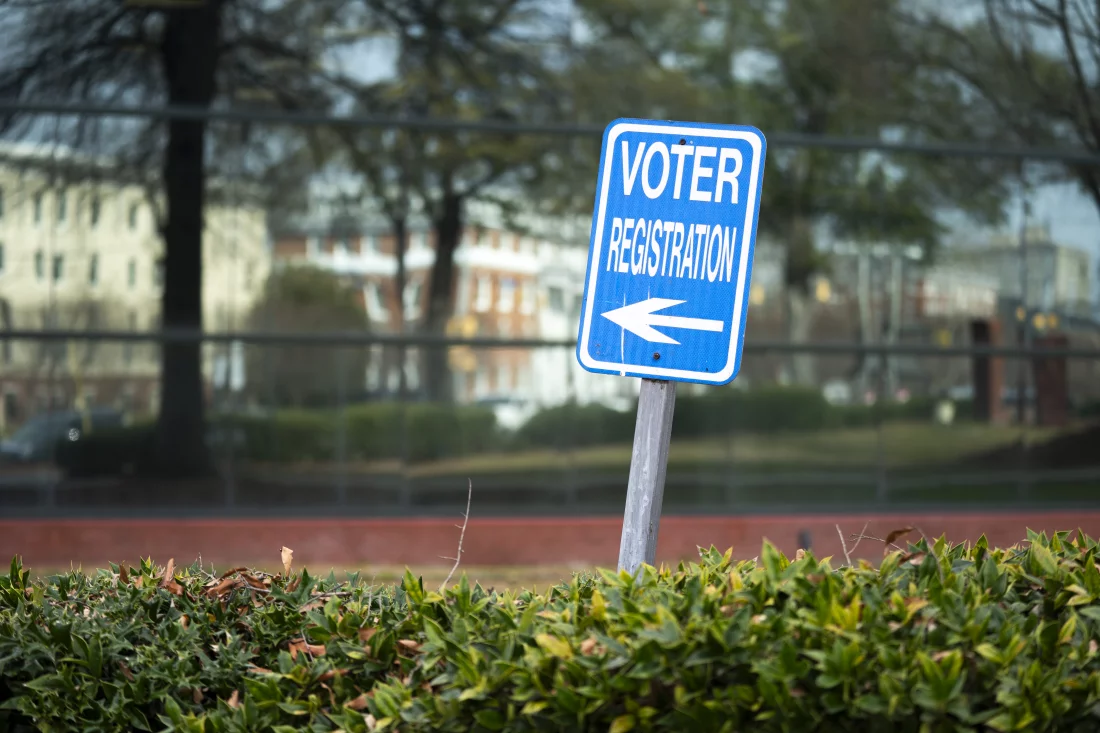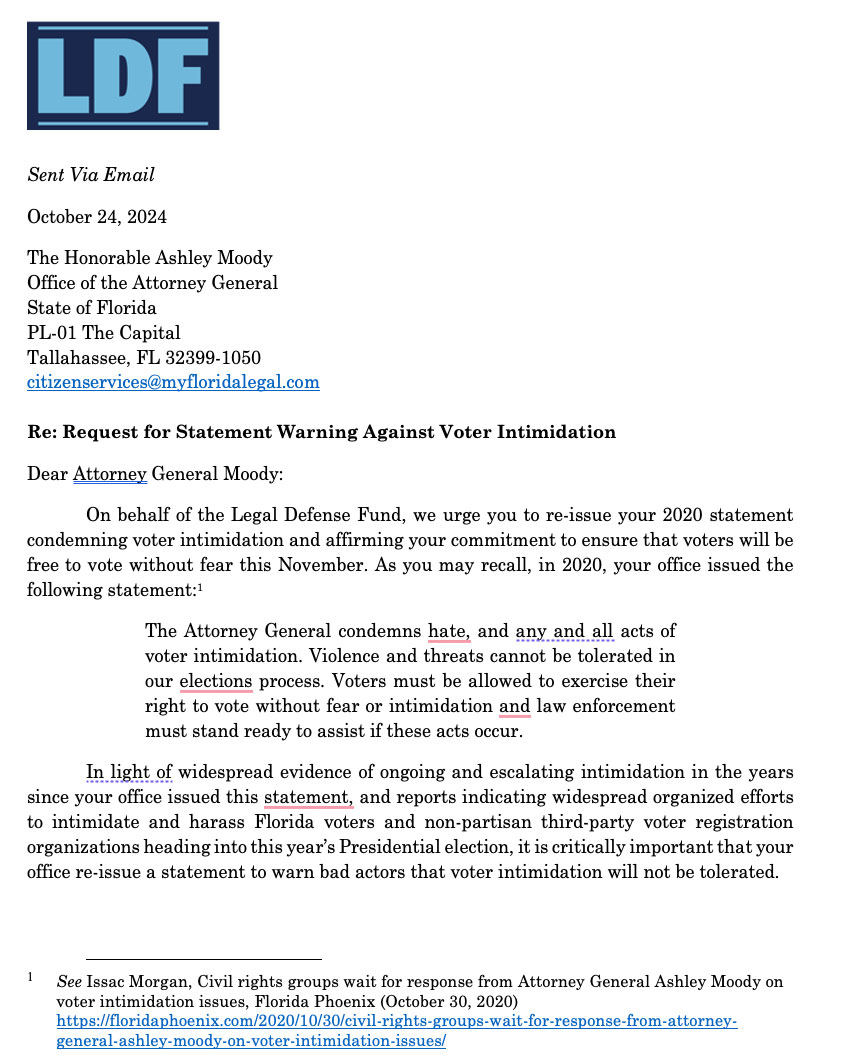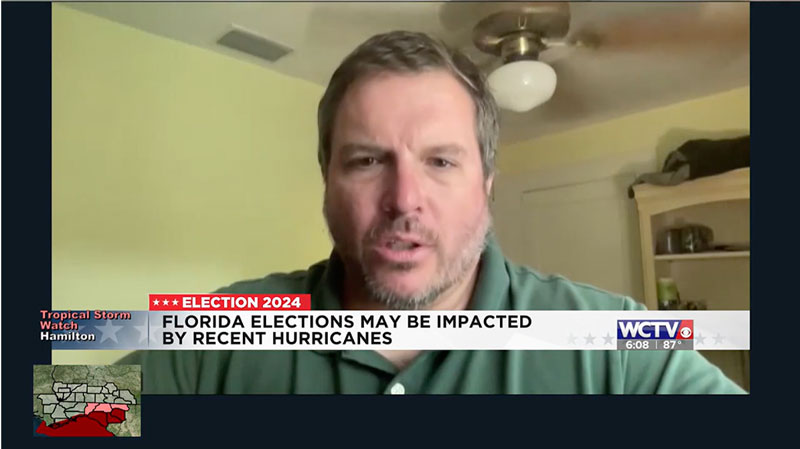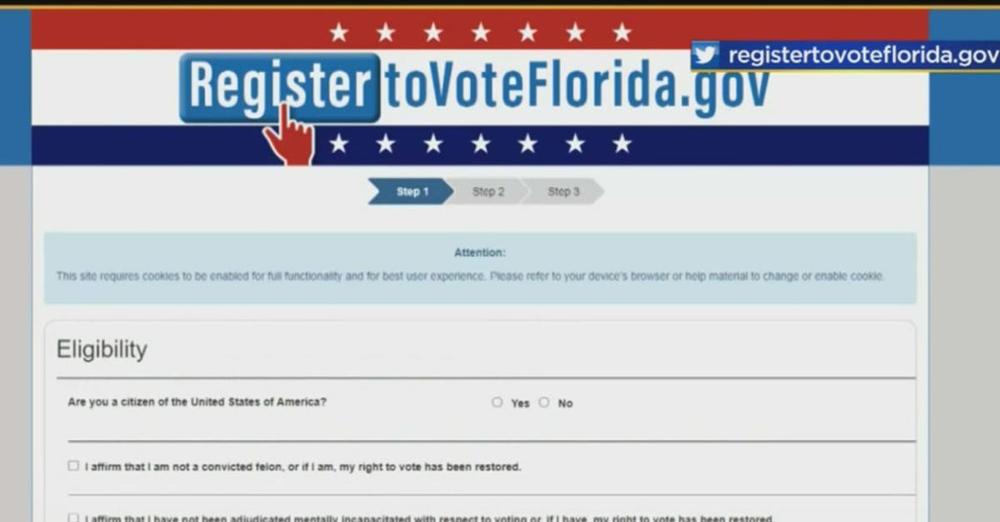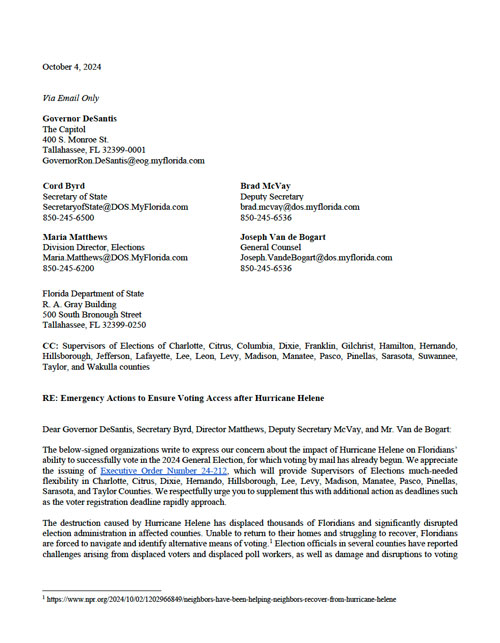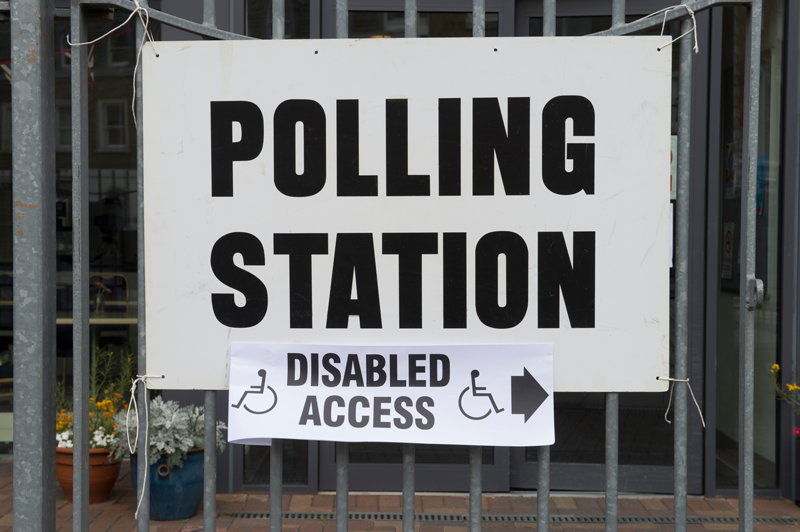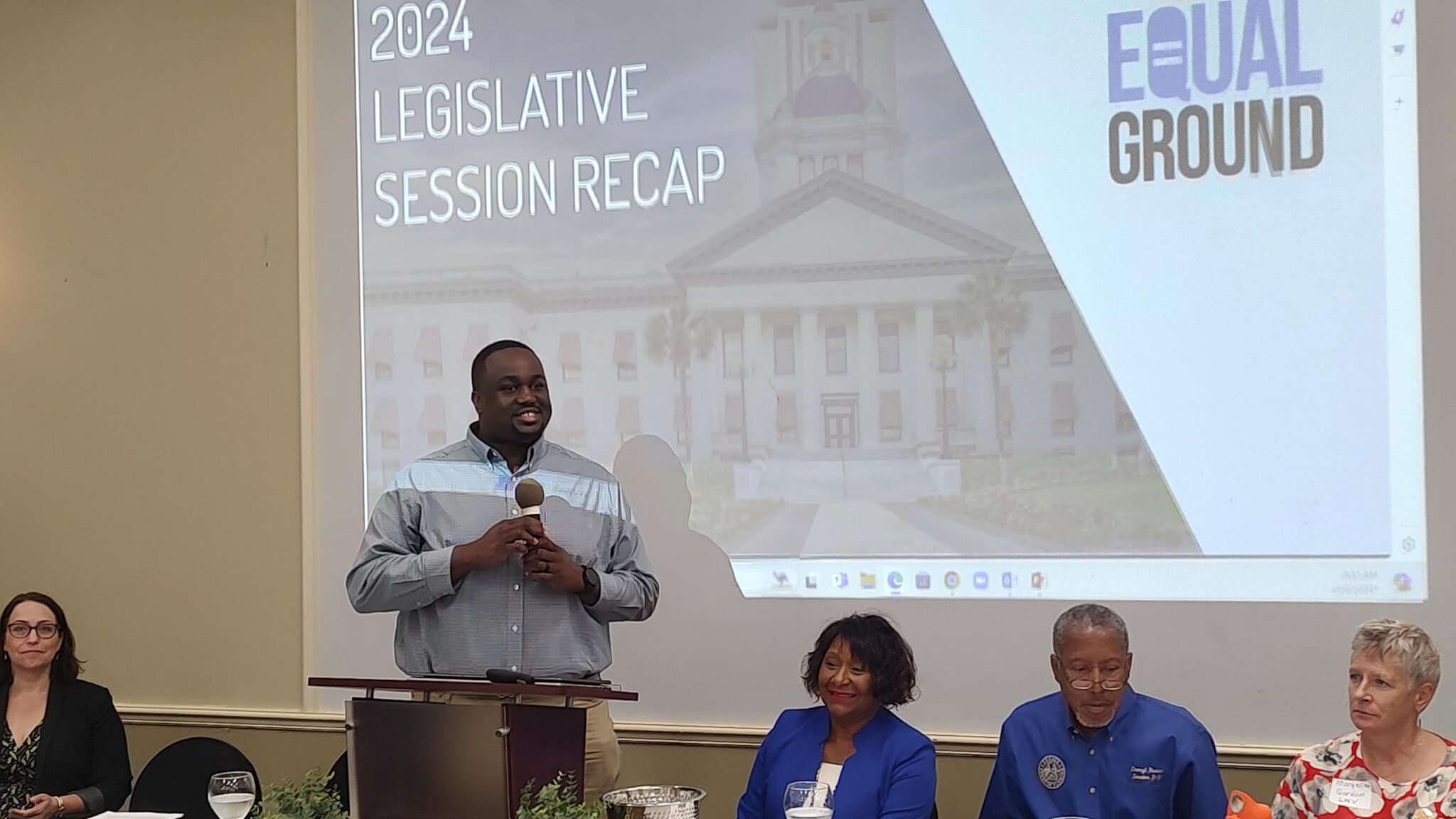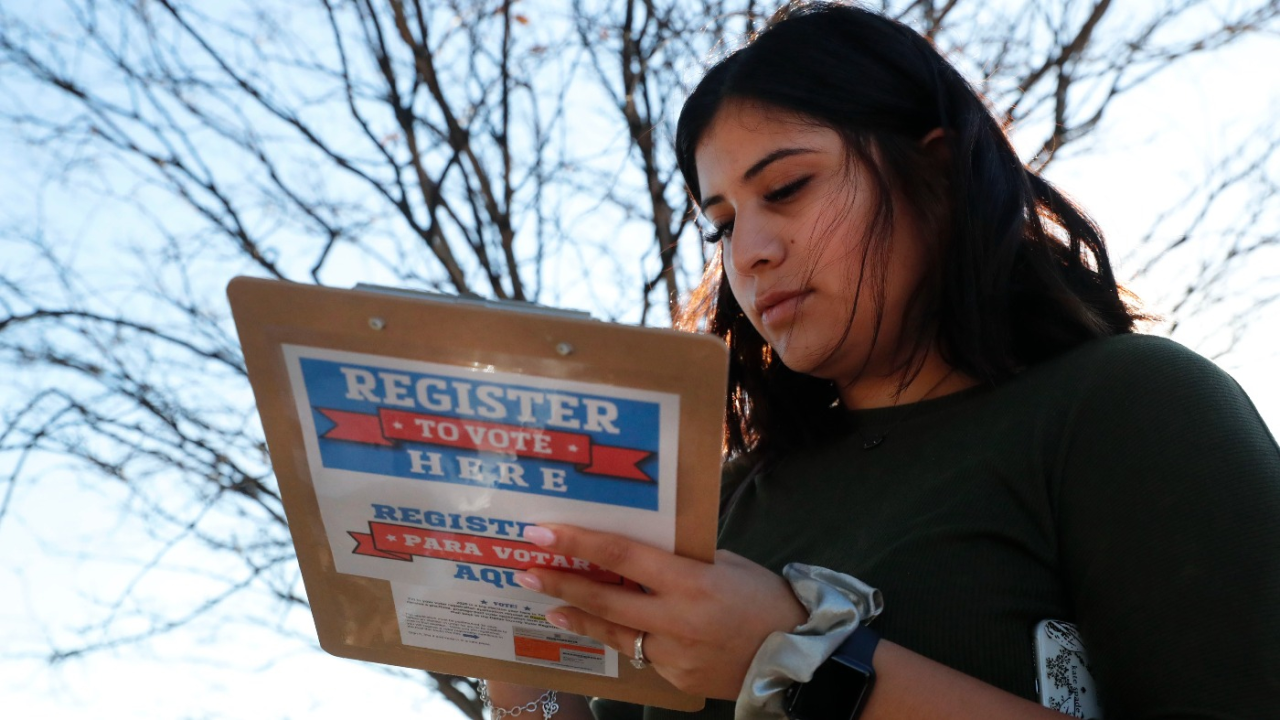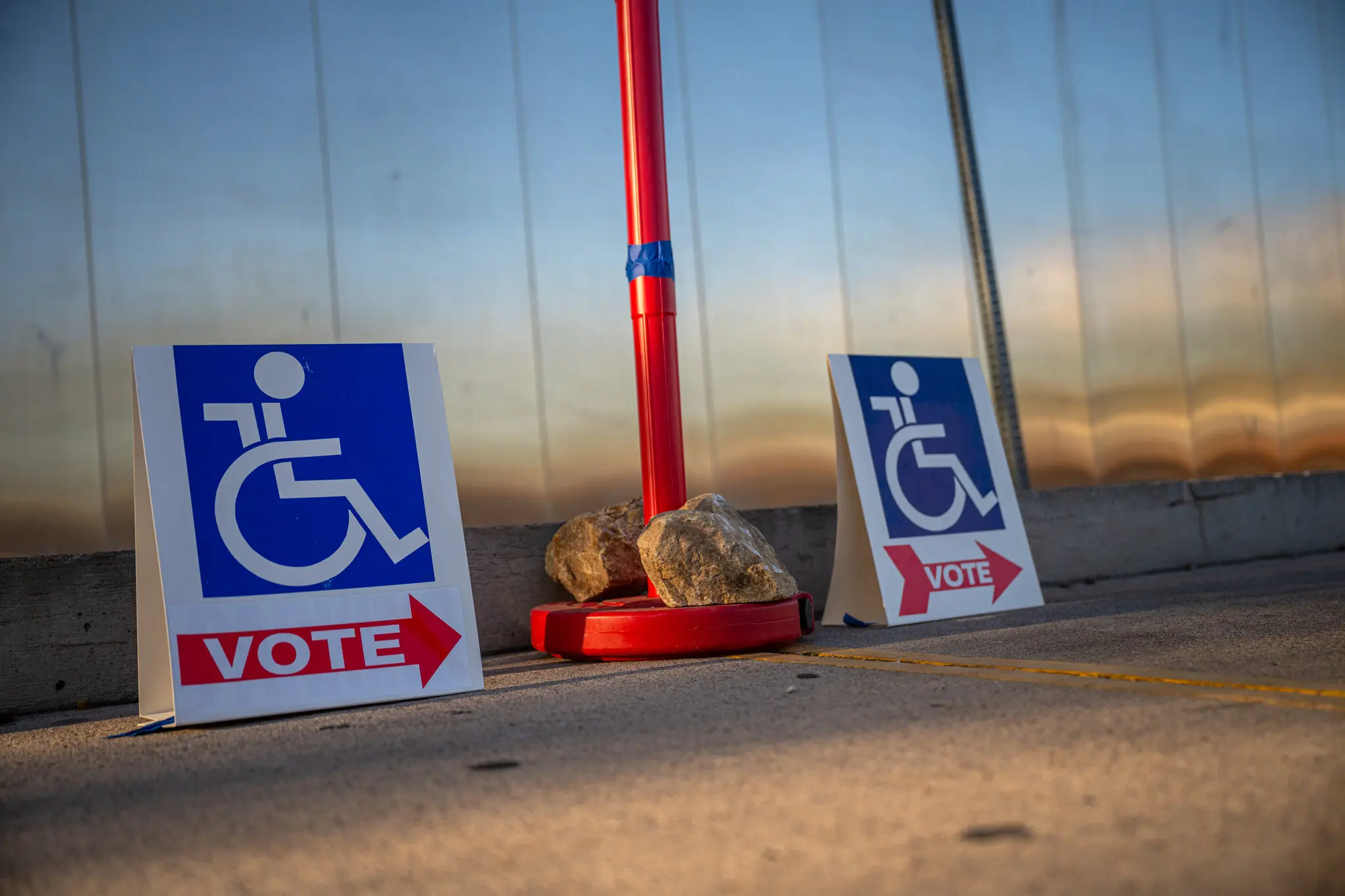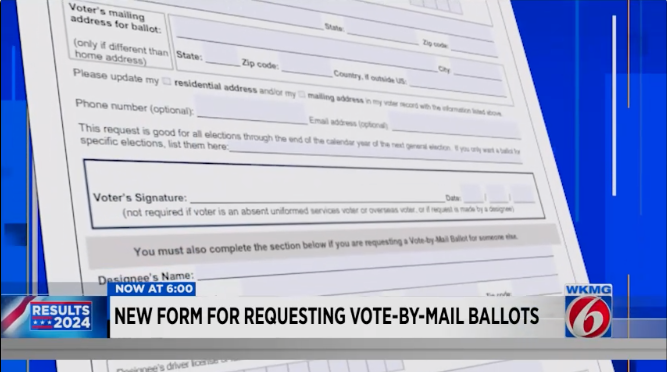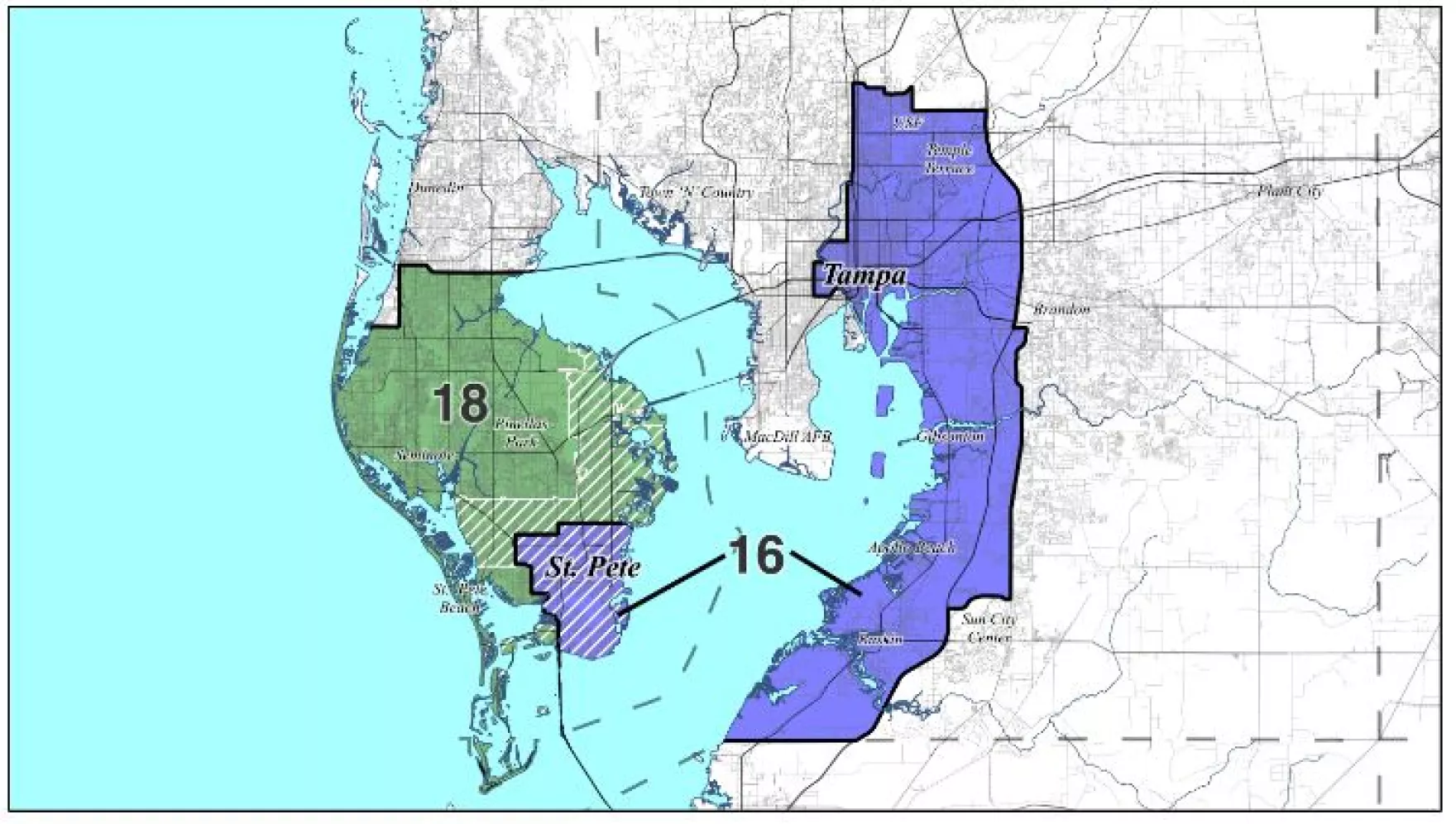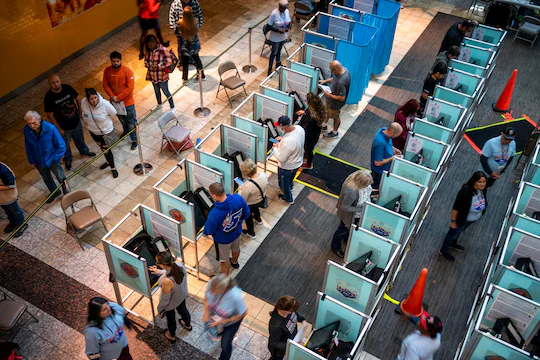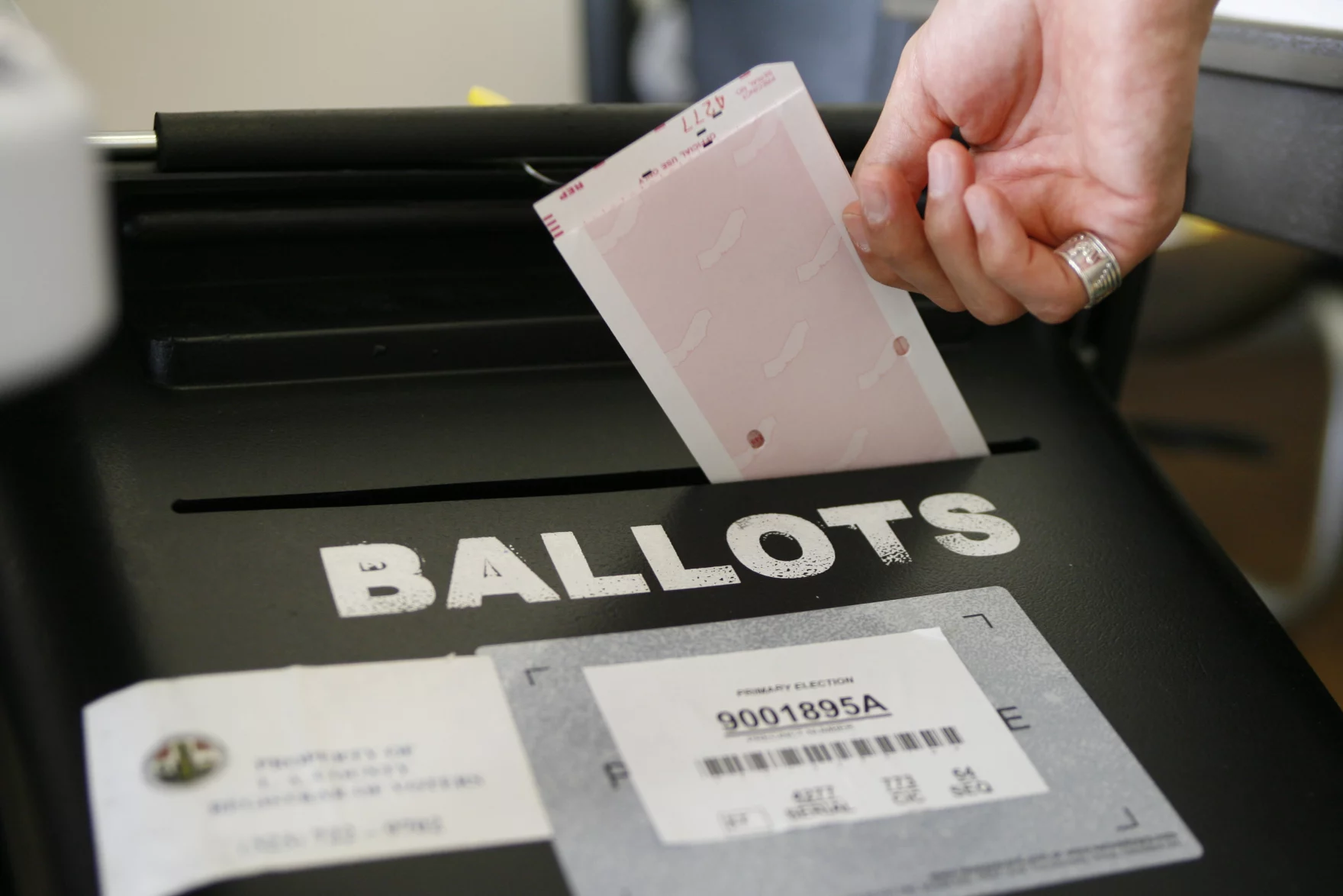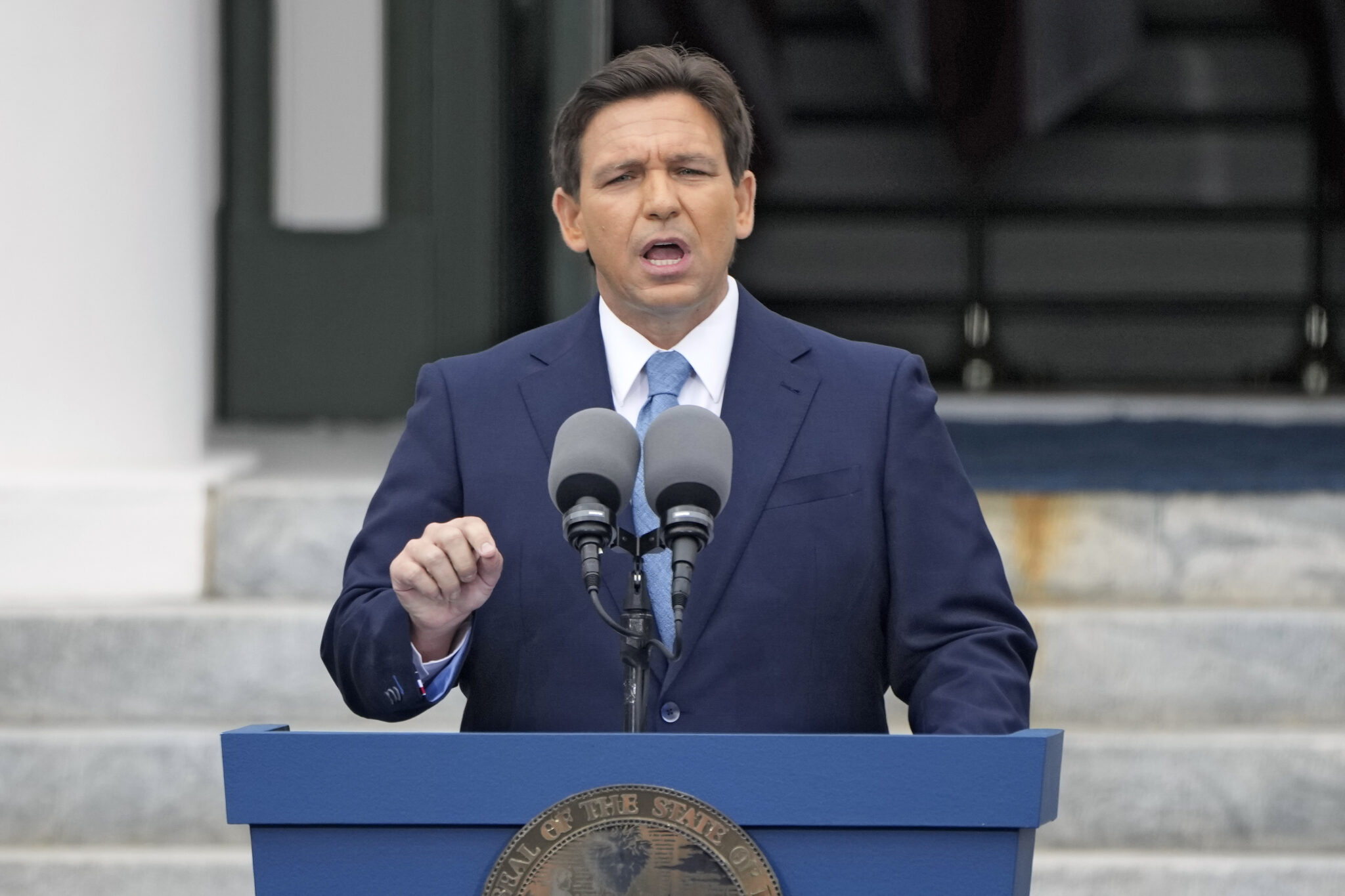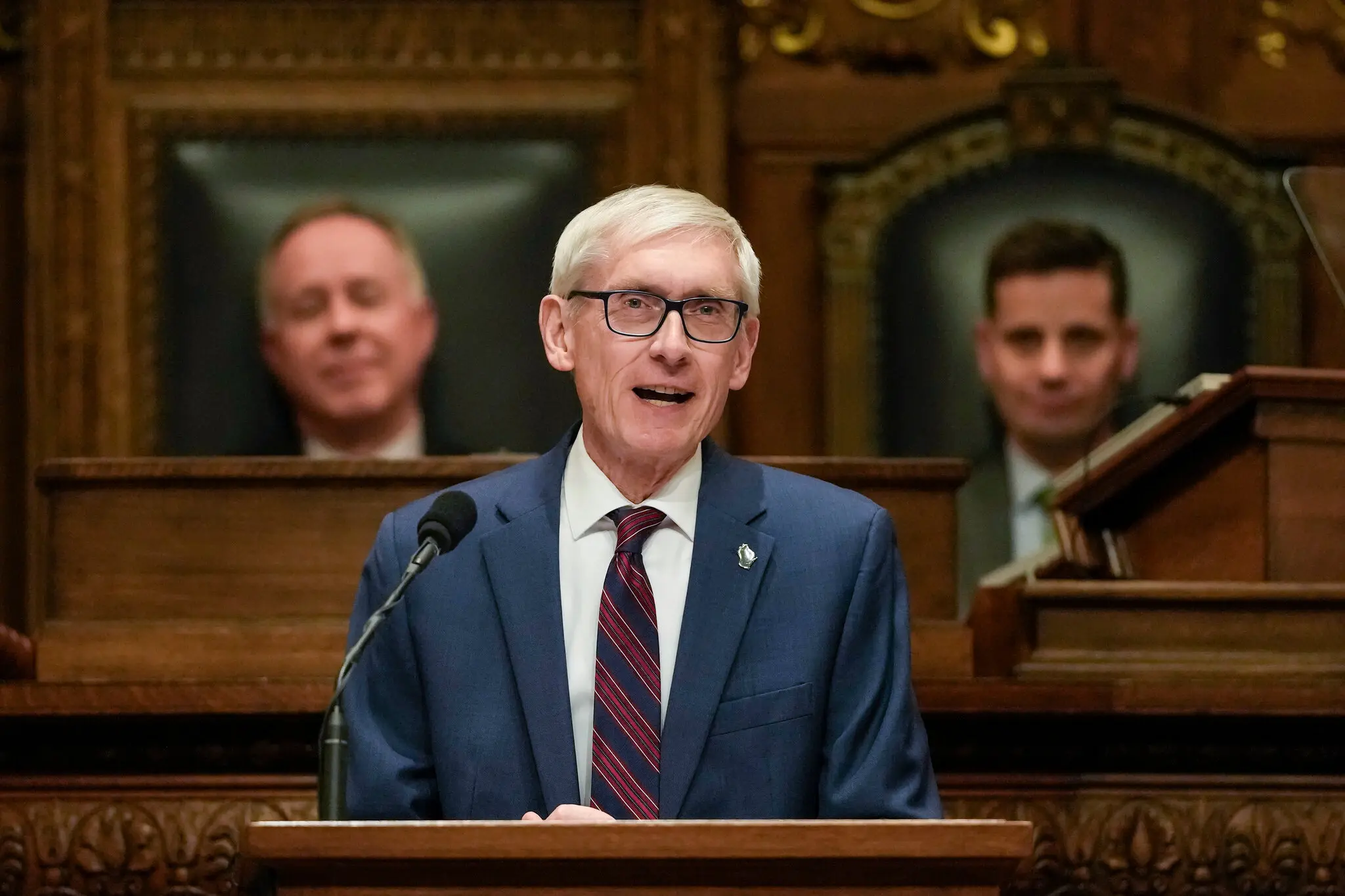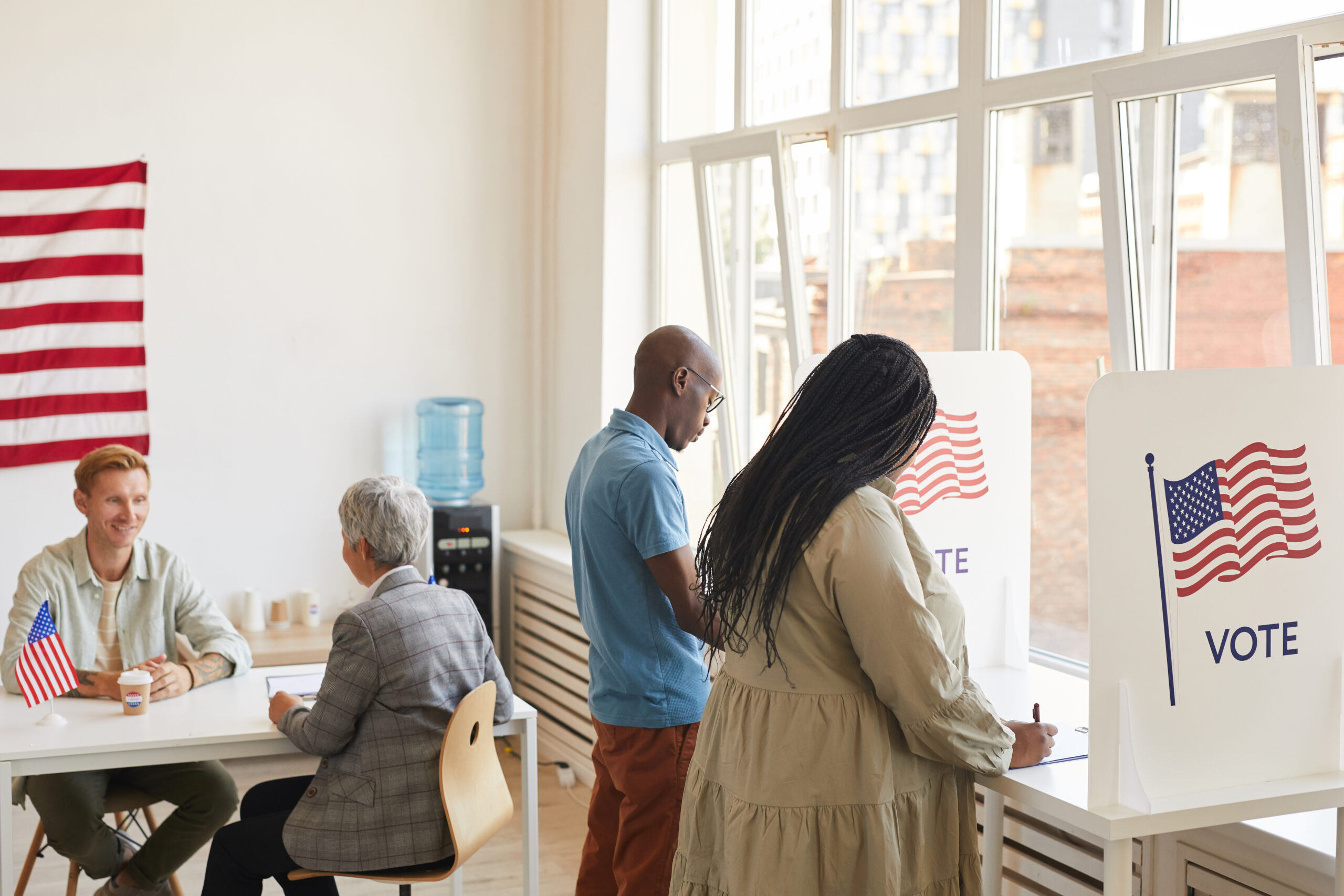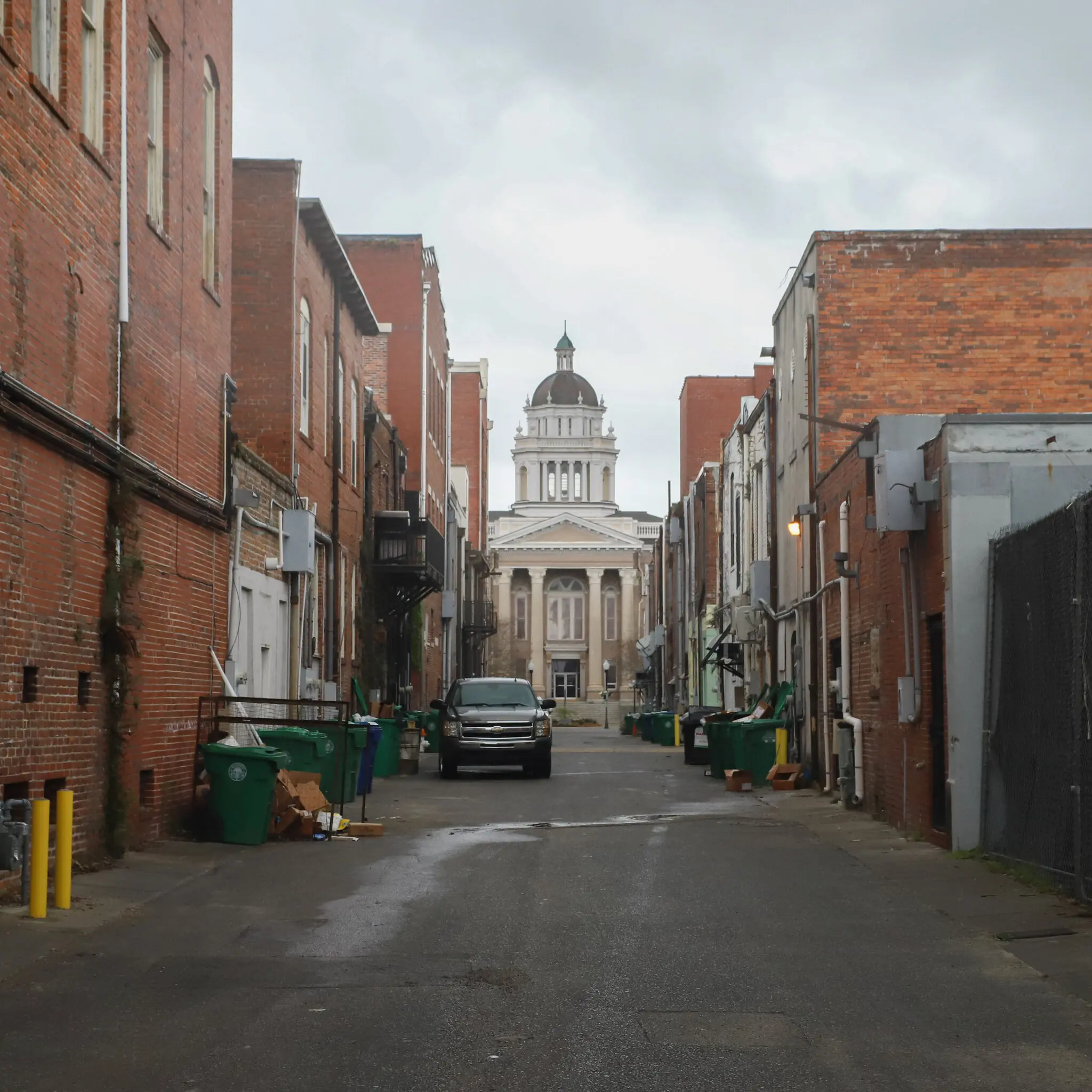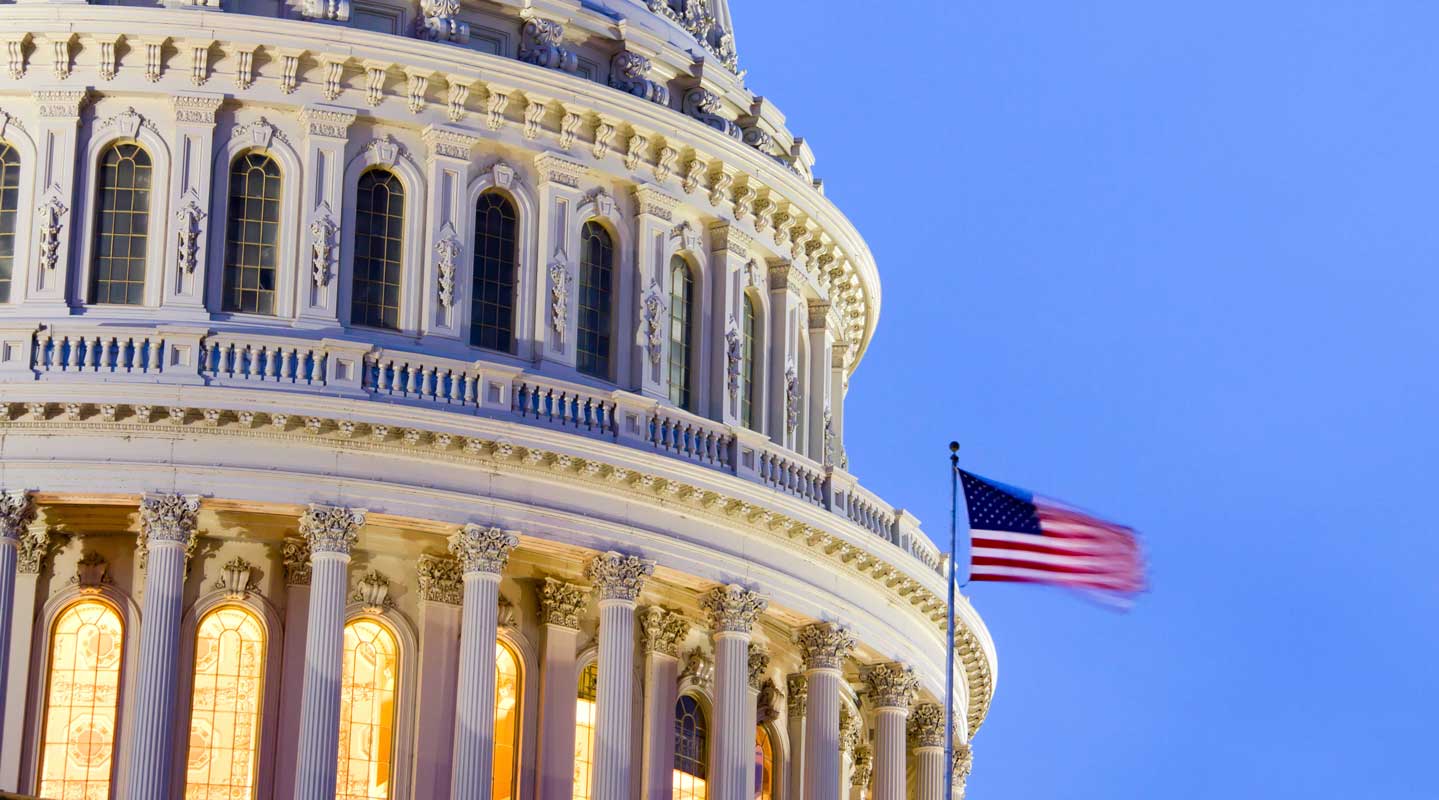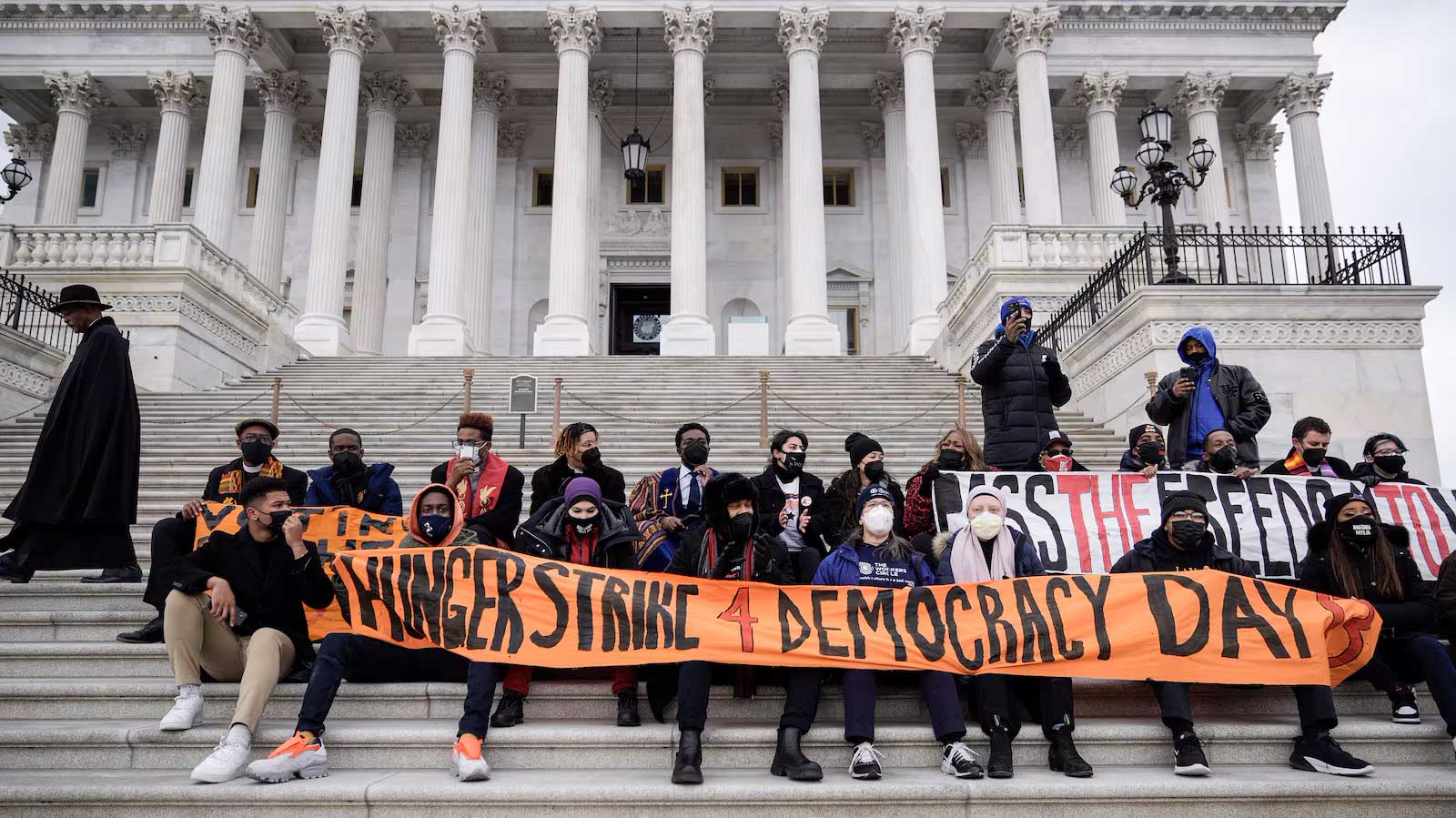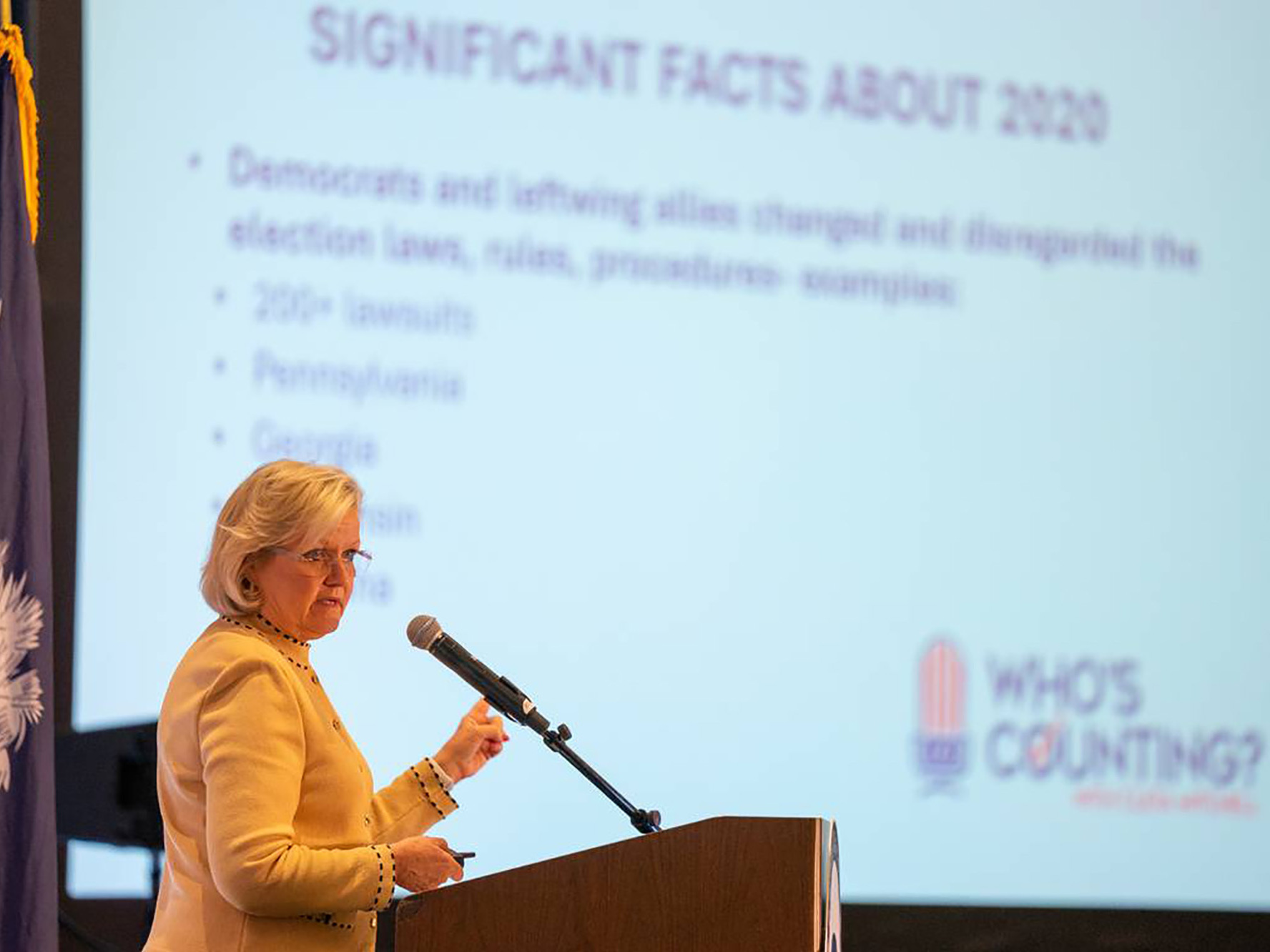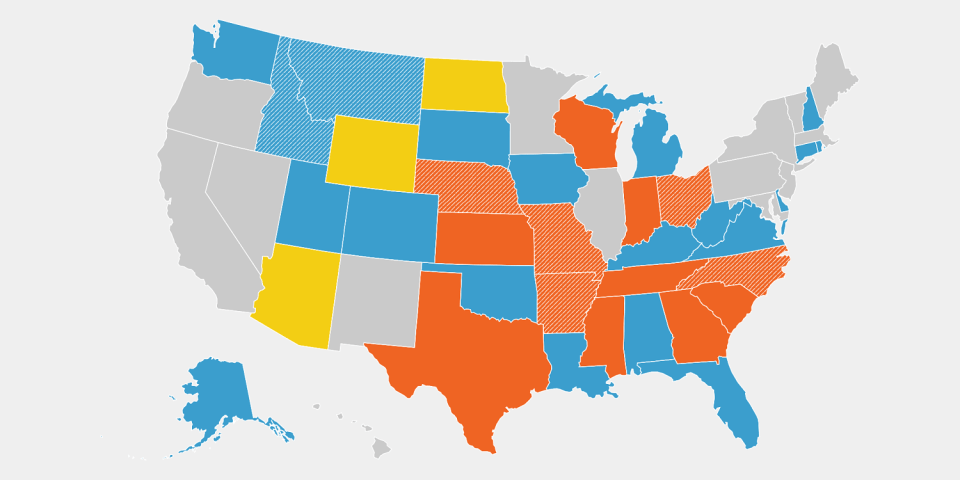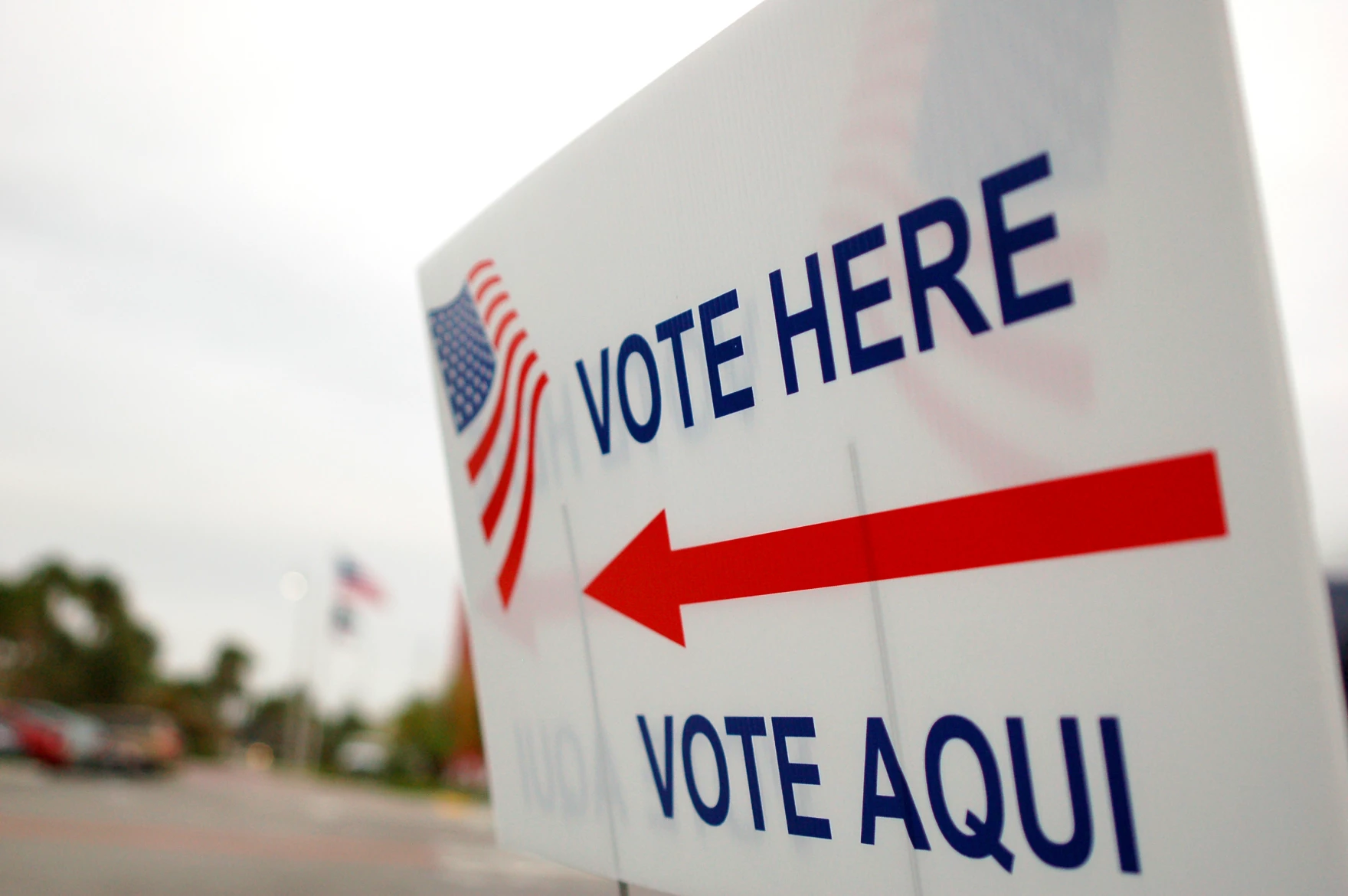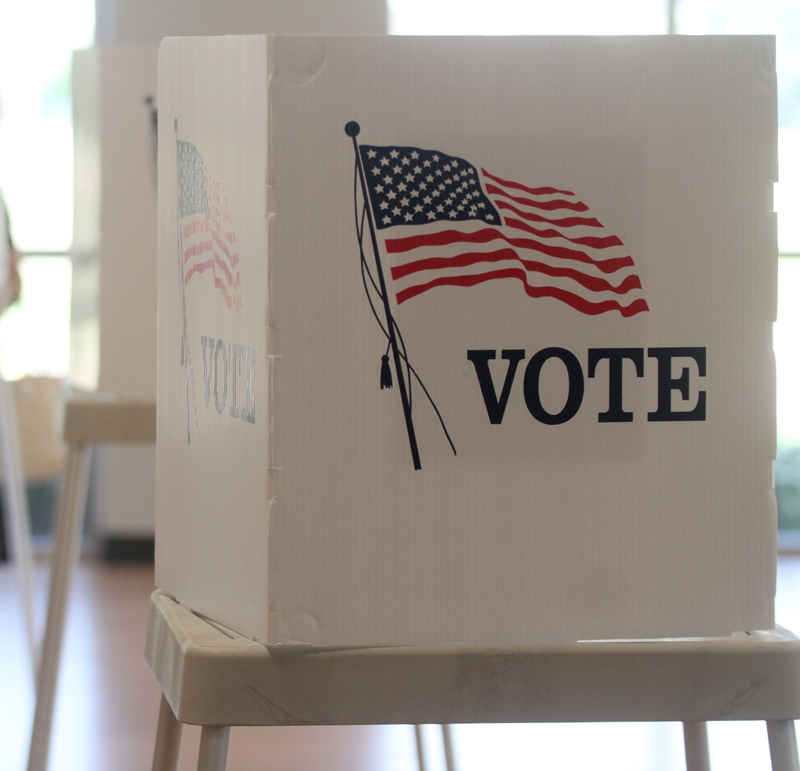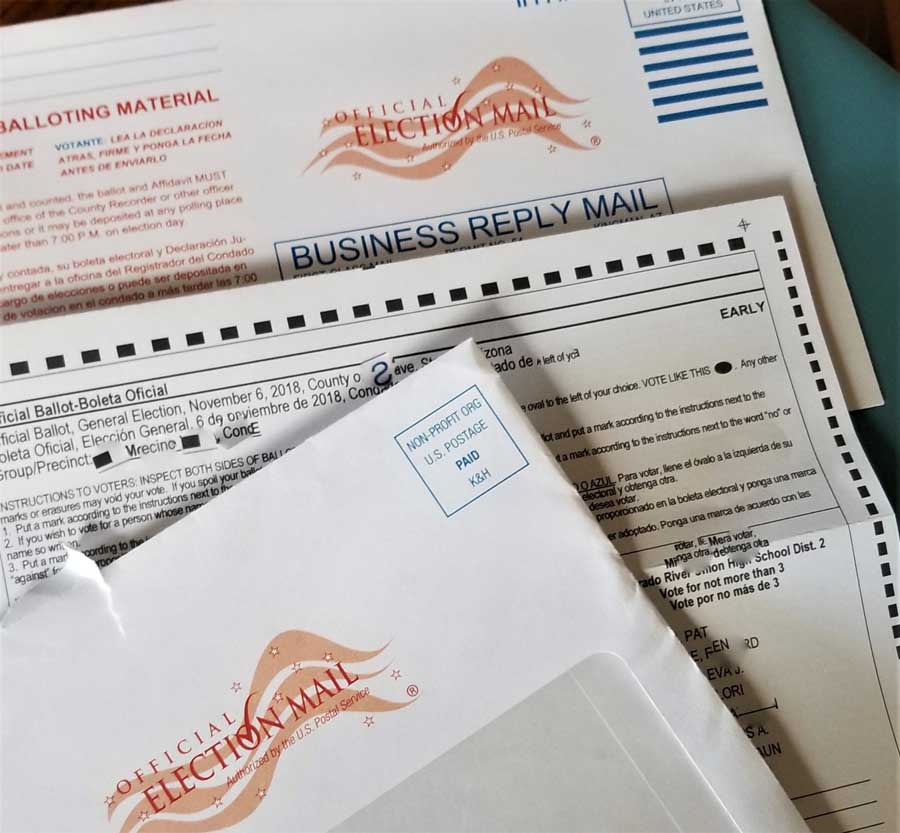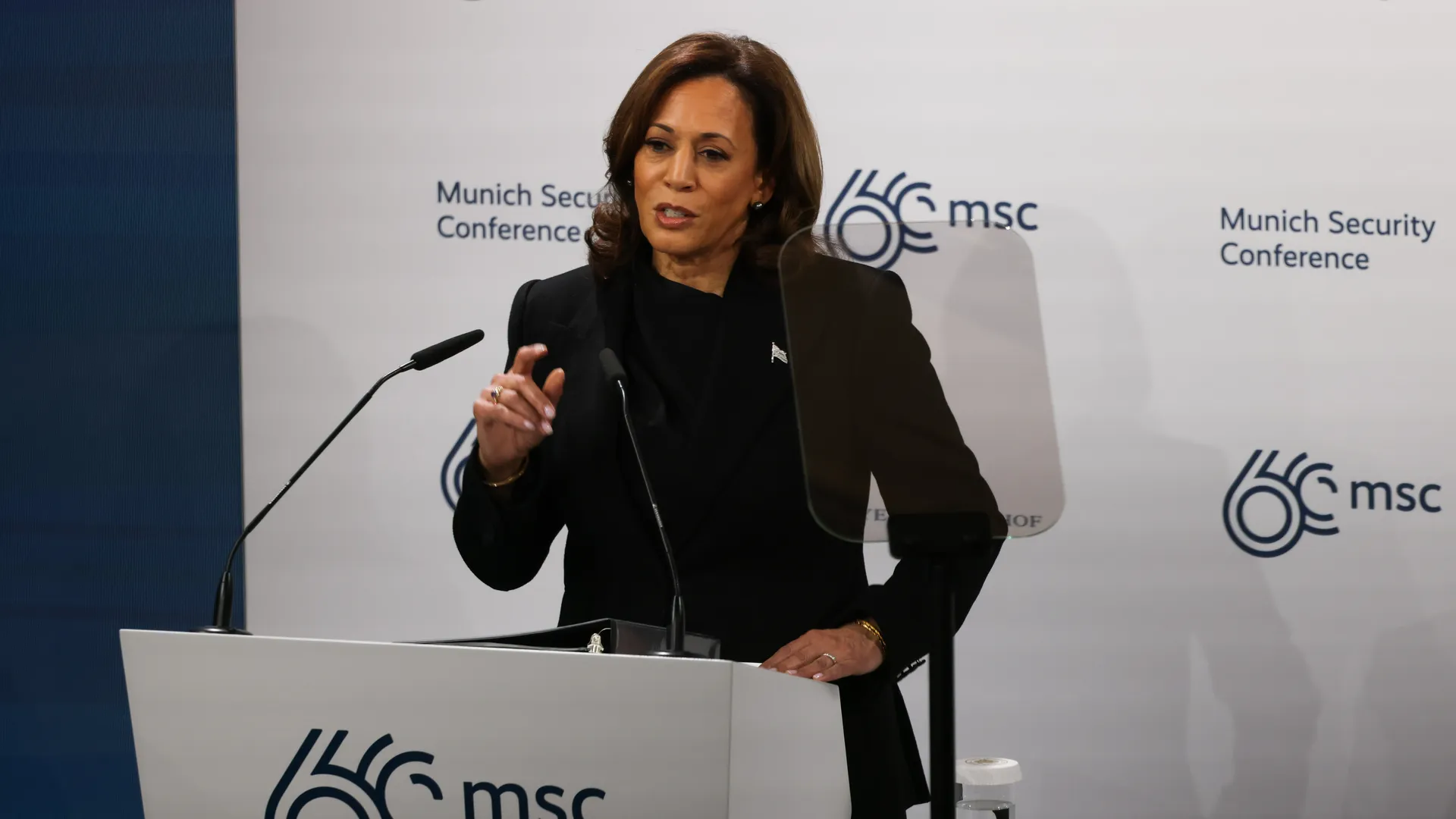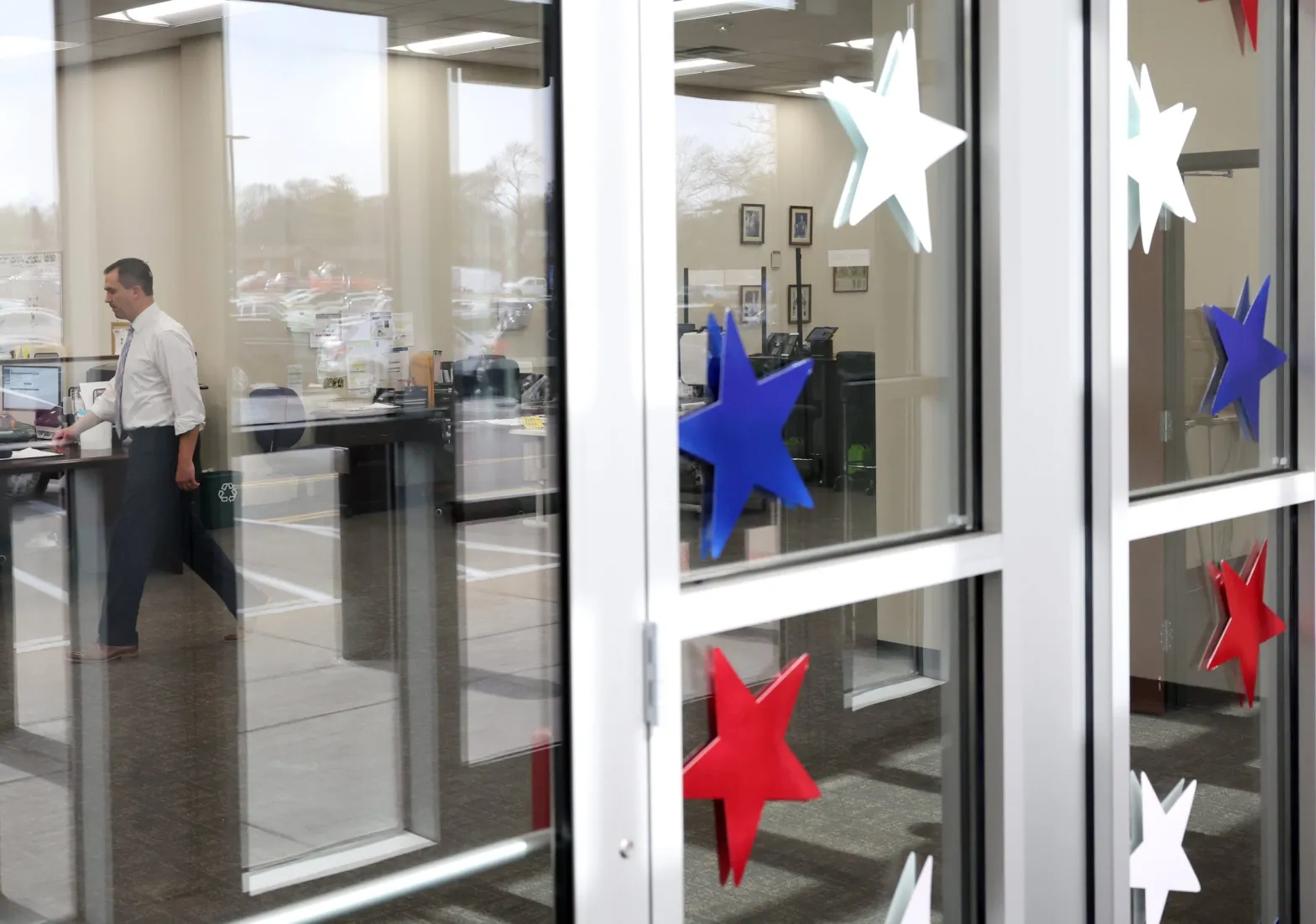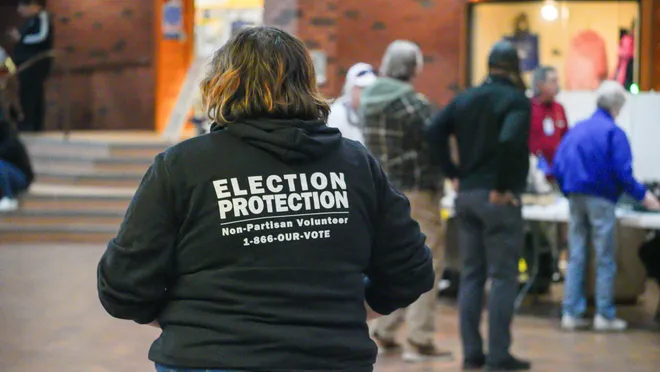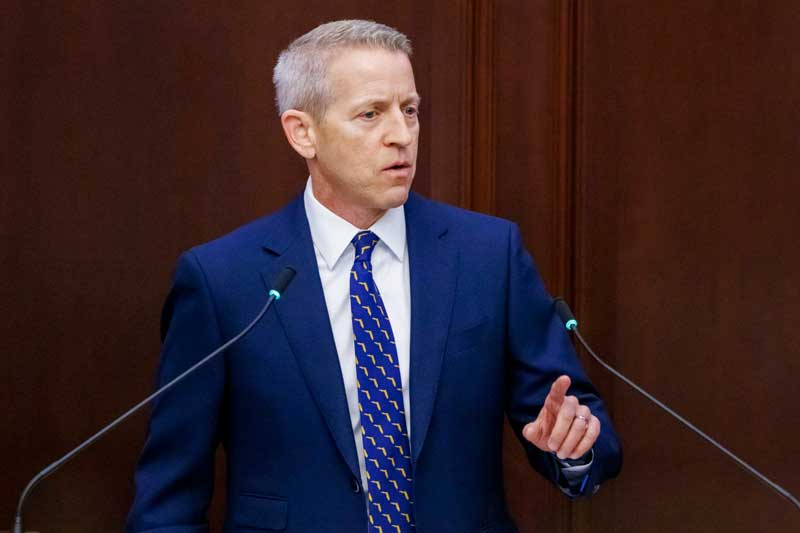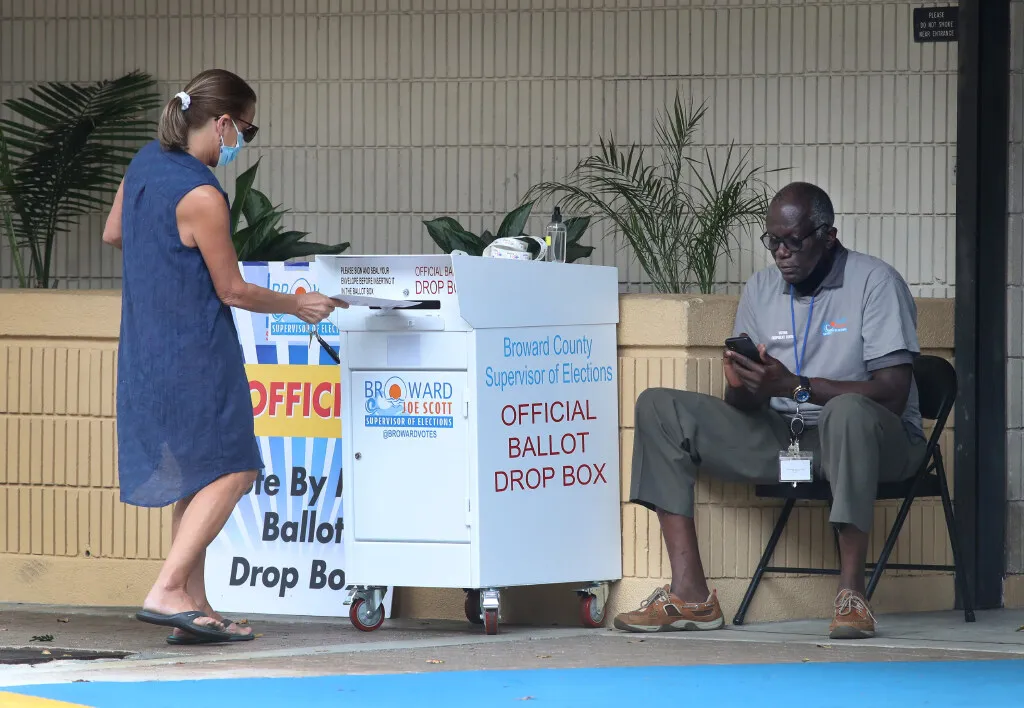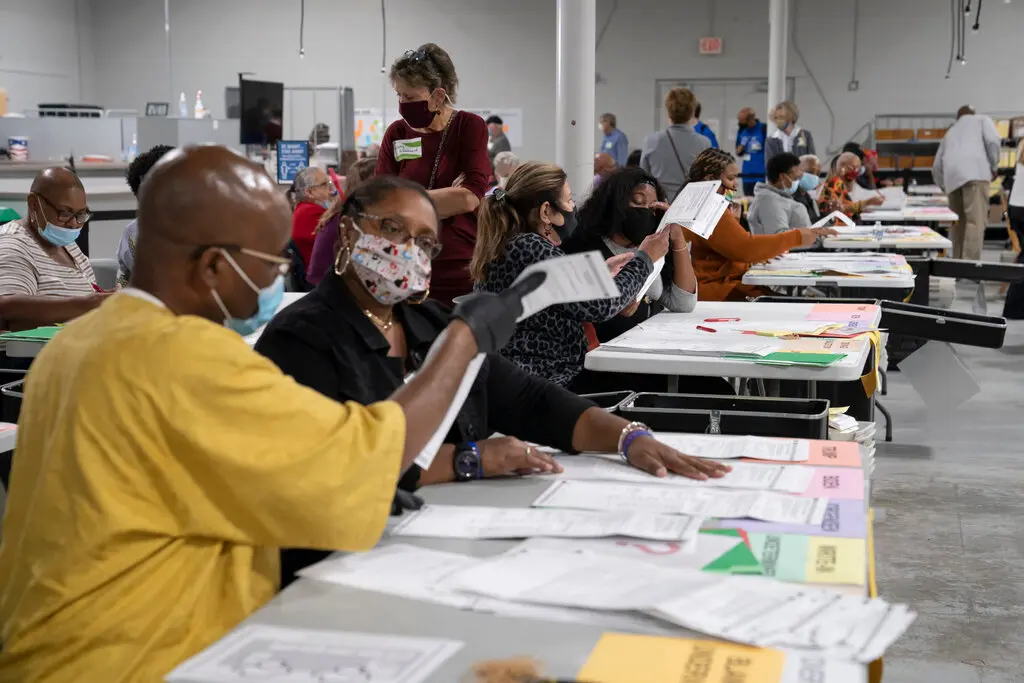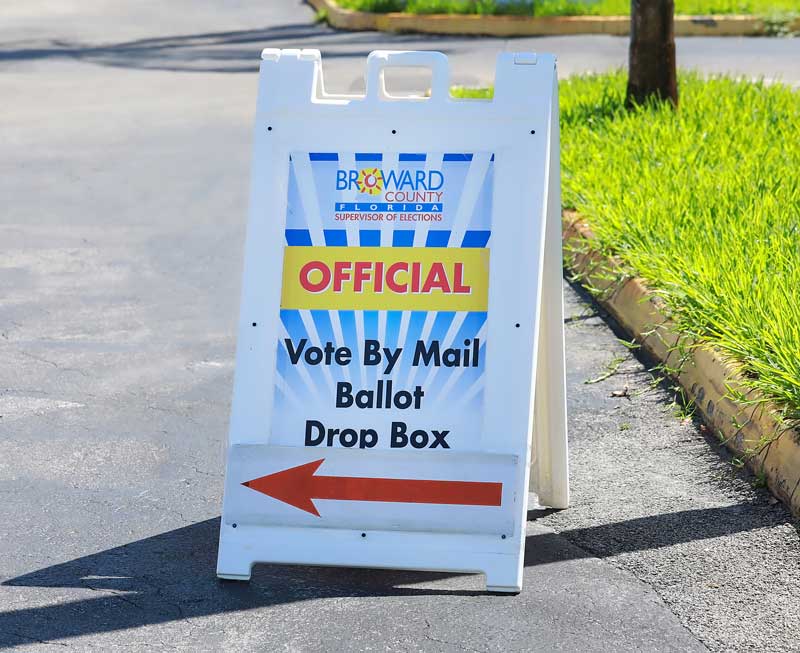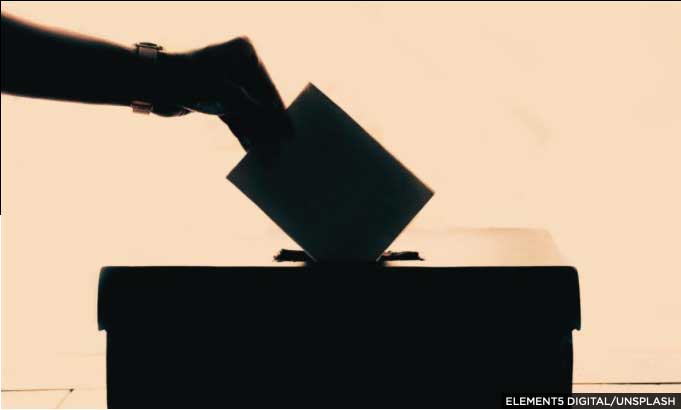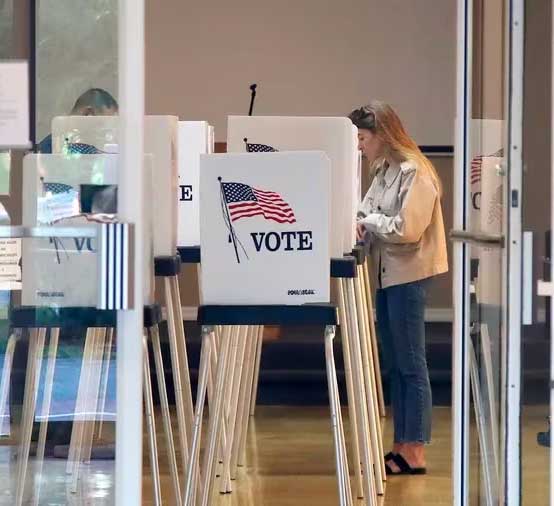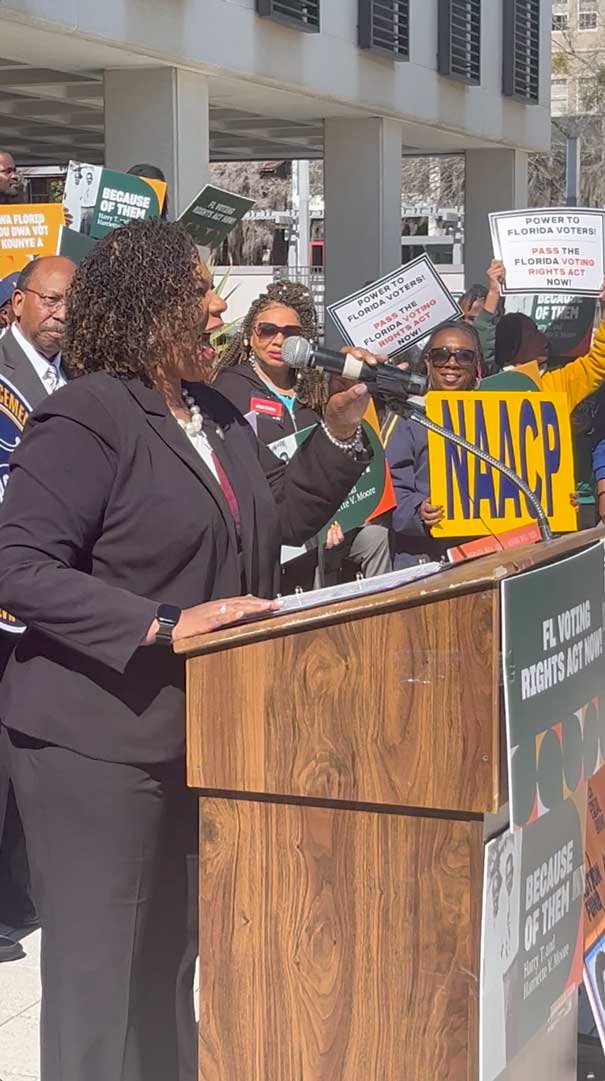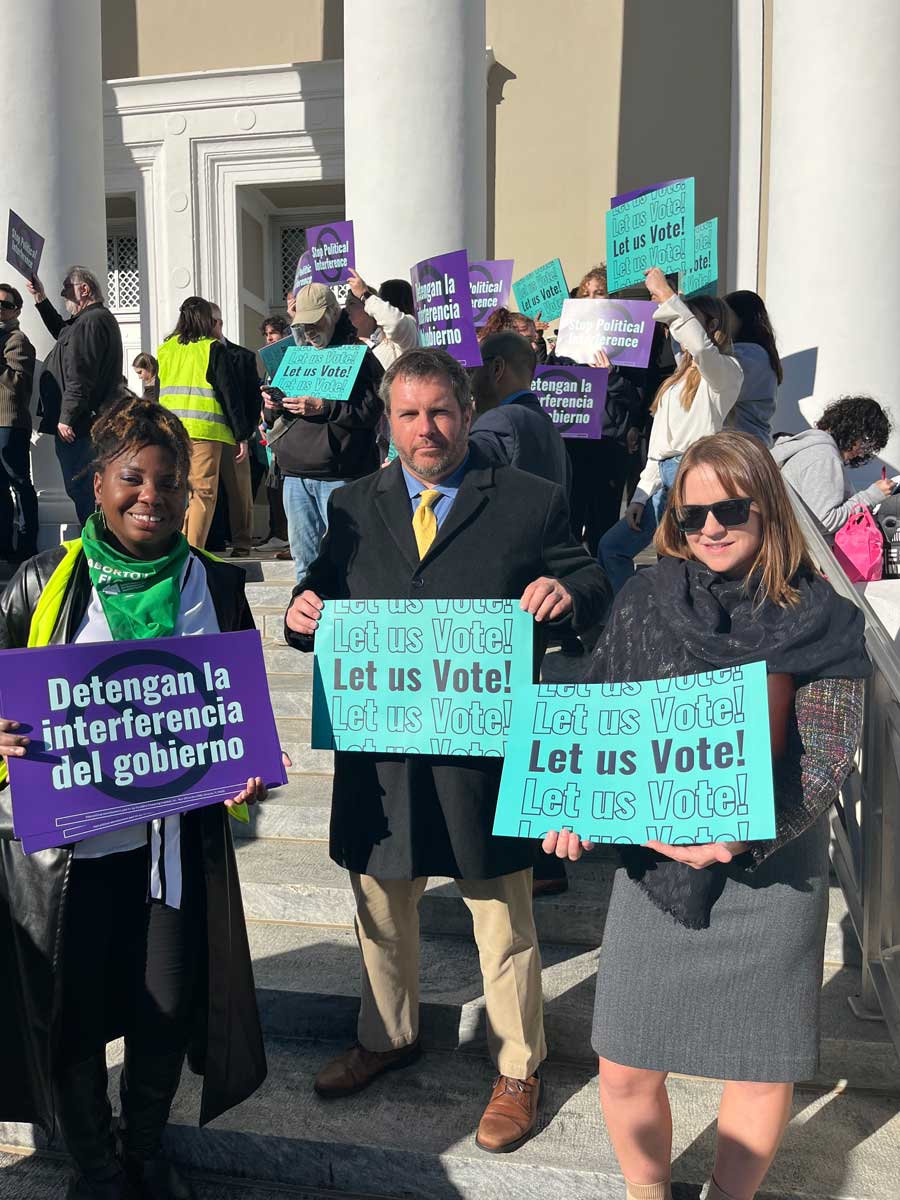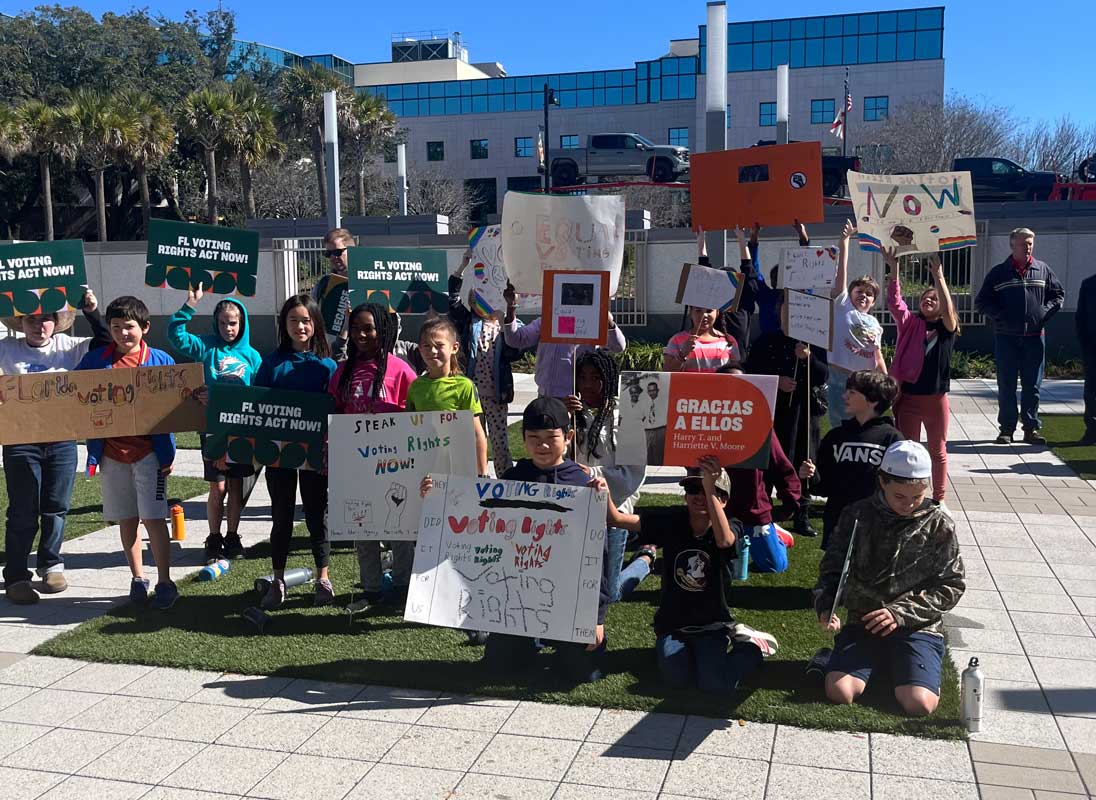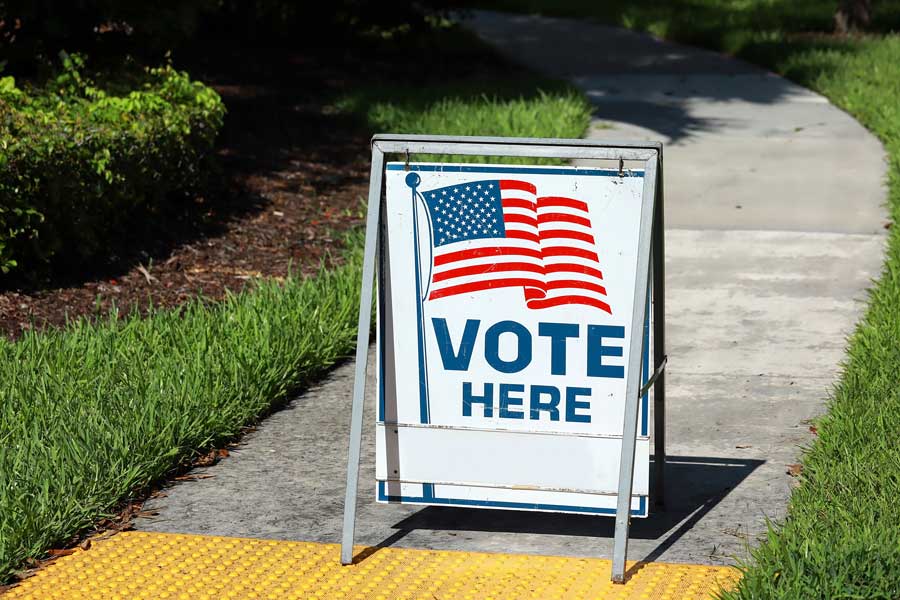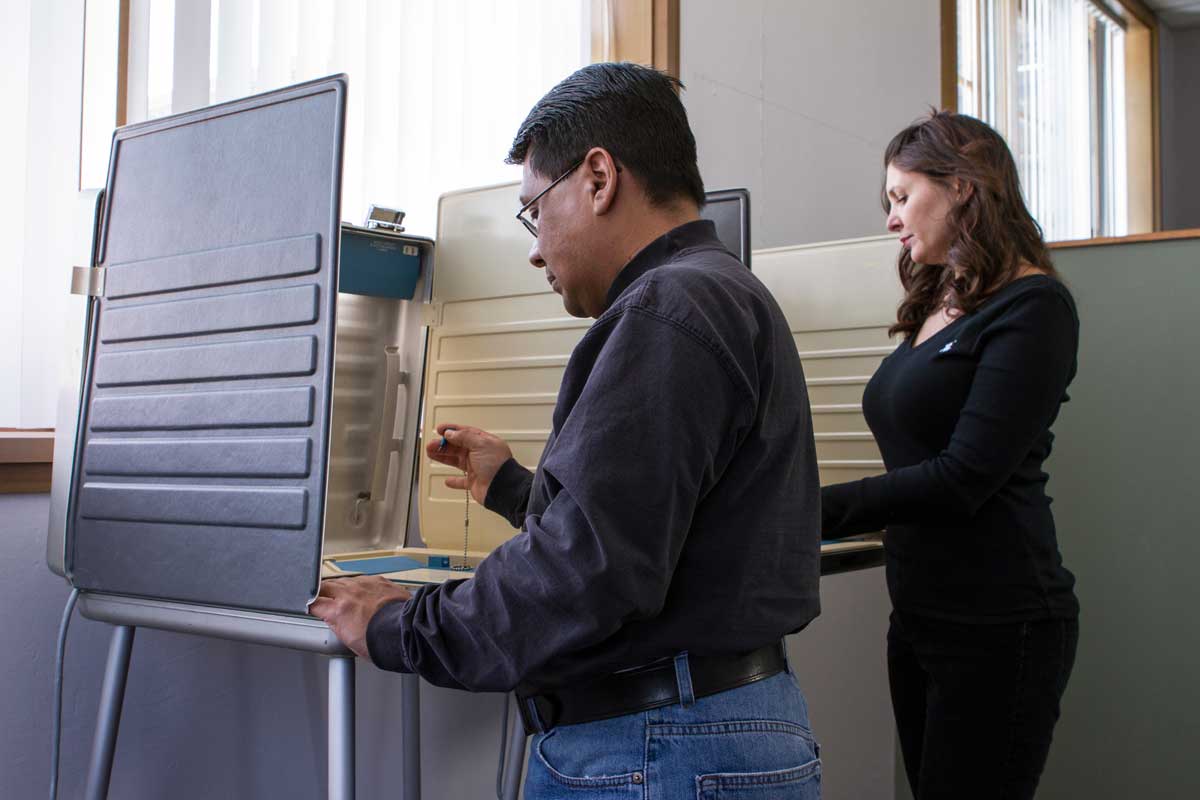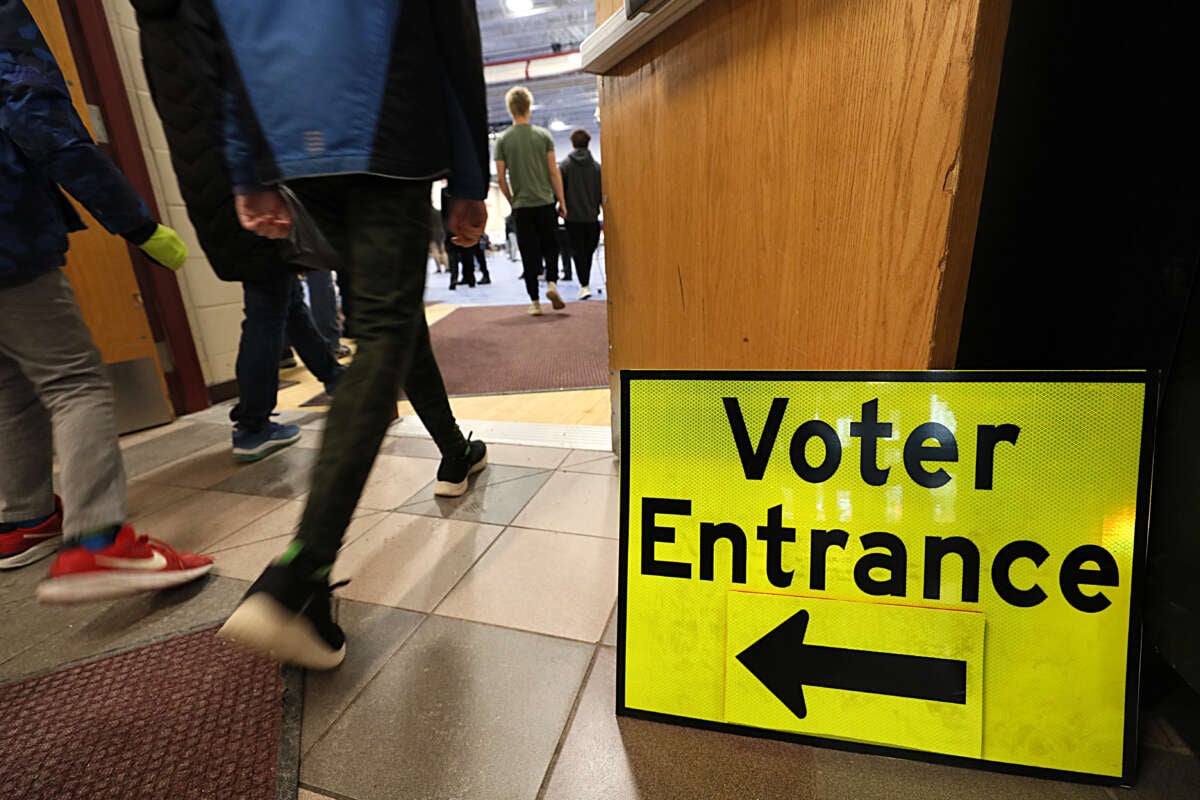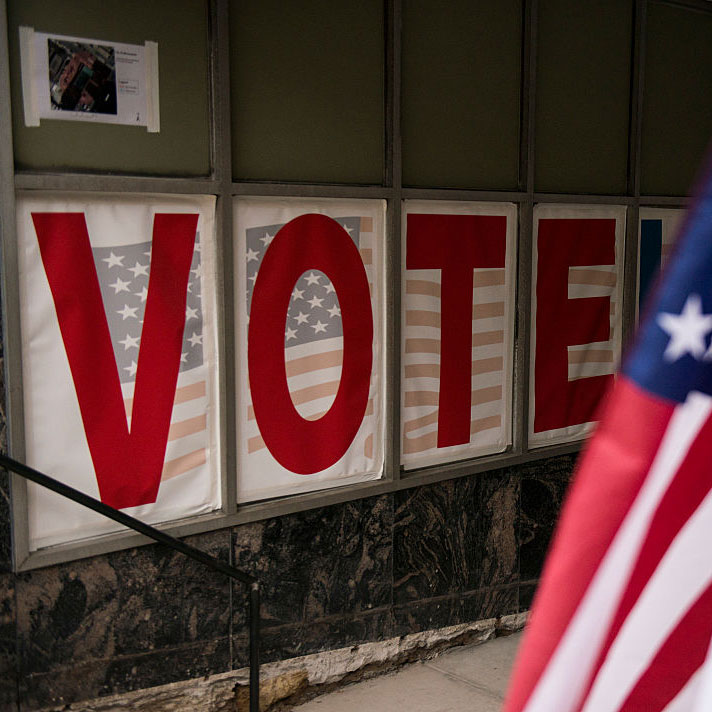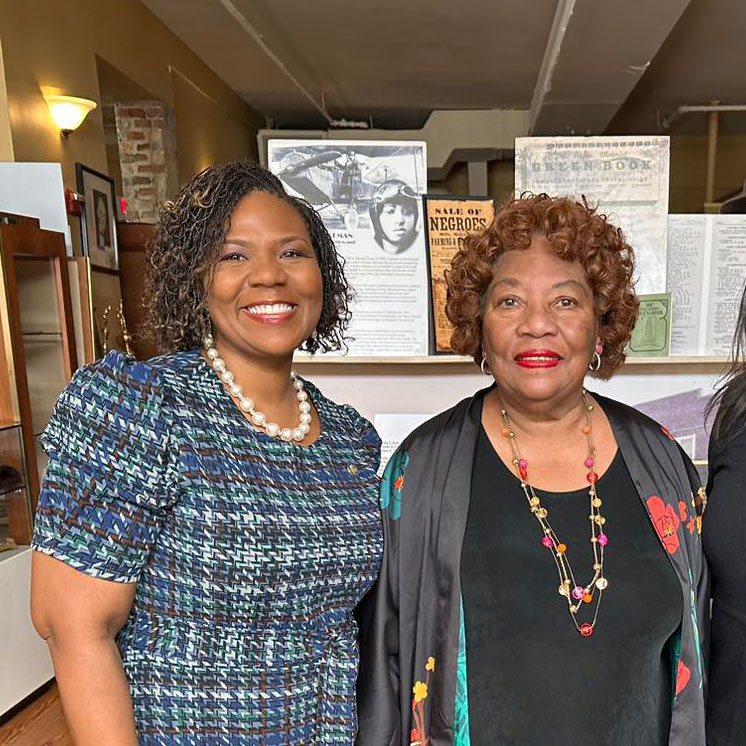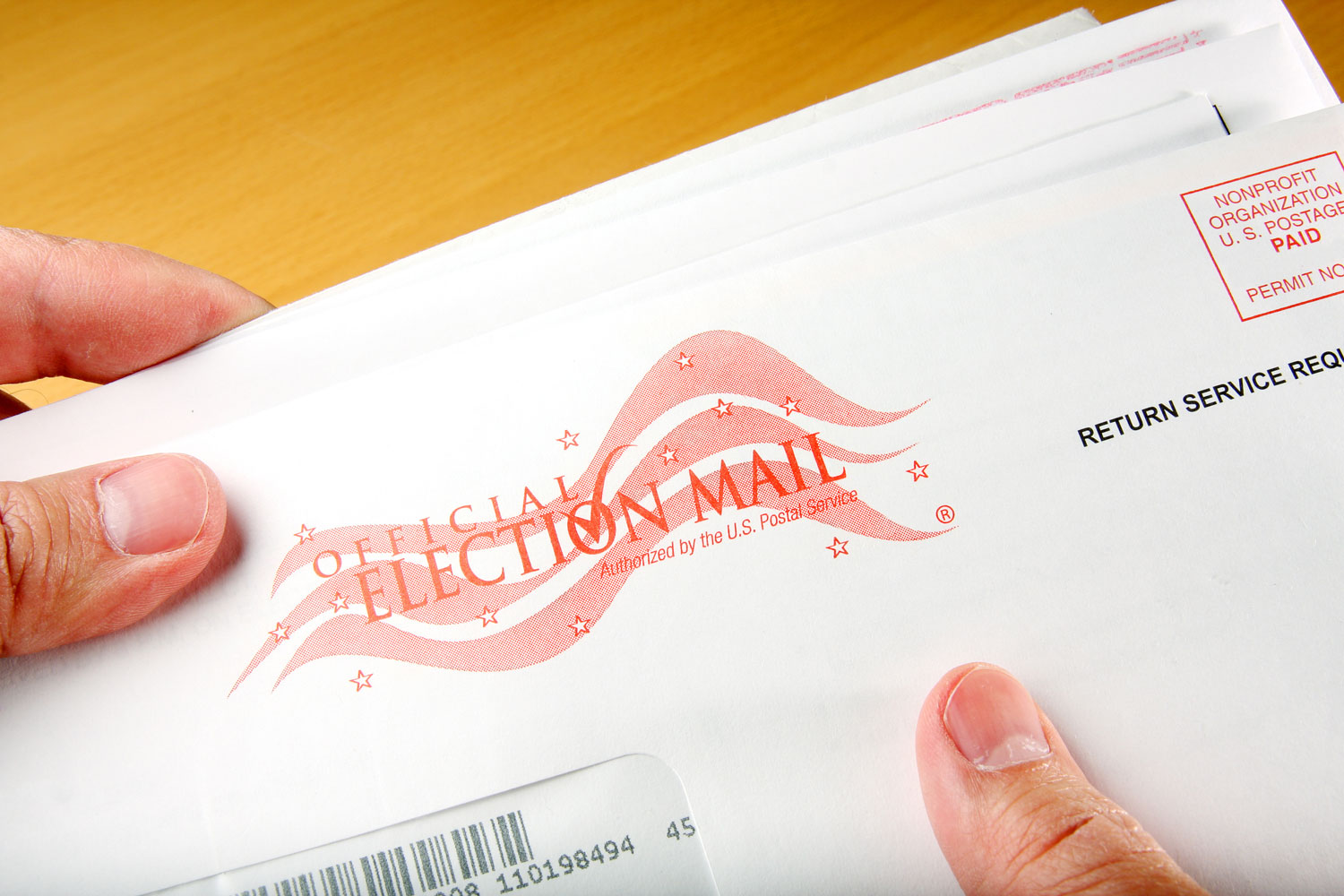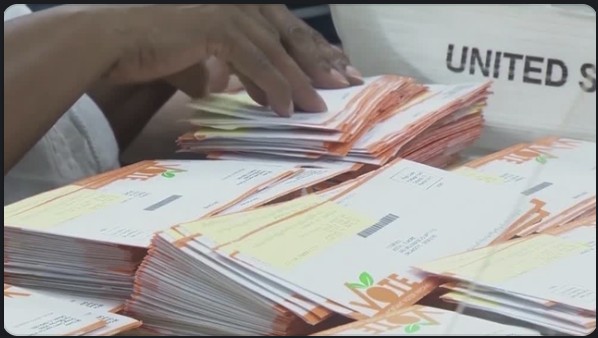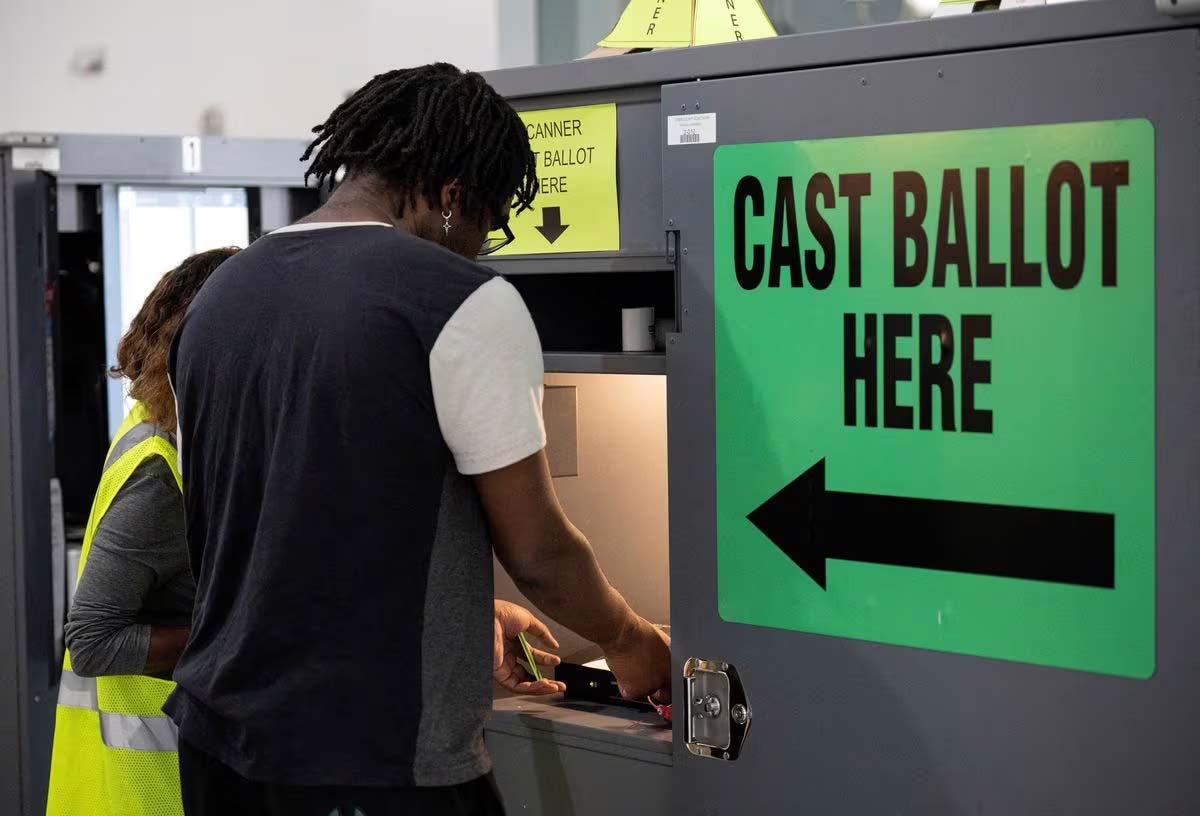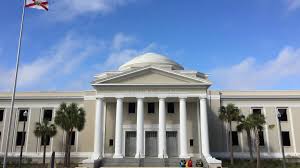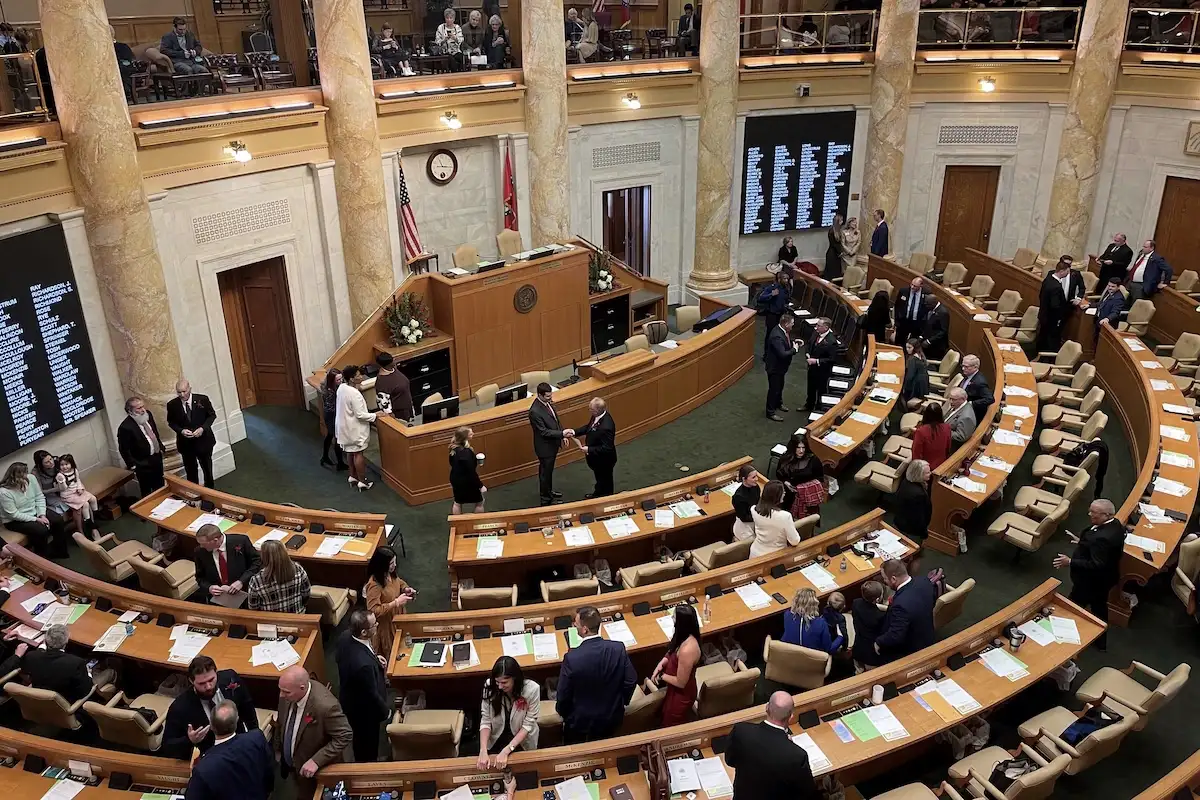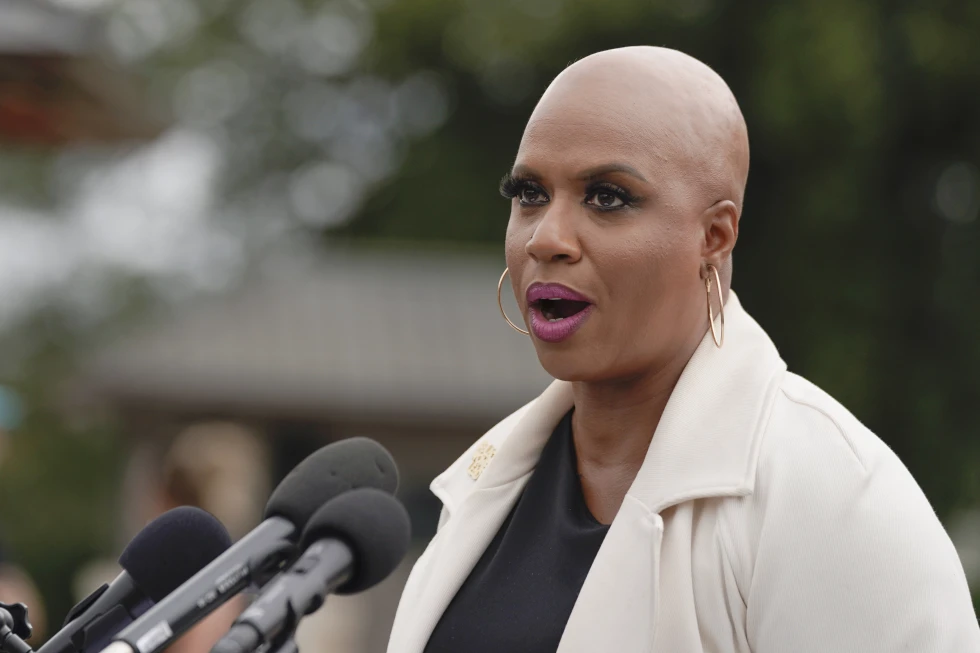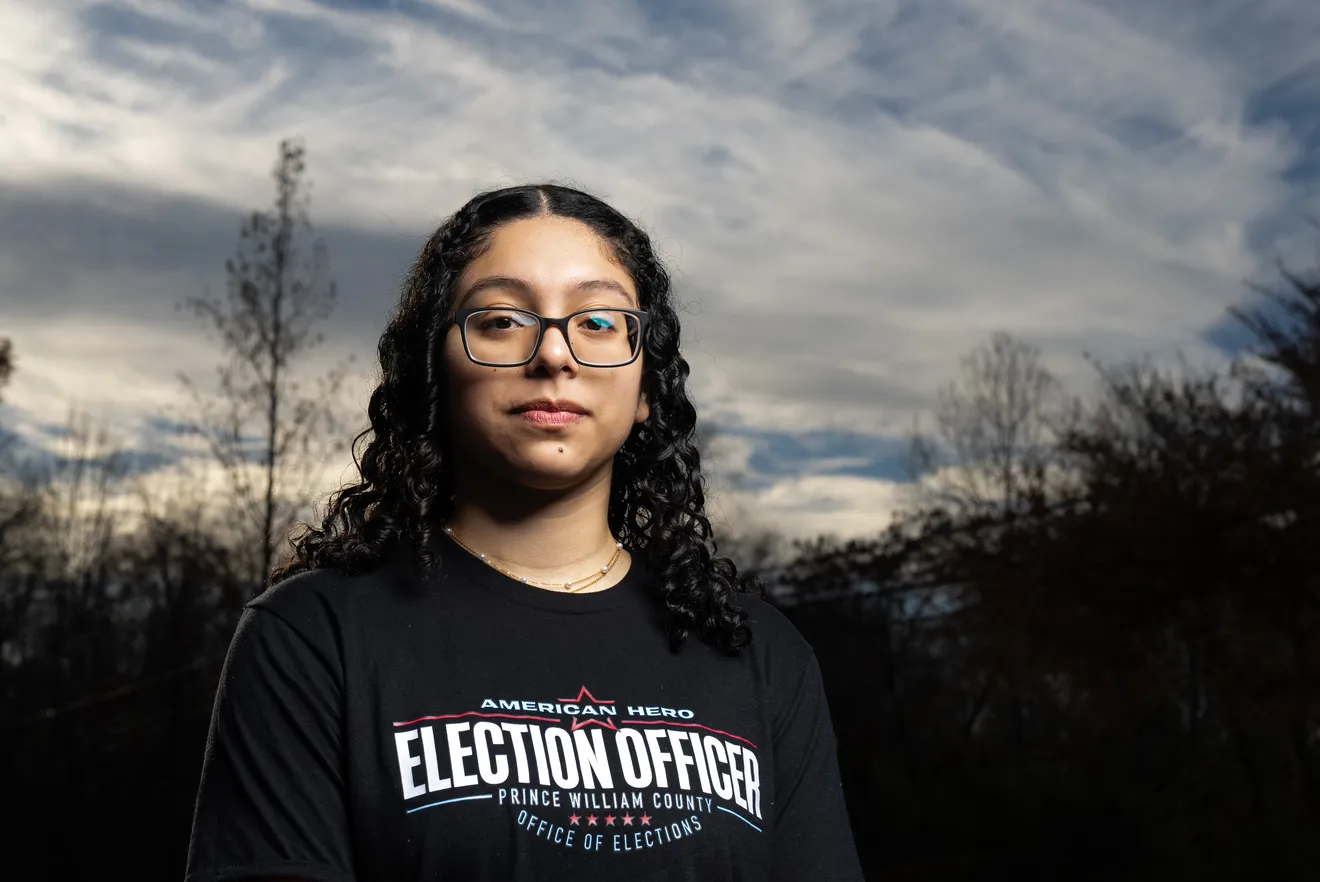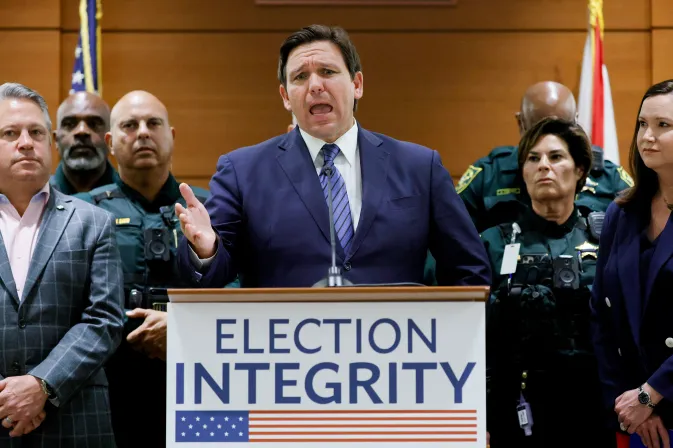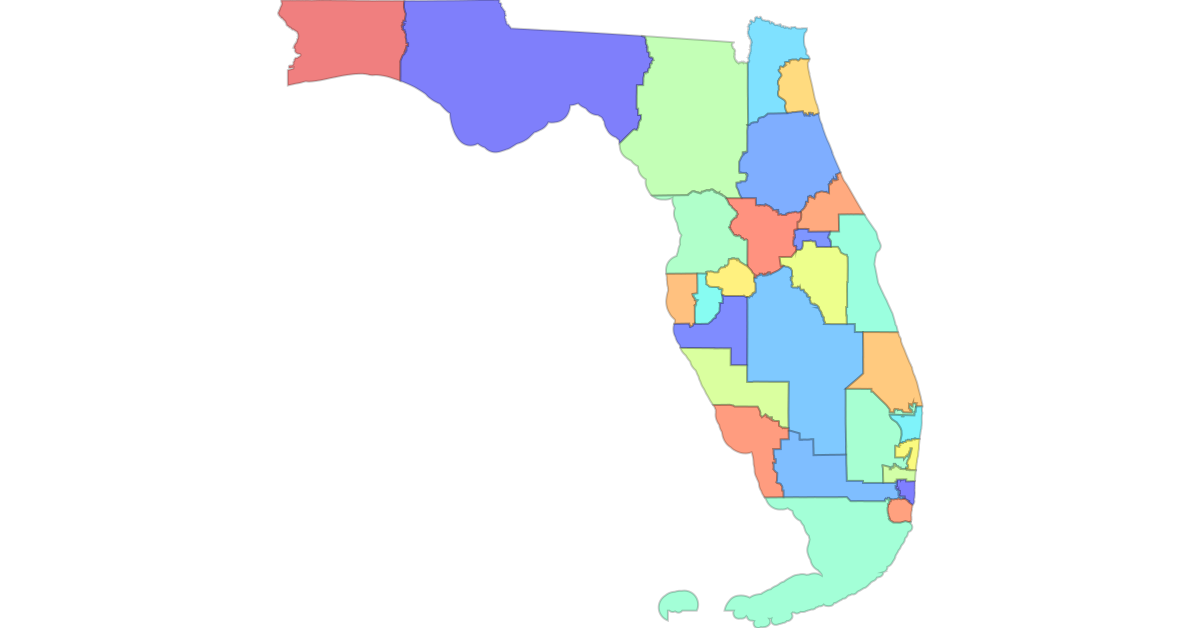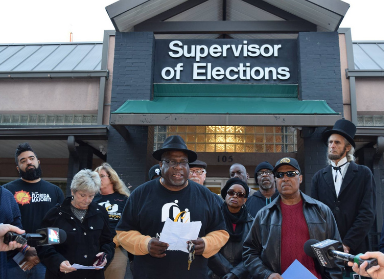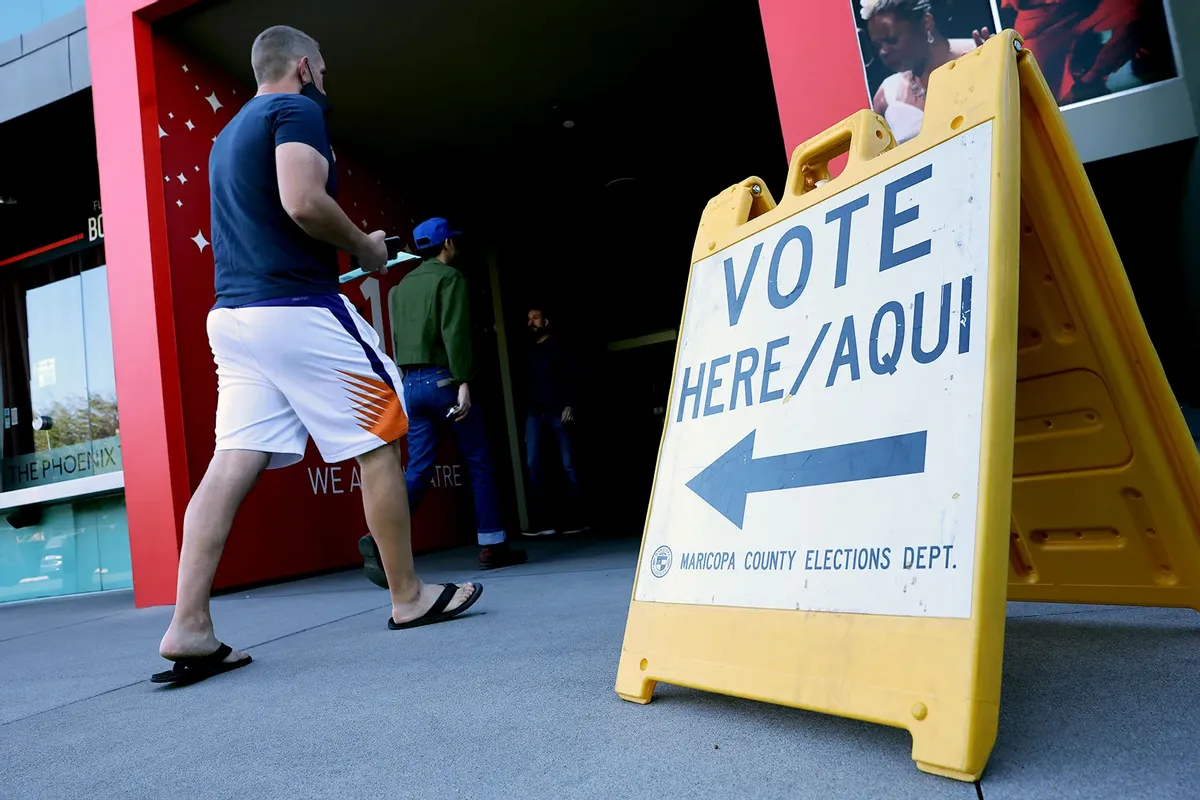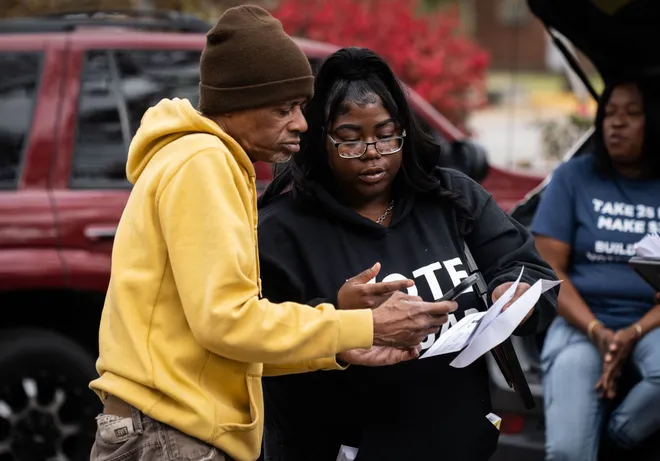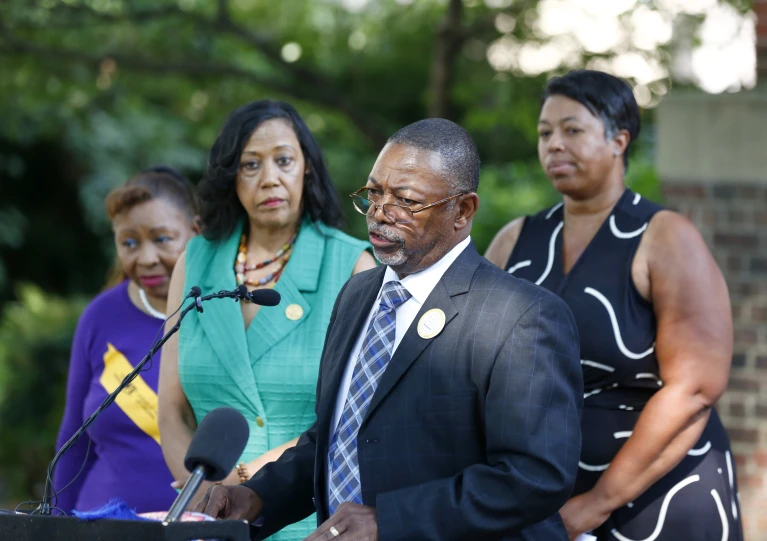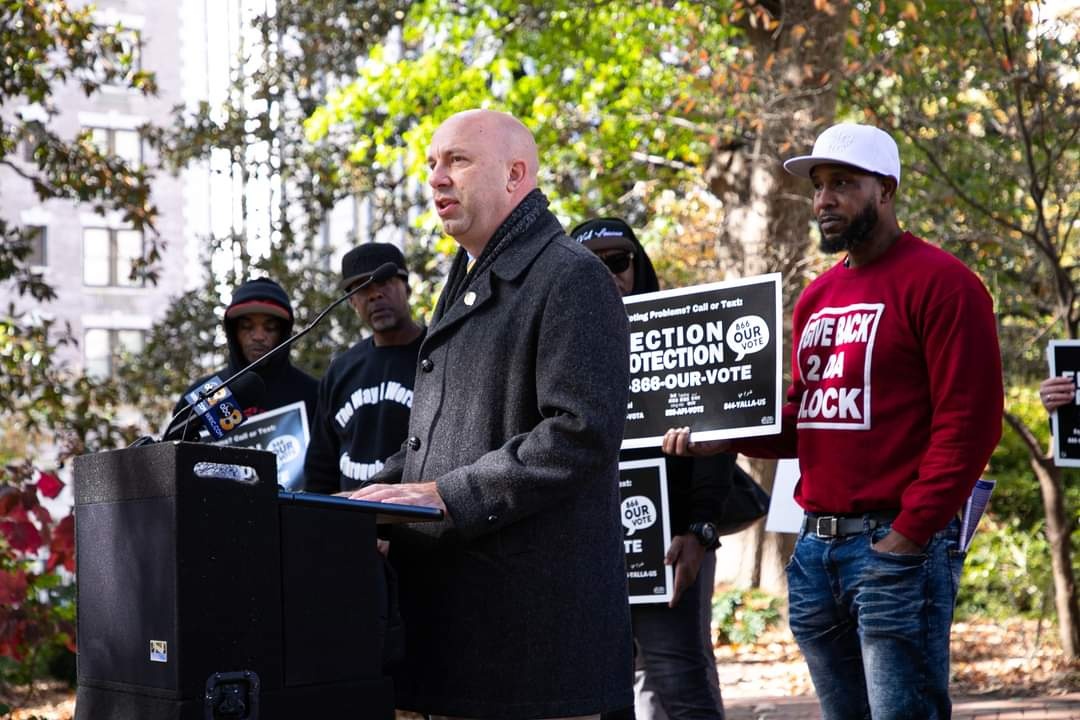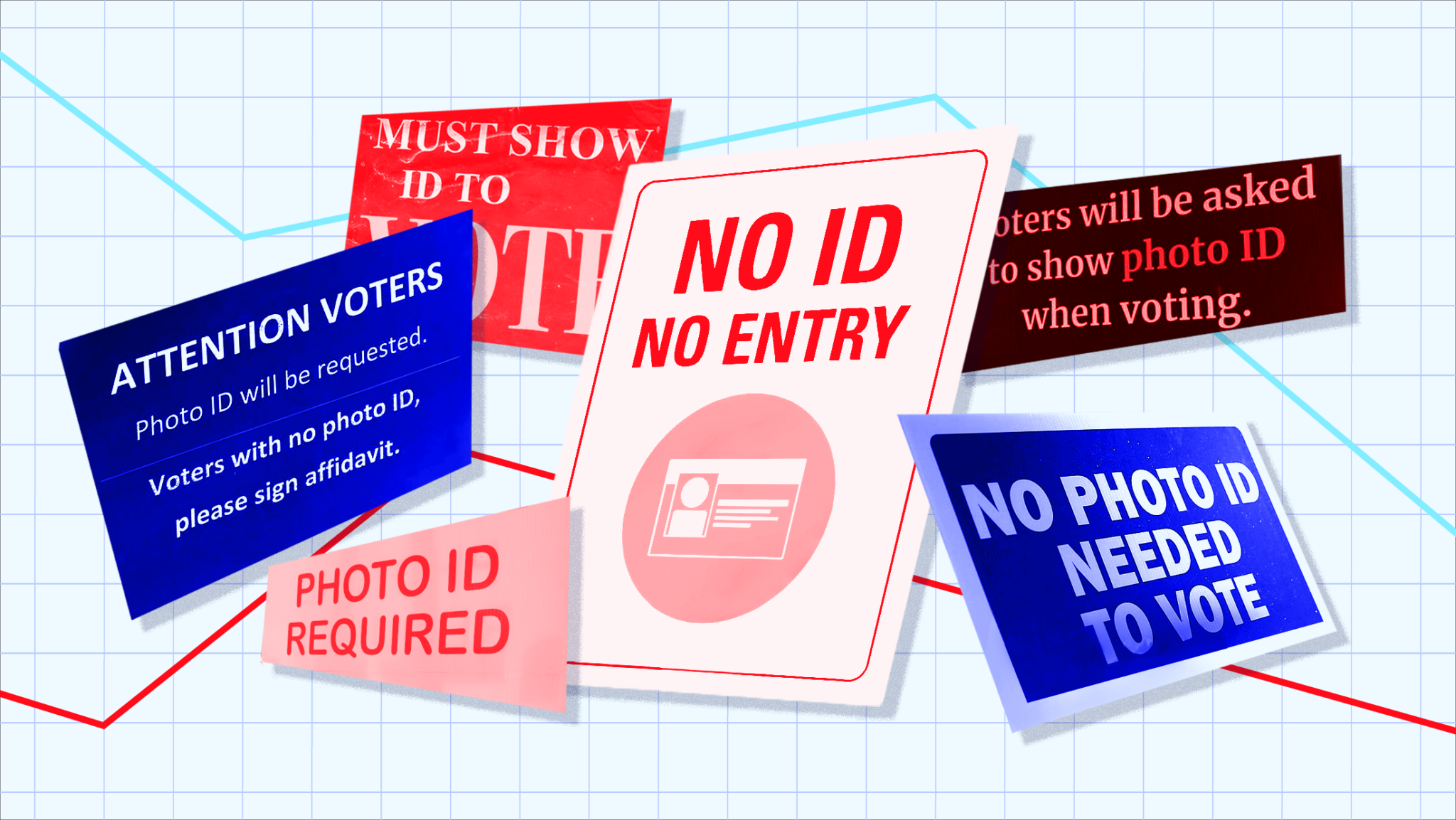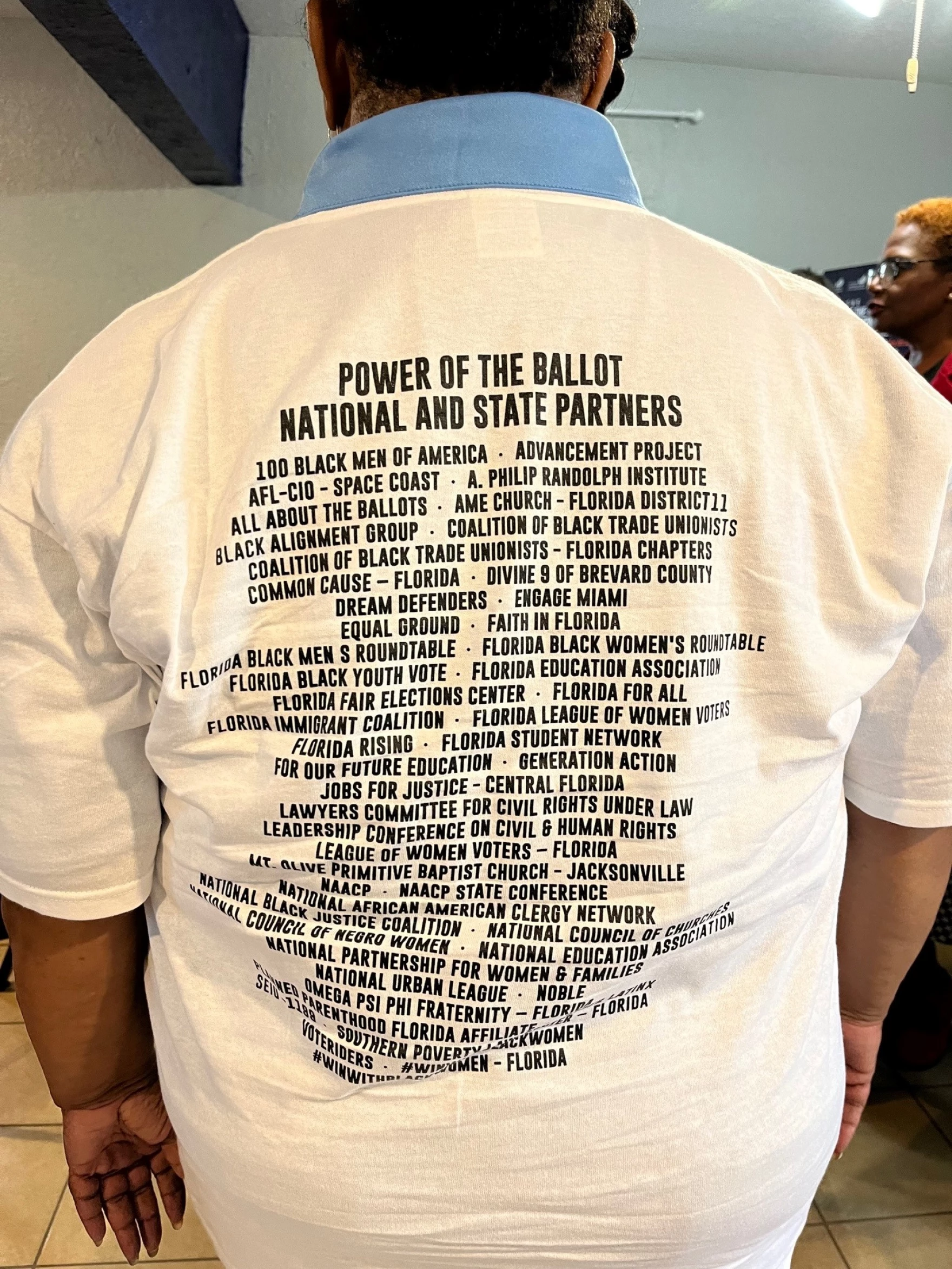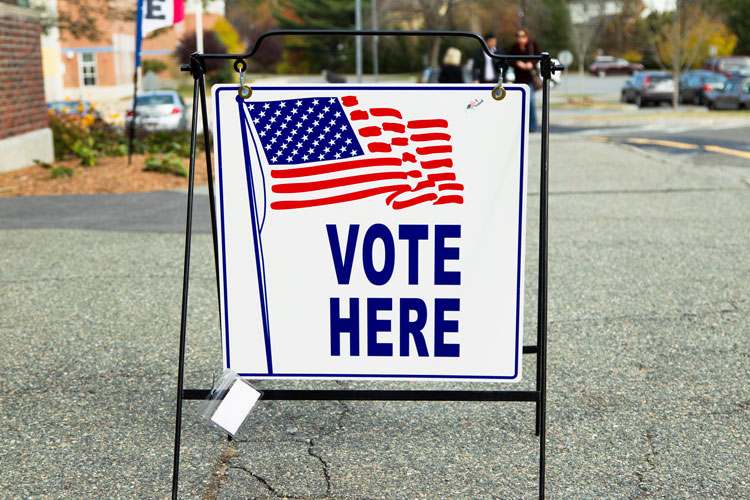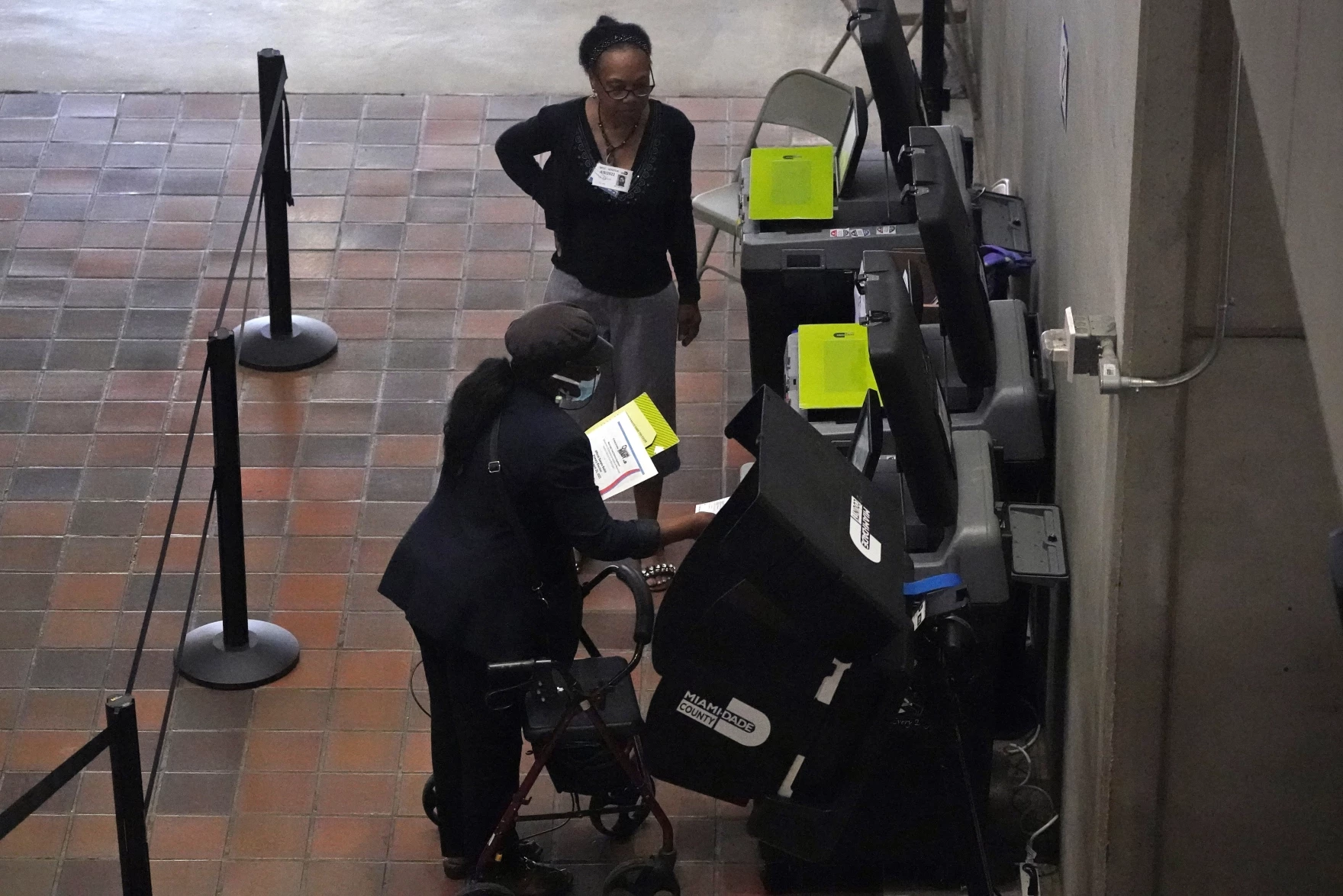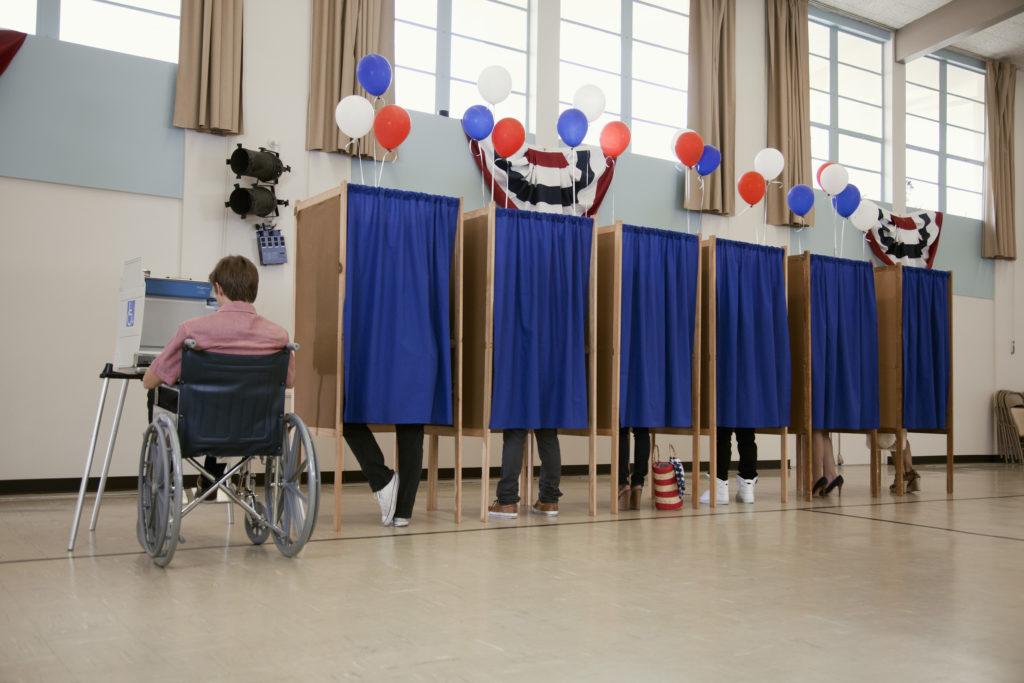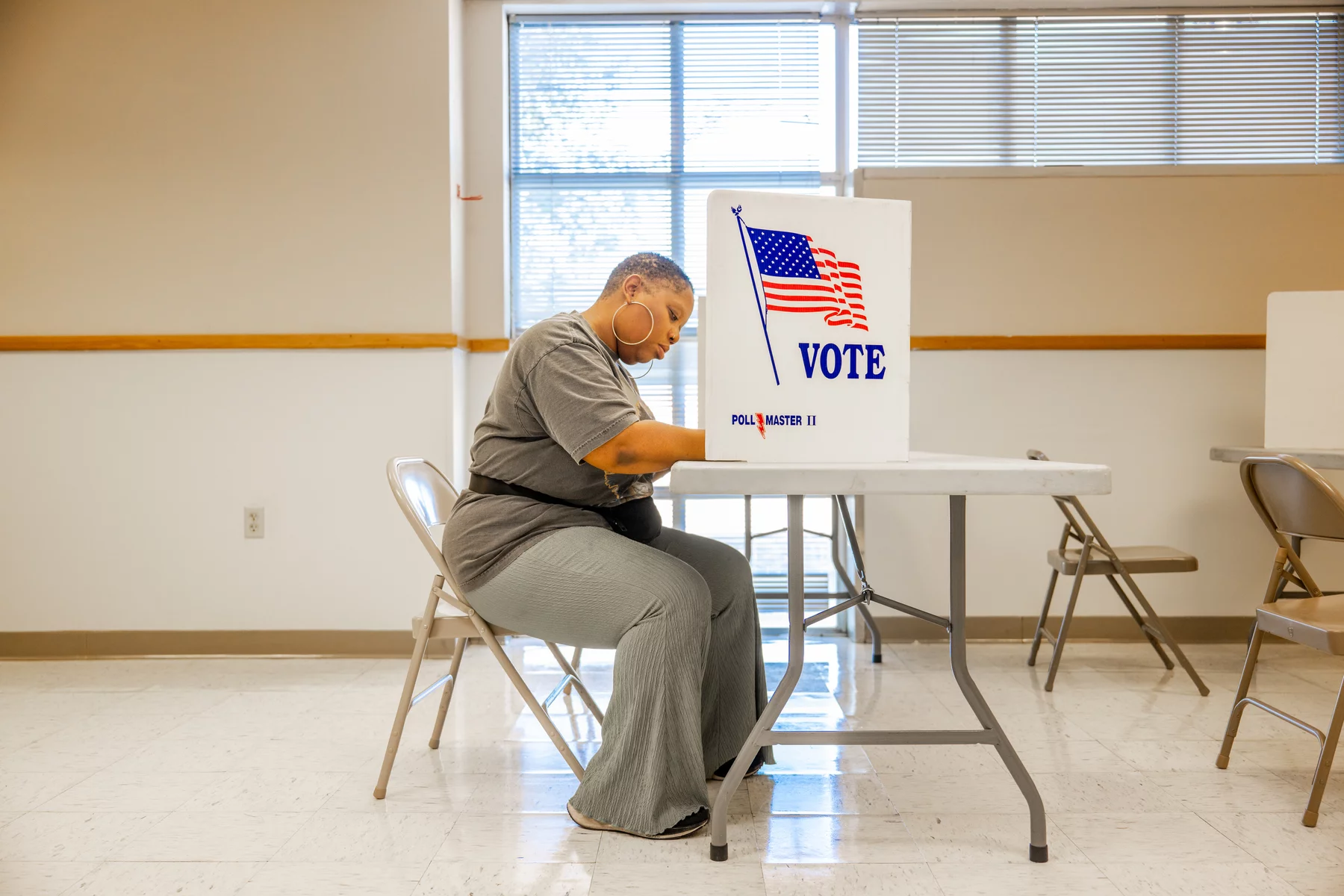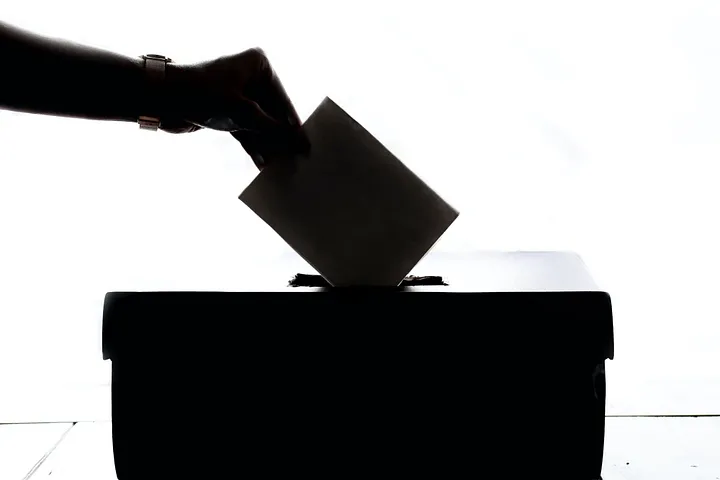Empowering the Latino community to actively shape our future is one of the things I hold closest to my heart. For me, voting is not just a right; it’s a responsibility — one that enables us to elect leaders who will build the Florida we want and deserve. Like many women citizens, I am driven by the desire to create a better tomorrow — not just for myself, but for my family as well. While the journey is demanding, it’s deeply rewarding because our community is eager to take part in positive, transformative change. Sadly, the barriers to our participation in this democratic process are growing.
For years, especially since the 2020 elections, my community has found itself at the heart of anti-voter rhetoric, largely fueled by conspiracy theorists and election deniers. These voices have weaponized false claims about illegal voting, attempting to vilify immigrant communities like ours. They’ve created a narrative that portrays us as fraudsters trying to exploit the system.
The reality couldn’t be further from the truth. What’s happening is simple: we are being scapegoated to push policies that will restrict access to the ballot box, aimed at diminishing the voting power of millions across our nation.
We’ve already witnessed the damage from such policies. From Trump’s Executive Order on Elections to the SAVE Act now pending in Congress, and even Florida’s own HB 1381, these measures have one thing in common: they require voters to prove their citizenship before being allowed to vote. Whether by birth certificate or passport, these “proof of citizenship” policies create a problem where none exists, because we have systems and safeguards in place to ensure only eligible voters can cast a ballot.
WASHINGTON – Dozens of states across the country are considering their own versions of a federal voting bill critics say could disenfranchise millions of Americans, including many married women.
Republican lawmakers in 24 states introduced measures requiring people to prove their citizenship, using documents such as birth certificates or passports, when they register to vote, according to the nonpartisan Voting Rights Lab. Three other states – Louisiana, New Hampshire and Wyoming – have enacted similar laws in recent months.
Supporters call the efforts a security measure and say they’re trying to reinforce laws barring noncitizens from voting. But voting rights advocates argue it’s already exceedingly rare for noncitizens to vote – and the laws could make it more difficult for millions of Americans to cast a ballot.
Opponents are particularly concerned the requirements will hit rural communities, military personnel and married women. About 83% of married women changed their name, and for many that means their birth certificates don’t match their current ID.
Listen closely to the arguments of the House Republicans pushing the so-called ‘Safeguard American Voter Eligibility (SAVE) Act’ and you realize they aren’t interested in solving the problem the bill purports to address: non-citizens voting in federal elections. If you take the proponents of the bill at their word — that the measure is needed ‘to increase integrity of elections’ because ‘non-citizen voting decreases confidence in our elections’ — you’d expect a targeted proposal aimed at increasing enforcement with the goal of curbing the small percentage of non-citizen votes cast in any election. Instead, the SAVE Act uses a bazooka to kill a gnat. It prohibits state election officials from registering anyone to vote in federal elections unless the person ‘provides documentary proof of United States citizenship’ and produces, in person, either a passport or birth certificate.”
It is impossible to understand the United States without understanding the Civil War and Reconstruction. The American constitutional order went through more changes during those two decades than in the other 230 years of its existence combined. Now the Supreme Court may soon have another opportunity to revisit their contested aftermath.
A group of Virginia election officials asked the justices last month to effectively nullify one of the Reconstruction-era laws that set the terms for the state’s postwar readmission to the Union. In doing so, they hope to maintain a strict regime of disenfranchising Virginians with felony convictions that the Reconstruction-era Congress sought to prevent. Should the justices let the lower court’s decision stand, it could breathe new life to a long-forgotten congressional effort to protect multiracial democracy in the South.
The case springs from a decade-long conflict over the Virginia state constitution and its strict felon-disenfranchisement provision. Twenty-four states impose some sort of legal barrier on their residents’ right to vote after being convicted of a felony. Many of those states restore a prisoner’s voting rights after they complete their sentence, including probation and parole. Others make it permanent for certain crimes.
Virginia is an outlier: Anyone convicted of a felony in the state is automatically and permanently disenfranchised upon conviction. (They are also excluded from jury service and certain other civic rights and duties.) Under the state constitution, which was most recently rewritten in 1971, Virginians with felony convictions can only regain their right to vote after their “civil rights have been restored by the governor.”
When it comes to voting, Florida elected officials love to toot our own horn, claiming we are the “Free State of Florida” and a gold standard in elections. What those officials don’t say is that just a few short years ago, we were the gold standard.
Now, Florida’s elected leaders are increasingly making it harder for eligible Florida voters to, well, vote. They are, in effect, picking their voters to ensure they remain in power. We’re seeing a perfect example of this playing out right now. House Bill 1381 is a terrible bill that will cause chaos and confusion for voters and election officials. It will make things especially hard for Florida’s seniors, students and rural voters. In fact, any eligible Florida voter with no valid passport or birth certificate that matches their current legal name could be kicked off the voter rolls.
Florida legislators were given an option to change that. In a strike-all amendment proposed in committee by Rep. LaVon Bracy Davis, they were given the ability to advance reforms that would help more eligible Florida voters access the ballot while maintaining the safety and security of our elections. They were given the option to move the Florida Voting Rights Act forward and once again make Florida the gold standard in elections. But legislators on the committee picked the bad option that makes voting harder for thousands.
While much of the spotlight in Washington has been on budget fights and new tariffs, the House passed a bill that could reshape how Americans register to vote. The Safeguard American Voter Eligibility Act (SAVE Act) would require voters to show proof of U.S. citizenship — such as a passport or birth certificate — in person when registering to vote or updating their voter registration. The measure now moves to the Senate, where Democrats have promised to block it.
Supporters of the SAVE Act argue the bill is needed to ensure noncitizens don’t vote in American elections. Studies and state level audits have found such cases are rare and only account for a tiny percentage of votes.
Republicans have long pushed for stricter laws to combat voting fraud, but experts warn the bill would undermine elections because millions of eligible Americans will face new barriers to voter registration. To understand the potential impact, NPR’s Michel Martin spoke with Sean Morales-Doyle, director of the Voting Rights and Elections Program at the nonpartisan Brennan Center for Justice, which opposes the legislation.
President Donald Trump’s plan to overhaul elections could hurl 2026 into turmoil by forcing states to hand-count ballots or scramble to spend millions of dollars on voting systems that aren’t yet on the market, according to election officials and voting experts.
If put into effect, his recent executive order attempting to transform elections could make it impossible for some states to use voting machines, election experts said. No voting systems are commercially available that meet the standards the president put forward in his executive order. Election officials broadly oppose hand-counting ballots as an alternative because the practice is time-consuming and prone to errors.
If Trump’s plan ever comes to fruition, it could hit taxpayers hard. Outfitting every state with new machines could cost $1 billion or more.
“It will create chaos in the states, and it seems almost designed to create chaos,” said David Becker, executive director of the nonprofit Center for Election Innovation and Research.
The U.S. House has passed a bill that voting rights groups have repeatedly warned would make it harder for millions of Americans, including married women, to vote.
The Republican-controlled House on Thursday voted for the Safeguard American Voter Eligibility (SAVE) Act. The legislation purportedly aims to block non-citizens from voting, which is already illegal and is very rare.
The bill would require an individual to present in person a passport, birth certificate or other citizenship document when registering to vote or updating their voter registration information.
Voting rights groups have said the bill will pose a barrier for millions of American women and others who have changed their legal name because of marriage, assimilation or to better align with their gender identity. An estimated 69 million American women and 4 million men do not have a birth certificate that matches their current legal name.
WASHINGTON (AP) — Democratic officials in 19 states filed a lawsuit against President Donald Trump’s attempt to reshape elections across the U.S., calling it an unconstitutional invasion of states’ clear authority to run their own elections.
Thursday’s lawsuit is the fourth against the executive order issued just a week ago. It seeks to block key aspects of it, including new requirements that people provide documentary proof of citizenship when registering to vote and a demand that all mail ballots be received by Election Day.
“The President has no power to do any of this,” the state attorneys general wrote in court documents. “The Elections EO is unconstitutional, antidemocratic, and un-American.”
White House spokesperson Harrison Fields responded to the lawsuit Friday, calling the proof-of-citizenship requirements “common sense” and objections from Democrats “insane.”
“The Trump administration is standing up for free, fair, and honest elections and asking this basic question is essential to our Constitutional Republic,” he said in a statement.
WASHINGTON (AP) — Democratic officials in 19 states filed a lawsuit against President Donald Trump’s attempt to reshape elections across the U.S., calling it an unconstitutional invasion of states’ clear authority to run their own elections.
Thursday’s lawsuit is the fourth against the executive order issued just a week ago. It seeks to block key aspects of it, including new requirements that people provide documentary proof of citizenship when registering to vote and a demand that all mail ballots be received by Election Day.
“The President has no power to do any of this,” the state attorneys general wrote in court documents. “The Elections EO is unconstitutional, antidemocratic, and un-American.”
White House spokesperson Harrison Fields responded to the lawsuit Friday, calling the proof-of-citizenship requirements “common sense” and objections from Democrats “insane.”
“The Trump administration is standing up for free, fair, and honest elections and asking this basic question is essential to our Constitutional Republic,” he said in a statement.
The House of Representatives is expected to vote soon on the Safeguard American Voter Eligibility Act, a Republican-backed bill that would reshape the federal elections process.
Known as the SAVE Act, the proposed legislation would tighten voter registration requirements by mandating proof of citizenship for federal elections.
The bill was scheduled for a vote in early April, but on April 1, Speaker Mike Johnson canceled remaining votes for the week — pushing the timeline back.
Republicans argue the legislation will safeguard elections by ensuring non-citizens cannot vote — something President Donald Trump has repeatedly claimed is a major problem.
But elections experts say that non-citizen voting — which is already criminalized — is “vanishingly rare.” And they caution the bill will instead make voting more burdensome for American citizens, particularly married women and rural residents.
“The practical difficulties that this act would entail if it were passed aren’t small, even if the concept sounds unremarkable,” Justin Levitt, a constitutional law professor at Loyola Law School, told McClatchy News.
Here’s what to know about the SAVE Act.
Democratic lawmakers and civil rights groups are pushing a revised and expanded Harry T. and Harriette V. Moore Florida Voting Rights Act, including permanent vote-by-mail requests and other provisions which Republicans will surely reject.
Florida House Representative LaVon Bracy Davis, an Orlando Democrat, and State Senator Tracie Davis, a Jacksonville Democrat, recently announced the filing of the Harry T. and Harriette V. Moore Florida Voting Rights Act (HB 1409, SB 1582). Senator Davis will proudly carry this legislation during the 2025 legislative session in honor of her friend and colleague, Senator Geraldine Thompson, who tragically passed away in February.
The Democrats say the landmark legislation will position Florida as a voter-friendly state – ensuring the registration and voting process for Floridians before, during, and after they fulfill their civic duty at the ballot box is accessible and straightforward.
he first months of the new Trump administration have been dizzying with the breadth of executive actions to slash the social safety net, further enrich the wealthy, and inflame division based on outdated notions about culture and identity. While White House policy pronouncements have come with flair and political theater – such as the president signing orders on a Jumbotron – in Congress there are quieter but equally pernicious efforts aimed at silencing the votes and voices of communities across the country.
One such piece of legislation is the so-called Safeguard American Voter Eligibility Act, or Save Act, which would require Americans seeking to register or re-register to vote to prove US citizenship. This dangerous bill would in effect strip millions of Americans of their access to the vote, while making the voting process more difficult and burdensome for everyone else. Rather than make our elections more secure, the Save Act would disenfranchise millions based on nothing but a series of debunked conspiracy theories.
WASHINGTON (AP) — With the stroke of his pen, President Donald Trumprestructured the way Americans can register to vote and when they can cast their ballots. Or did he?
After the president signed his executive order Tuesday calling for broad election changes, such as proof of citizenship for voter registration and an Election Day return deadline for mailed ballots, election officials, state attorneys general and legal experts said it would face legal challenges for encroaching on state powers outlined in the U.S. Constitution.
The order is “unlawful,” Colorado Democratic Secretary of State Jena Griswold said in a statement.
“This cannot be done through executive action,” said David Becker, a former U.S. Justice Department attorney who leads the nonprofit Center for Election Innovation and Research.
New Jersey Attorney General Matt Platkin said he expects his and other states will challenge the executive order, just as they have several other of Trump’s actions. He said he’s never seen a president threaten the integrity of state election rules like Trump did through his order.
A super PAC tied to billionaire Elon Musk has started spending in two deeply Republican House seats in Florida ahead of next week’s special elections, according to a new campaign finance report.
America PAC, which has not filed a financial disclosure form yet this year but was almost entirely funded by Musk last year, is spending $20,000 on “texting services” to boost Florida Chief Financial Officer Jimmy Patronis in the 1st Congressional District and state Sen. Randy Fine in the 6th District, according to a report filed with the Federal Election Commission on Tuesday night, which was first reported by The New York Times.
America PAC’s spending in the special elections is minimal so far compared with the millions of dollars that have already been spent there. But it is a sign that Musk may be paying attention to the contests, as he continues to ramp up his political engagement while he serves as a key White House adviser. America PAC has also spent millions of dollars on next week’s state Supreme Court race in Wisconsin.
Tuesday’s special elections in Florida are taking place in deeply Republican territory. President Donald Trump carried the 1st District by 37 points in November and the 6th District by 30 points, according to election result calculations from the NBC News Decision Desk.
NEW YORK (AP) — President Donald Trump on Tuesday signed a sweeping executive action to overhaul elections in the U.S., including requiring documentary proof of citizenship to register to vote in federal elections and demanding that all ballots be received by Election Day.
The order says the U.S. has failed “to enforce basic and necessary election protections” and calls on states to work with federal agencies to share voter lists and prosecute election crimes. It threatens to pull federal funding from states where election officials don’t comply.
The move, which is likely to face swift challenges because states have broad authority to set their own election rules, is consistent with Trump’s long history of railing against election processes. He often claims elections are being rigged, even before the results are known, and has waged battles against certain voting methods since he lost the 2020 election to Democrat Joe Biden and falsely blamed it on widespread fraud.
Trump has focused particularly on mail voting, arguing without evidence that it’s insecure and invites fraud even as he has shifted his position on the issue given its popularity with voters, including Republicans. While fraud occurs, it’s rare, limited in scope and gets prosecuted.
JACKSONVILLE, Fla. — Dozens of demonstrators rallied outside the state attorney’s office Saturday afternoon, calling on State Attorney Melissa Nelson to reopen the case against the 18-year-old accused of threatening voters with a machete in October.
Three months after the incident outside a Neptune Beach polling location, the state attorney’s office decided not to prosecute 18-year-old Caleb Williams.
Now, Jacksonville advocacy groups and community activists have made it known loud and clear that they want Williams held accountable.
“Voter intimidation is still here, and we want it to stop,” said Northside Coalition of Jacksonville President Kelly Frazier. “It’s 2025 now, and we don’t want to hear more episodes of this.”
On Oct. 29, Williams was arrested and charged with voter intimidation and suppression and aggravated assault for brandishing a machete outside a Neptune Beach polling location and targeting a 71-year-old and a 54-year-old woman, the Neptune Beach Police Department said.
Mahmoud Khalil, a green-card holder and student activist, was arrested by U.S. Immigration and Customs Enforcement on Saturday not for criminal activity, but for things he said. If President Donald Trump gets away with deporting him, as he intends, the danger is that more legal immigrants — possibly U.S. citizens as well — will be punished for exercising their First Amendment freedoms.
A 30-year-old Palestinian raised in Syria, Khalil came to the United States on a student visa in 2022 to pursue a master’s in public administration at Columbia University. He became a high-profile leader of the pro-Palestinian, antiwar movement on campus and attracted the ire of pro-Israel activists — some of whom called for his deportation last week.
On Monday, Trump, who campaigned against campus protests such as the ones that gripped Columbia last spring, bragged about Khalil’s detainment, warning on Truth Social that “this is the first arrest of many to come.”
However, Khalil has not been charged with a crime, and there has been no evidence suggesting he was involved in terrorism.
The U.S. House may soon vote on a bill with a seemingly innocuous name — the SAVE Act, as in “Safeguard American Voter Eligibility Act.”
It is anything but innocuous — especially for the millions of Americans who could find themselves prevented from registering to vote if the SAVE Act is passed.
Ostensibly, the SAVE Act is aimed at preventing people who are in the country illegally from voting in U.S. elections — something that is so rare as to be nearly non-existent.
What its Republican sponsors don’t tell you is that the SAVE Act, with its requirement that people show proof of citizenship, could end up disenfranchising millions of Americans who are and always have been legal citizens of this country.
“It all sounds so reasonable,” said Catherine Turcer, executive director of Common Cause Ohio and a longtime advocate of voter rights. “But it has the potential to prevent so many people from registering to vote, through no fault of their own.”
Given the volume and magnitude of actions taken by the White House since Inauguration Day, it is understandable that most of America’s attention has been focused on the executive branch. What should not be lost in this flurry of activity, however, is legislation being advanced by the 119th Congress that could be just as consequential to the institution most fundamental in a representative democracy: the vote.
The Safeguard American Voter Eligibility Act, or the SAVE Act, would require individuals to provide documentary proof of U.S. citizenship to register to vote in federal elections. It passed in the House in July of 2024 but did not advance in the Senate. Recently reintroduced by Rep. Chip Roy of Texas, the bill now has a heightened chance of success given partisan unity within government.
The consequences of the SAVE Act belie its name by compromising access to the ballot for large swaths of the populace and complicating an already overly complicated process. Moreover, the act undermines the ideals of the “democratic experiment” begun nearly 250 years ago of a republican form of government — an experiment that, until recently, has trended toward expanding rather than restricting suffrage.
After a cycle that delivered them full power in Washington, Republicans are still pushing to change federal election law — and some Democrats are sounding a renewed alarm.
A proposal that aims to bar noncitizens from voting could disenfranchise millions of American women and serve a larger strategy, Rep. Delia Ramirez argued Tuesday.
“The SAVE act is not an election security bill,” said the Illinois Democrat at a House Administration Committee member day hearing. “It’s part of an authoritarian playbook, including the funding freeze and the persecution of diverse cities, and it takes courage and moral clarity to stand against it.”
The legislation — known as the Safeguard American Voter Eligibility (SAVE) Act — was marked up by the committee last Congress and passed the House, before fizzling in the Senate. It would require American voters to provide proof of citizenship to register to vote in federal elections.
It is already illegal for noncitizens to vote in federal elections, and Democrats have lambasted the bill’s limitations on acceptable forms of identification, which they say would make it difficult for married women who have changed their last names to register to vote.
At a recent town hall in the exurbs of Atlanta, Rep. Rich McCormick, R-Ga., faced a torrent of criticism from a woman who accused him of sponsoring legislation that would make it more difficult for married women like her to vote.
She was talking about the Republican-backed Safeguard American Voter Eligibility Act, known as the SAVE Act. Clips of the town hall, where the woman told McCormick the bill was “voter suppression,” have since gone viral on social media.
If enacted, the proposed law would require people to present proof of citizenship, such as a birth certificate or passport, when they register to vote in federal elections. It’s designed to keep undocumented immigrants from voting, though it is already illegal and exceedingly rare for noncitizens to do so.
The bill was first introduced last year by Rep. Chip Roy, R-Texas. It passed the Republican House but was never taken up for a vote in the closely divided Senate. Roy reintroduced the bill in January and, though it is likely to pass the House, it will again face an uphill battle in the Senate, where a handful of Democrats would need to support the measure.
The SAVE Act is back, and it’s dangerous for democracy.
Unlike 2023, when the first national voter suppression law never reached Joe Biden’s desk, this version of the Safeguard American Voter Eligibility Act is on a fast track to Donald Trump.
If it passes, millions of married and divorced women — Republican, independent and Democrat alike — will not be able to vote in federal elections.
All voters would face new hurdles. But birth certificate names are a key to this bill, and only one voting segment routinely changes their birth name: married women.
Under the SAVE Act (H.R. 22), people who register to vote or update their registration, even for something as minor as a change of address, will have to confirm their citizenship.
For most, that would require producing either a birth certificate or a passport.
However, roughly eight in 10 women take their husband’s surname when they marry, and many who divorce keep that name. As a result, their birth certificate name will not match their legal name.
The bill has nothing to say about citizens whose current legal name doesn’t match their birth name.
Federal Judges are allowing a legal challenge to South Florida’s congressional and Florida House districts to move forward.
But the three-Judge panel also said plaintiffs were only allowed to continue a challenge against eight of 10 districts originally called out in federal complaints.
The lawsuit ironically alleges the same motivations behind the cartography that Gov. Ron DeSantis claimed motivated him to veto a congressional map (P 0109) approved by the Legislature before his office submitted the map, which has been in place since 2022.
The lawsuit said Florida’s 26th, 27th and 28th Congressional Districts were all drawn motivated primarily by race. Notably, all three districts are currently represented by Republican Cuban Americans: U.S. Reps. Mario Díaz-Balartof Hialeah, María Elvira Salazar of Coral Gables and Carlos Giménez of Miami-Dade, respectively.
The courts only will allow a legal challenge to CD 26, Díaz-Balart’s district. That notably spans from Immokalee in Collier County to Hialeah and Miami Beach in north Miami-Dade County.
As Florida enters a new election cycle, it’s essential to prioritize voter education.
As of Jan. 1, Florida’s vote-by-mail (VBM) rolls were officially reset under a relatively new law.
When in the past, voters who requested mail-in ballots in previous election cycles did not have to request them again for the following two election cycles, this law requires voters to formally request mail-in ballots after every federal election cycle. Therefore, all standing requests after the 2024 Elections have now been wiped out. The impact of this change has been immediate and staggering, with the number of voters set to receive mail-in ballots plunging to record lows.
In 2024 alone, more than 3 million Florida voters voted by mail out of over 3.5 million Florida voters who had requested a mail ballot. That number will now reset, and every voter wishing to vote by mail in elections this year must make sure they request their ballot ahead of the applicable deadline. The implications are even more concerning with two congressional Special Elections scheduled for April 1. Voter turnout is at risk, particularly in a state where mail-in ballots have historically been a welcome resource.
Proponents of the VBM reset justified the change as necessary to combat voter fraud and enhance security around our elections. They framed the policy as a proactive step to secure Florida’s elections despite the absence of any significant evidence of widespread mail-in ballot fraud in the state.ogress.
The Safeguard American Voter Eligibility (SAVE) Act could prevent many married women from being able to register to vote.
The act, reintroduced by Texas Republican Representative Chip Roy, is intended to amend the National Voter Registration Act to ensure that all people registering to vote are U.S. citizens. It would require people to present in-person documentation as proof of citizenship when registering to vote.
Much of the documentation listed under the SAVE Act is based on having a birth certificate that matches the person registering to vote. However, as many as 69 million married women in the United States have changed their legal name since getting married, meaning their name does not match their birth certificate, per the Center for American Progress.
The United States is a democracy, meaning all citizens, with the exception of children and some felons, have the right to vote. The SAVE Act would make it significantly harder for married women, as well as many other members of the population, to exercise their right to vote as Americans.
In the months before last year’s election, Alabama removed valid voters from the rolls after wrongly tagging them as noncitizens. Tennessee’s secretary of state told 14,000 voters they had to prove their citizenship. And officials debated whether hundreds of thousands of Arizonans could vote in state races after they discovered they were missing citizenship documentation.
More episodes like those are likely to lie ahead throughout the country.
Republicans in Congress and state legislatures are charging forward with plans to require Americans to prove they are citizens as they say they seek to crack down on noncitizen voting — an almost nonexistent problem.
Voting by noncitizens is already illegal in all state and federal elections, and requiring voters to provide proof of citizenship could make it harder for millions of legitimate voters to cast ballots. Driver’s licenses and other state IDs can be used only for people who provided proof of citizenship to get those IDs, so some people will need to track down other documents.
Many people do not have ready access to birth certificates or passports, including women who changed their names when they got married, rural residents who live far from government offices where birth records are kept, and people who lost documents in fires or floods.
Legislative Republicans have clashed with Gov. Ron DeSantis over how best to complement President Donald Trump’s campaign against undocumented immigration, but will they resist the governor’s other priorities?
Take his reforms to Florida’s citizen initiative process.
Three months after he successfully organized enough opposition to stop proposed constitutional amendments to legalize adult use of cannabis and enshrine abortion rights in the Florida Constitution, the governor wants to change the citizen petition process to address what he calls “ballot initiative integrity.”
Among those proposals are eliminating third-party collection of petition forms and tightening signature verification, changes that voting rights advocates say could gut the citizen initiative process.
That appears a political loser, however — even among Florida Republicans.
A survey of 600 likely 2026 Republican voters by Fabrizio & Associates, the pollster for Donald Trump, shows that rank-and-file GOP voters do not approve. The poll was first published in Florida Politics.
When asked whether they support eliminating “the ability for supporters of constitutional initiatives to collect petitions signed by Floridians in order to get the initiative on the ballot, and making it almost impossible for citizens to vote on changes to Florida’s constitution,” 55% of Republicans said they did not, with just 17% supporting the idea.
So far in this year’s legislative sessions, three states have introduced state voting rights acts. If the bills pass, Arizona, Colorado and Maryland will join the eight other states that already have VRAs: California, Connecticut, Illinois, Minnesota, New York, Oregon, Virginia and Washington.
California was the first state to pass a voting rights act in 2002, and Illinois followed in 2011. Legislative action on state VRAs picked up in the late 2010s—between 2018 and 2024, six states enacted them. These laws apply to local jurisdictions and commonly include extensive provisions for language assistance, preclearance by a state entity for any proposed voting procedure changes, protections against vote dilution, and guidelines for determining what is a violation of voting rights.
Many state VRAs are modeled after the federal Voting Rights Act of 1965. Among other things, the federal law prohibits race-based denial of the right to vote and protects the voting rights of people with disabilities or limited English proficiency. The VRA also plays an important role in redistricting.
Federal VRA litigation involves complex factors that are not written in the statute but have been interpreted by courts over time. Many state VRAs include these details in their statutory text instead of leaving it up to case law. For example, state VRAs commonly require evidence that voters are polarized along racial lines to prove the government has violated the law—a tenet adopted by decades of litigation in federal cases.
TALLAHASSEE — For years, Floridians have used the ballot initiative process to pass popular measures that have been otherwise stymied by the state’s political leaders.
That process is how Florida got its $15 minimum wage, medical marijuana and felon voter rights restoration. It’s the reason why Florida’s governor and lawmakers have term limits.
But new proposals from Gov. Ron DeSantis’ office could make it nearly impossible for the state’s residents to amend their constitution.
The governor’s office sent several proposals to Florida’s legislative staff earlier this month, according to a spokesperson for the Florida Senate.
Among the ideas shared was a plan to overhaul how amendment sponsors can collect petitions to get initiatives on the ballot. No longer would groups be able to use third-party organizations to collect signatures from passersby outside grocery stores or the tax collector’s office.
Instead, DeSantis’ office proposed that people could only complete a petition in person at an elections office, or by requesting a petition in a process similar to vote-by-mail.
President Trump on Monday revoked an executive order by former President Joe Biden that calls for federal agencies to promote voter registration.
The move comes after Republican officials ramped up efforts to turn the 2021 order into a partisan flash point ahead of the 2024 election.
ELECTIONS
Republicans are turning Biden’s voter registration order into a partisan flash point
GOP officials claimed — with no substantial evidence — that through this order, the Biden administration overstepped its authority and tried to generate more Democratic voters.
Federal laws, however, ban federal employees from favoring one political party over another when promoting voter registration. And the now-rescinded order covered longstanding federal agencies’ voter registration efforts that are authorized under federal laws — including the State and Defense Departments helping eligible military members and other U.S. citizens living abroad vote.
Biden’s order led to new voter registration guides, mailers, updated websites and programs such as Veteran Affairs facilities in Kentucky and Michigandistributing and helping eligible voters fill out registration forms.
The below-signed organizations write to express our concern about the impact of Hurricane Helene on Floridians’ ability to successfully vote in the 2024 General Election, for which voting by mail has already begun. We appreciate the issuing of Executive Order Number 24-212, which will provide Supervisors of Elections much-needed flexibility in Charlotte, Citrus, Dixie, Hernando, Hillsborough, Lee, Levy, Madison, Manatee, Pasco, Pinellas, Sarasota, and Taylor Counties. We respectfully urge you to supplement this with additional action as deadlines such as the voter registration deadline rapidly approach.
The destruction caused by Hurricane Helene has displaced thousands of Floridians and significantly disrupted election administration in affected counties. Unable to return to their homes and struggling to recover, Floridians are forced to navigate and identify alternative means of voting.1 Election officials in several counties have reported challenges arising from displaced voters and displaced poll workers, as well as damage and disruptions to voting sites and other election infrastructure.2 Supervisors of Elections need extended time and flexibility to solve for the widespread damage and displacement as a result of Hurricane Helene.3
In light of the above, we respectfully request that the Governor and Secretary of State take the following emergency actions to ensure voting access for all Floridians.
TALLAHASSEE, Fla. (WCTV) – As Floridians and Georgians juggle storm recovery and preparation in the midst of a historically turbulent hurricane season, time is running out for those hoping to register to vote.
Monday is the voter registration deadline for both Florida and Georgia. It means Monday is the last day people in both states can sign up to vote for the next U.S. president and all other races this November.
Anyone who registers after Monday will not be able to vote until after the November election.
Some voting rights groups are worried that the deadline comes at a time when people may not be able to prioritize voter registration.
“People are not focused on getting registered to vote, understandably, and they have not been focused on getting registered to vote for a few weeks now,” said Larry Hannan, the communications director for State Voices Florida.
State Voices Florida and more than a dozen other groups asked Governor Ron DeSantis to “indefinitely delay” the voter registration deadline, leaving more time to register.
The governor declined on Monday morning.
“We’re happy to do it, but we’re not going to change any registration deadline,” the governor said. “You can register (Monday), and there is no reason to open that up.”
Tallahassee, FL – Today is the deadline to register to vote in Florida. But many communities across the state are still struggling to recover from Hurricane Helene and Hurricane Milton is projected to make landfall Wednesday on the central Gulf Coast. Due to these unique circumstances, a broad coalition of voting rights organizations are calling for the State to indefinitely extend the deadline to register to vote in all Florida counties until Milton has passed and everything has stabilized.
It is unreasonable to expect people to focus on registering to vote with multiple storms wreaking havoc in Florida. Floridians who are still recovering from Hurricane Helene are today preparing for Milton; they can not and should not be expected to have to meet a voter registration deadline today. It is unfair to disenfranchise newly arrived Floridians, people who have just reached the legal age to vote, and others who need to register to vote in Florida due to the impacts of natural disasters that are beyond their control. We therefore urge Governor Ron DeSantis, Secretary of State Cord Byrd, and others to pause the deadline.
The below-signed organizations write to express our concern about the impact of Hurricane Helene on Floridians’ ability to successfully vote in the 2024 General Election, for which voting by mail has already begun. We appreciate the issuing of Executive Order Number 24-212, which will provide Supervisors of Elections much-needed flexibility in Charlotte, Citrus, Dixie, Hernando, Hillsborough, Lee, Levy, Madison, Manatee, Pasco, Pinellas, Sarasota, and Taylor Counties. We respectfully urge you to supplement this with additional action as deadlines such as the voter registration deadline rapidly approach.
The destruction caused by Hurricane Helene has displaced thousands of Floridians and significantly disrupted election administration in affected counties. Unable to return to their homes and struggling to recover, Floridians are forced to navigate and identify alternative means of voting.1 Election officials in several counties have reported challenges arising from displaced voters and displaced poll workers, as well as damage and disruptions to voting sites and other election infrastructure.2 Supervisors of Elections need extended time and flexibility to solve for the widespread damage and displacement as a result of Hurricane Helene.3
In light of the above, we respectfully request that the Governor and Secretary of State take the following emergency actions to ensure voting access for all Floridians.
In other disability rights news from Merrick Garland, Kristen Clarke, and friends at the Department of Justice (DOJ), the federal agency issued a press release earlier this month wherein it shared a slew of “new and updated voting rights resources for voters and election officials.”
According to the DOJ, part of the update includes two new information guides, along with updates to five others, published by the Civil Rights Division. The DOJ notes this work is in accordance with its “longstanding practice” to update resources in election years. The sharing of new information is done with the intention of “[ensuring] that all qualified voters have the opportunity to cast their ballots and have their votes counted free of discrimination, intimidation, or criminal activity in the election process, and to ensure that our elections are secure and free from foreign malign influence and interference.”
More resources will be provided in the coming months, the DOJ said.
“The right to vote is the cornerstone of our democracy, the right from which all others flow,” Attorney General Garland said in a statement for the announcement.
Vote.org is launching its largest-ever voter registration campaign, aimed at adding 8 million voters for the 2024 cycle, the nonpartisan voter engagement organization announced Friday.
“With near daily reporting about young people and people of color feeling disillusioned with this year’s elections, a nationwide movement to engage and help them register to vote has never been more important,” said Andrea Hailey, CEO of Vote.org, in a statement.
The group is “putting our full might behind this effort for one reason: the stakes for our democracy have never been higher,” Hailey said.
Vote.org is launching its largest-ever voter registration campaign, aimed at adding 8 million voters for the 2024 cycle, the nonpartisan voter engagement organization announced Friday.
“With near daily reporting about young people and people of color feeling disillusioned with this year’s elections, a nationwide movement to engage and help them register to vote has never been more important,” said Andrea Hailey, CEO of Vote.org, in a statement.
The group is “putting our full might behind this effort for one reason: the stakes for our democracy have never been higher,” Hailey said.
Vote.org is launching its largest-ever voter registration campaign, aimed at adding 8 million voters for the 2024 cycle, the nonpartisan voter engagement organization announced Friday.
“With near daily reporting about young people and people of color feeling disillusioned with this year’s elections, a nationwide movement to engage and help them register to vote has never been more important,” said Andrea Hailey, CEO of Vote.org, in a statement.
The group is “putting our full might behind this effort for one reason: the stakes for our democracy have never been higher,” Hailey said.
In 2018, Kenia Flores, who is blind, voted by mail in North Carolina because she was attending college out of state. Had she been able to vote in person, she could have used an accessible machine. But voting absentee, her only option was to tell another person her choices and have them fill out her ballot. She had no way to verify what they did.
Dessa Cosma, who uses a wheelchair, arrived at her precinct in Michigan that year to find that all the voting booths were standing height. A poll worker suggested she complete her ballot on the check-in table and got annoyed when Ms. Cosma said she had a right to complete it privately. Another worker intervened and found a private space.
That night, Ms. Cosma — the executive director of Detroit Disability Power, where Ms. Flores is a voting access and election protection fellow — vented to the group’s advisory committee and discovered that “every one of them had a story about lack of ability to vote easily, and we all had different disabilities,” she said. “It made me realize, ‘Oh wow, even more than I realized, this is a significant problem.’”
ORLANDO, Fla. – A new form streamlines vote-by-mail ballot requests across Florida, and should now be available at all county supervisors of elections offices.
The Orange County Supervisor of Elections office said it had the new form available on Friday ahead of the state’s April 17 deadline to have the form available for voters. Before this form, different counties had different forms or ways to request.
The new form includes prompts for all the information you will need to make that request, including a voter’s Florida driver’s license number, identification card number or last four digits of their social security number.
If you have not requested a vote-by-mail ballot yet, you must fill out the new form through your county’s elections office, you can’t use an old version. The request is good for all elections this year and in 2025.
More than two years after lawmakers redrew the state’s legislative maps, a group of Tampa Bay-area residents Wednesday challenged the constitutionality of two Senate districts that they say “dilute” the power of Black voters.
Attorneys for five residents of Tampa and St. Petersburg filed a lawsuit in federal court in Tampa alleging that Senate District 16 and Senate District 18 are gerrymandered and violate constitutional equal-protection rights.
District 16, which is represented by Sen. Daryl Rouson, a Black Democrat from St. Petersburg, crosses Tampa Bay to include parts of Pinellas and Hillsborough counties. White Republican Nick DiCeglie of Indian Rocks Beach represents District 18, which is made up of part of Pinellas County.
Voting in Michigan will be easier for many people this fall than it was four years ago. There will be nine days of early voting. All mail ballots will have prepaid return postage. And every community will have at least one drop box for absentee ballots because of a measure adopted by voters with the support of the state’s top Democrats.
Those casting ballots in North Carolina, where Republicans enjoy a veto-proof legislative majority, will see dramatic changes in the opposite direction. For the first time in a presidential election, voters there will have to show an ID. More votes are expected to be thrown out because of new absentee ballot return deadlines. And courts will soon decide whether to allow a law to go into effect that would reshape the state’s elections boards and could result in fewer early-voting sites.
Donald Trump’s takeover of the Republican Party has eviscerated the mail-in voting advantage party leaders spent two decades developing. Now, with the presidential primary season nearing its end, we have evidence that GOP legislators’ efforts to appease their king by making it more difficult to vote by mail aren’t helping their party and are hurting him.
So, I wonder: Is this all part of Trump’s endgame?
Before we get there, remember the 2022 Georgia Senate run-off, when Trump kept arguing that the election was rigged? Republican turnout dropped, and early and absentee ballots helped Democrats flip the seat with Raphael Warnock’s election.
Plaintiffs and legal experts are previewing the status of the Hispanic Federation v. Byrd trial
A federal trial is underway for a case that alleges Florida’s voter registration law infringes on political speech and civic engagement.
The law, Senate Bill 7050, was passed in 2023, and it bans non-U.S. citizens from working or volunteering for third-party voter registration organizations(3PVROs).
The lawsuit was filed by the American Civil Liberties Union, ACLU of Florida, LatinoJustice PRLDEF, Dēmos, and Arnold & Porter on behalf of Hispanic Federation, Poder Latinx, and individual clients.
On a special episode (first released on March 31, 2024) of The Excerpt podcast:
At the State of the Union, President Biden called on Congress to pass the John Lewis Voting Rights Advancement Act. This bill would update the Voting Rights Act of 1965, strengthening legal protections against discriminatory voting policies and practices. The act has since been hampered by Supreme Court cases that removed pre-clearance provisions and made it harder to sue to stop discriminatory practices. Marc Elias, an attorney with Elias Law Group and an outspoken advocate of voter protection and fair elections, joins The Excerpt to talk about the challenges voters across the country are facing and describe his efforts to guarantee equal access to the ballot.
Hit play on the player below to hear the podcast and follow along with the transcript beneath it. This transcript was automatically generated, and then edited for clarity in its current form. There may be some differences between the audio and the text.
WASHINGTON, D.C. — On Monday, April 1, a bench trial will begin in a federal legal challenge to Florida’s latest omnibus voter suppression law, which was signed into law last May by Gov. Ron DeSantis (R).
Among many so-called “election integrity” provisions, the challenged law places limitations on voter assistance options for requesting a mail-in ballot and imposes burdensome requirements and penalties on third-party voter registration organizations (3PVROs) that engage and turn out eligible Floridians to vote.
Immediately following the enactment of the sweeping anti-voting statute known as Senate Bill 7050, voting and civil rights groups filed three separate federal lawsuits challenging various aspects of the legislation.
Wisconsin for the first time this year will begin requiring political advertisers to disclose the use of content generated by artificial intelligence or face financial penalties. But the battleground state, one that played a critical role in the last two elections, is not alone.
An increasing number of states have advanced A.I.-related legislation to combat attempts to mislead voters during the 2024 election, according to a new analysis by the Voting Rights Lab, a national voting rights organization.
Voting Rights Lab said it was tracking over 100 bills in 40 state legislatures, amid some high-profile cases of “deep-fake” video technology and computer-generated avatars and voices being used in political campaigns and advertisements.
One of the more glaring examples happened in New Hampshire, where a criminal investigation was opened after voters there received robocalls mimicking President Biden’s voice and urging Democrats to not vote in the state’s primary in January.
The guidelines were first established in 2022 after reports of election worker threats and potential poll worker interference.
The Brennan Center for Justice, along with the group All Voting is Local, has updated its guides for election officials in swing states aimed at blocking “rogue” poll workers from interfering in elections.
The new guide is an updated version of guidance issued in 2022 created in response to reports that election deniers who believed falsehoods about the outcome of the 2020 election were being recruited to work as poll workers across the country.
The updated guidance, which explains laws preventing intimidation, harassment and improper influence over voters, focuses on Arizona, Florida, Georgia, Michigan, Nevada, Ohio, Pennsylvania and Wisconsin. Each guide is specifically written to include applicable state laws and other information aimed at ensuring a smooth, fair and free election process.
Georgia, with its long history of the suppression of Black voters, has been ground zero for fights about voting rights laws for decades. The state has often seen stark differences in turnout between white and nonwhite communities, with the latter typically voting at a much lower rate.
But not always: In the 2012 election, when Barack Obama won a second term in the White House, the turnout rate for Black voters under 38 in Lowndes County — a Republican-leaning county in southern Georgia — was actually four percentage points higher than the rate for white voters of a similar age.
It proved to be temporary. According to new research by Michael Podhorzer, the former political director of the A.F.L.-C.I.O., by 2020, turnout for younger white voters in Lowndes was 14 percentage points higher than for Black voters of the same age.
Since the Supreme Court handed down its Shelby County v. Holder decision in 2013, striking down a key part of the landmark Voting Rights Act, scholars and voting rights advocates have tried to capture the impact of the decision on voters of color.
Before the decision, counties and states with a history of discriminating against voters of color, as determined by a formula in the law, had to submit proposed changes to their voting laws and procedures to the U.S. Department of Justice for approval, a process known as preclearance. The provision was interpreted to cover changes big and small, ranging from the relocation of a polling place to new voter ID laws or political redistricting.
In the Shelby County case, the court struck down the formula, leaving those jurisdictions free to enact changes. Congress has so far failed to put a new formula in place.
State lawmakers across the U.S. concerned about the integrity of elections ahead of the 2024 presidential vote are proposing and enacting an unprecedented number of laws to restrict — and, in some cases, expand — voting rights and ballot access.
State lawmakers across the U.S. concerned about the integrity of elections ahead of the 2024 presidential vote are proposing and enacting an unprecedented number of laws to restrict — and, in some cases, expand — voting rights and ballot access.
In the shadow of the 2020 presidential election, states enacted more restrictive and expansive laws related to voting in 2021 and 2023 individually than in any other years in the last decade, according to the Brennan Center for Justice, a New York-based civil rights group. Because of this, voters in 27 states will face new requirements that weren’t in place when they voted in 2020.
“This sizable cut to the Hillsborough County Supervisor of Elections budget sets a dangerous precedent for elections in Florida if county officials can arbitrarily slash necessary funding whenever they want. County commissioners are making a very short-sighted decision by justifying the budget cut due to outreach by the supervisor of election to inactive voters.
Florida’s voting laws now require voters who wish to request a vote-by-mail ballot to do so after every election cycle. The new law requires that every voter who requested a vote-by-mail ballot before November 8, 2022 must do so again if they wish to receive their mail ballots for 2023 municipal elections, primaries and the 2024 general election.
In order to apply for vote-by-mail before Florida’s statutory 12-day deadline ahead of upcoming election periods, make sure to go to your county’s web page listed below.
If you need assistance with obtaining a Florida ID or driver’s license, contact VoteRiders at 1-866-ID-2-VOTE / 1-866-432-8683.
The Biden administration is partnering with voting rights groups to try to boost turnout among key voting blocs this November, in what officials say is a move to counter GOP efforts to restrict voting.
Why it matters: The move comes as House Republicans are refusing to consider measures to improve voting access pushed by Democrats — and after conservative state lawmakers nationwide introduced more than 300 bills last year that included voting restrictions.
- Vice President Kamala Harris is announcing the plan Tuesday.
- “The president and vice president are doing everything they can to protect democracy, including by calling on all of the federal agencies to do what they can to protect the right to vote,” said Erica Songer, counsel to the vice president.
Zoom in: The Democratic plan includes a call to reinforce the Voting Rights Act of 1965, which has been weakened by recent Supreme Court decisions. Harris also is announcing new strategies that federal agencies will use to encourage millions of Americans to vote in November.
Runoff elections for Primary contests won’t be returning to Florida any time soon. House Speaker Paul Renner said legislation that emerged last week is dead for the Regular Session.
“We had a conversation. It was a short conversation,” Renner told reporters, acknowledging the vehement opposition from many Republicans to the bill (PCB SAC 24-06).
The bill would have brought back runoffs for Primary Elections, which Florida held until 2002. In any Primary contest where no single candidate received 50% or more, the top two vote-getters would square off in a second Primary to see who would go on to the General Election. The change wouldn’t have taken effect until the 2026 election cycle.
The Republican-controlled Florida Legislature has unveiled another election bill that would further restrict where voters can drop off mail-in ballots and also force party primary candidates into runoffs if they don’t get more than 50% of the vote.
The bill is just the latest in a series of controversial bills since the 2020 election aimed at mail-in voting, all of which have come under fire from Democrats who say they are designed to suppress turnout.
But this proposal also brought immediate pushback from some members of the GOP for what they claimed was an attempt to prevent them from winning primaries without garnering a majority as candidates can do now.
The drop boxes have not gotten the attention of other aspects of the bill. But State Voices Florida condemns the banning of drop boxes and urges all legislators in the House and Senate to oppose it. It will make it harder to vote in Florida, but won’t make our elections more secure.
State Voices Florida was proud to take part in a rally in support of the Harry T. and Harriette V. Moore Voting Rights Act at the Florida Capitol on Wednesday, February 7. We want to extend our thanks to Equal Ground and the NAACP of Florida for planning and putting on this event. It was a joyous occasion with many different organizations coming together in solidarity.
While it has no chance of passing this session, it will be the most important piece of voting rights legislation in the history of Florida whenever it does become law.
The legislation is named in honor of Harry T. and Harriette V. Moore, two of Florida’s most important voting rights advocates who died championing the right to vote for Black Floridians.
State Voices joined with other supporters outside of the Florida Supreme Court in support of Amendment 4. This is the abortion ballot initiative that would legalize reproductive freedom in the Florida Constitution. The Florida Supreme Court reviewed the ballot language on Wednesday, February 7. As Communications Director Larry Hannan explains in the video below, the Supreme Court reviewed whether the ballot language was clear for voters.
Larry was one of the many who showed up for the Supreme Court oral argument to show their support for reproductive freedom. Now that the ballot signature requirement has been achieved we still have the challenge of getting people to the polls in November. Polling shows that the majority of Floridians support Amendment 4, but we must get to 60% to win.
